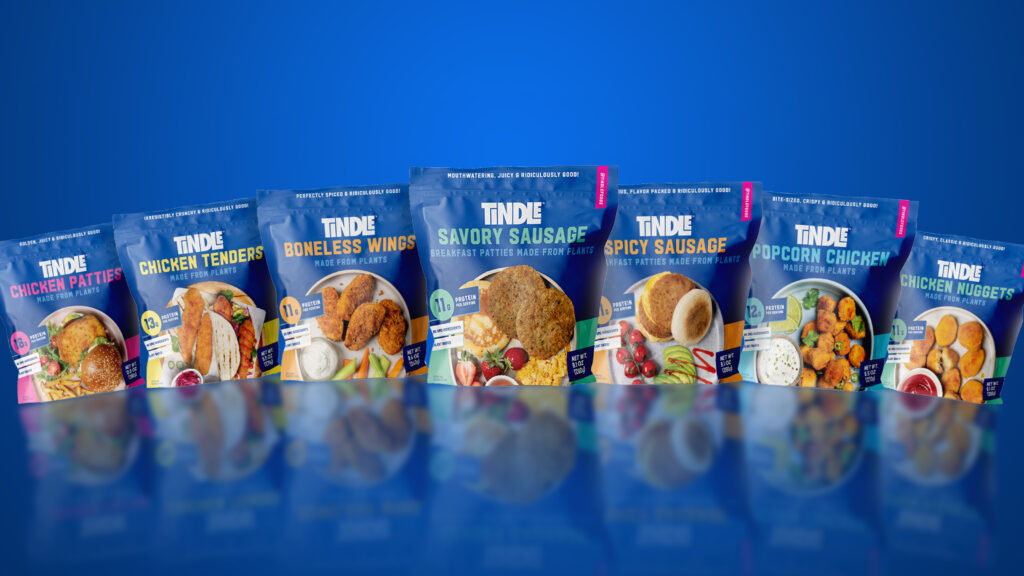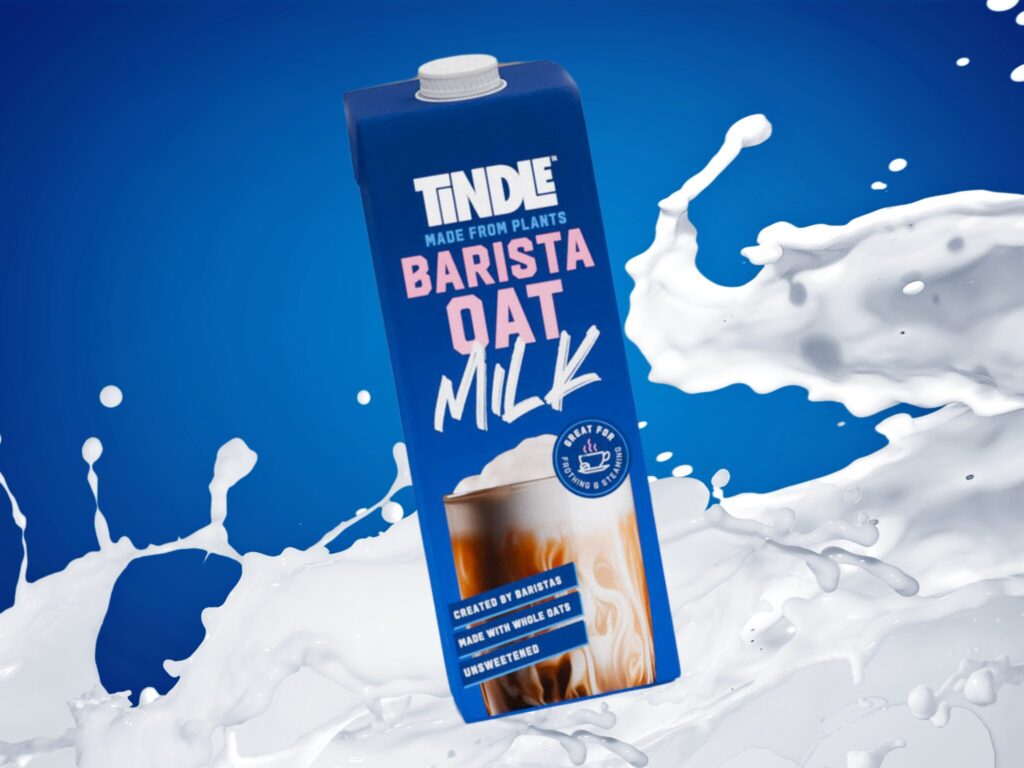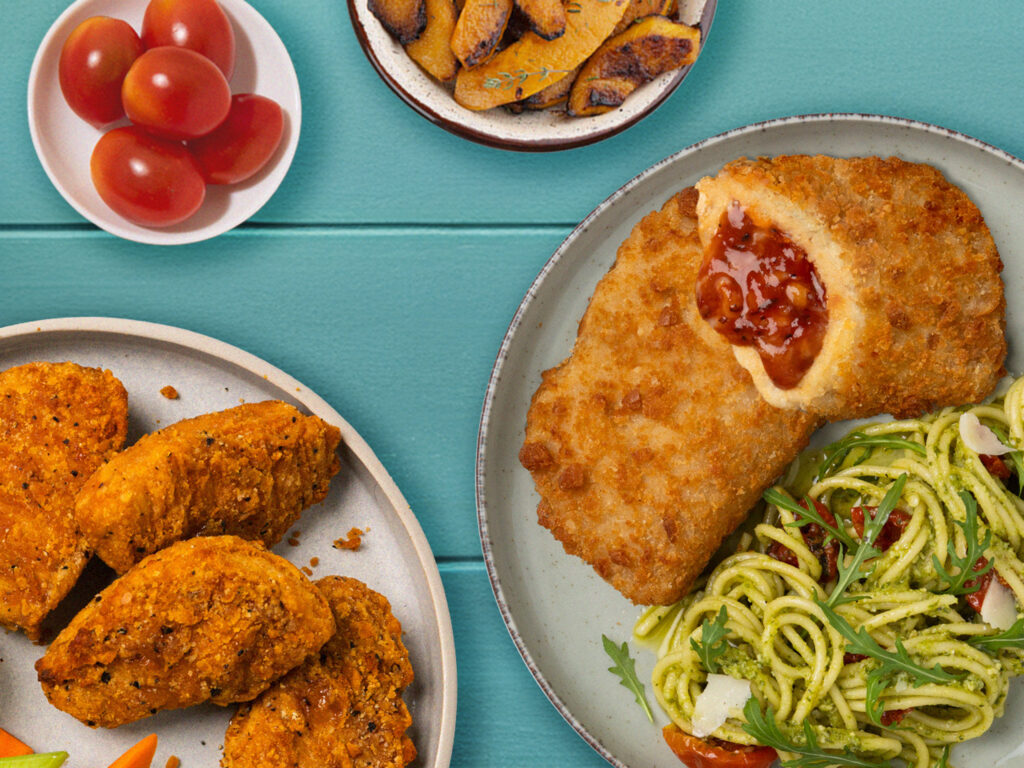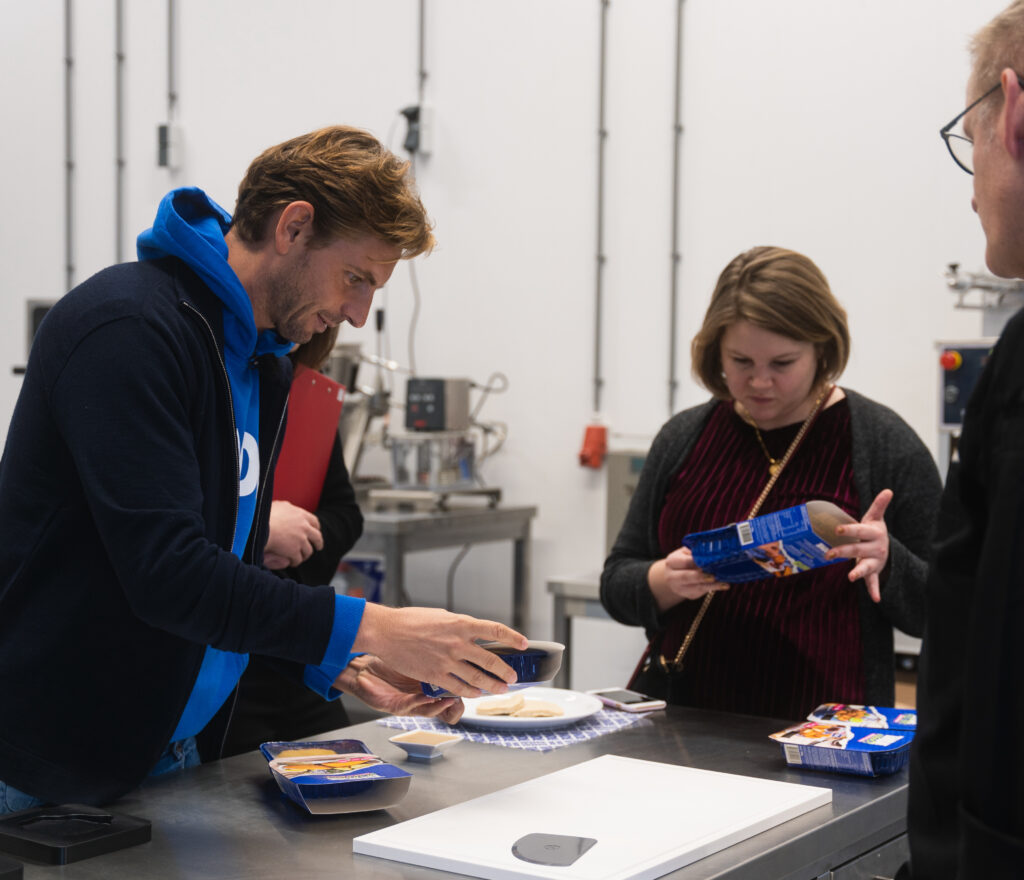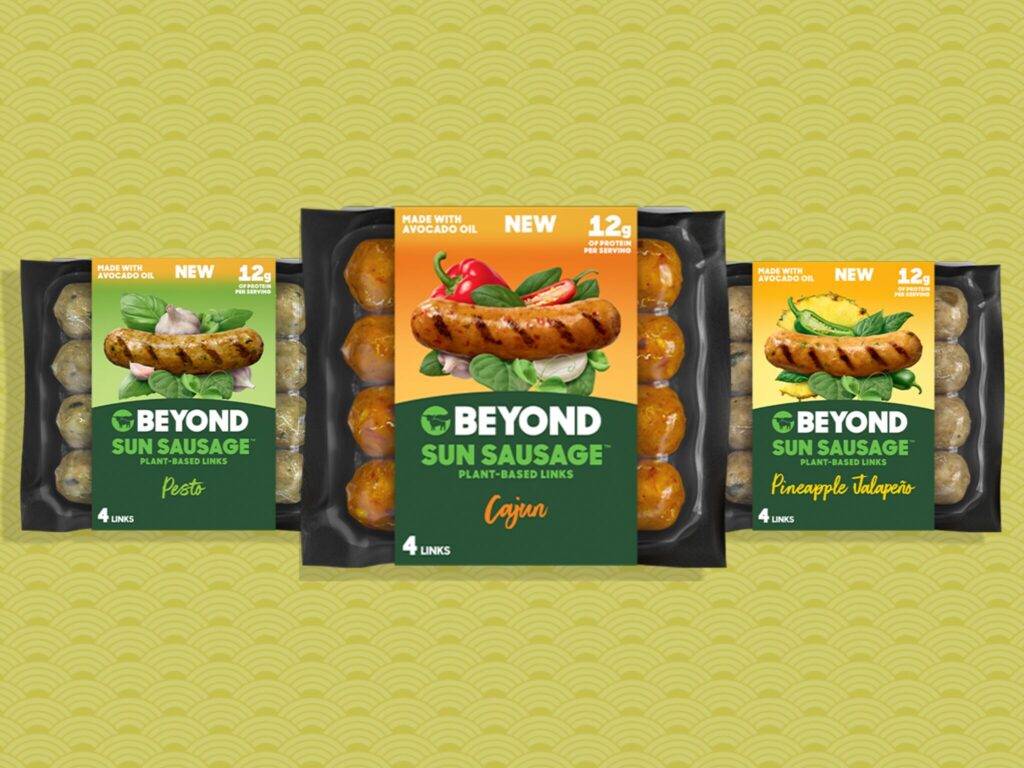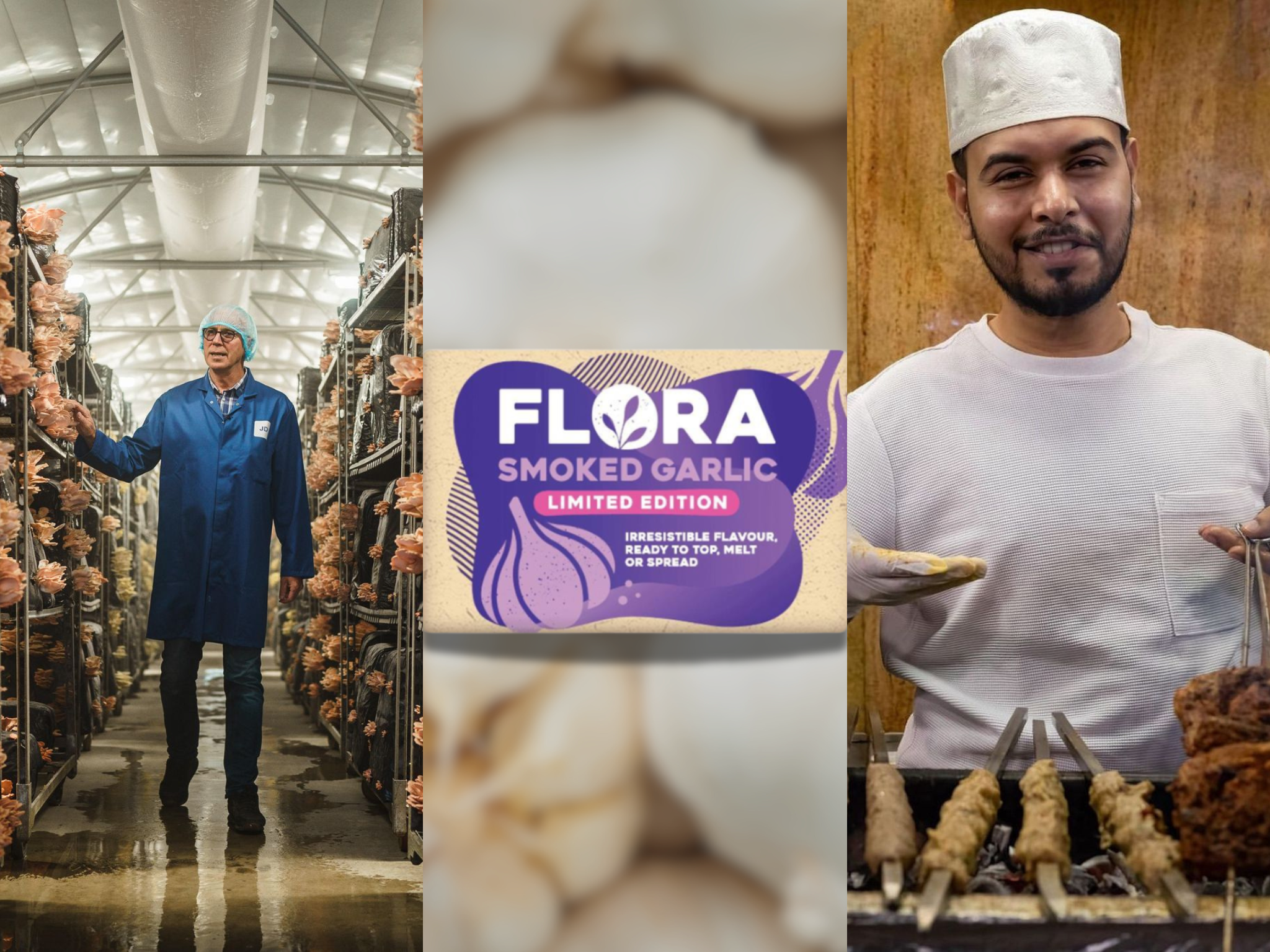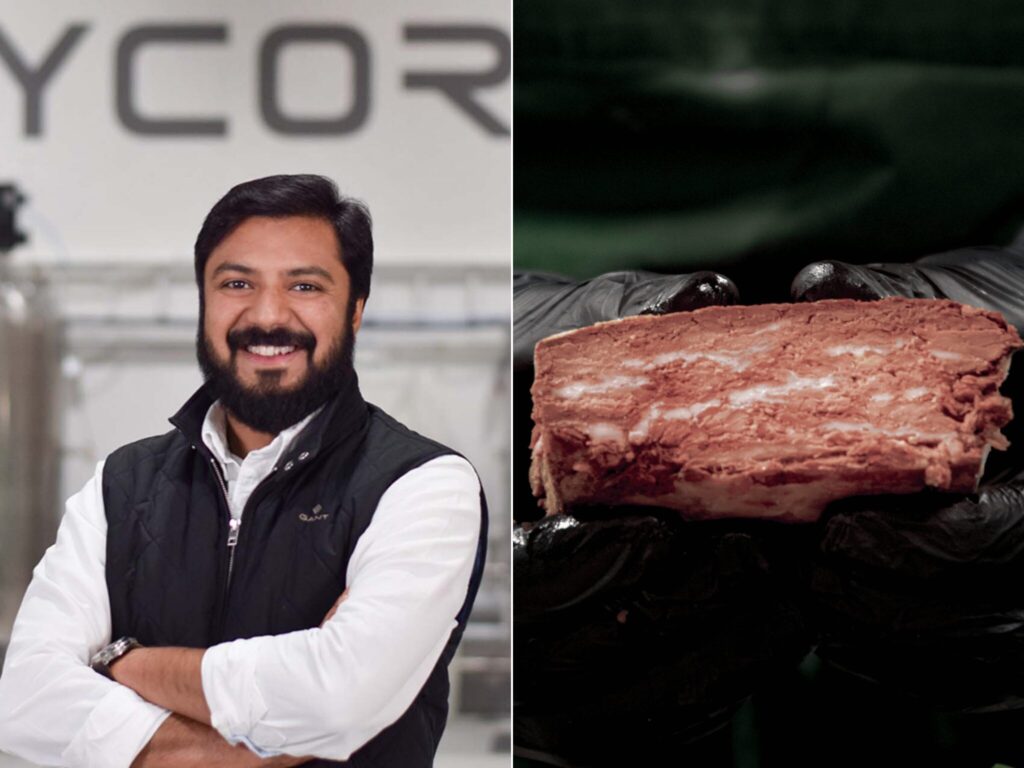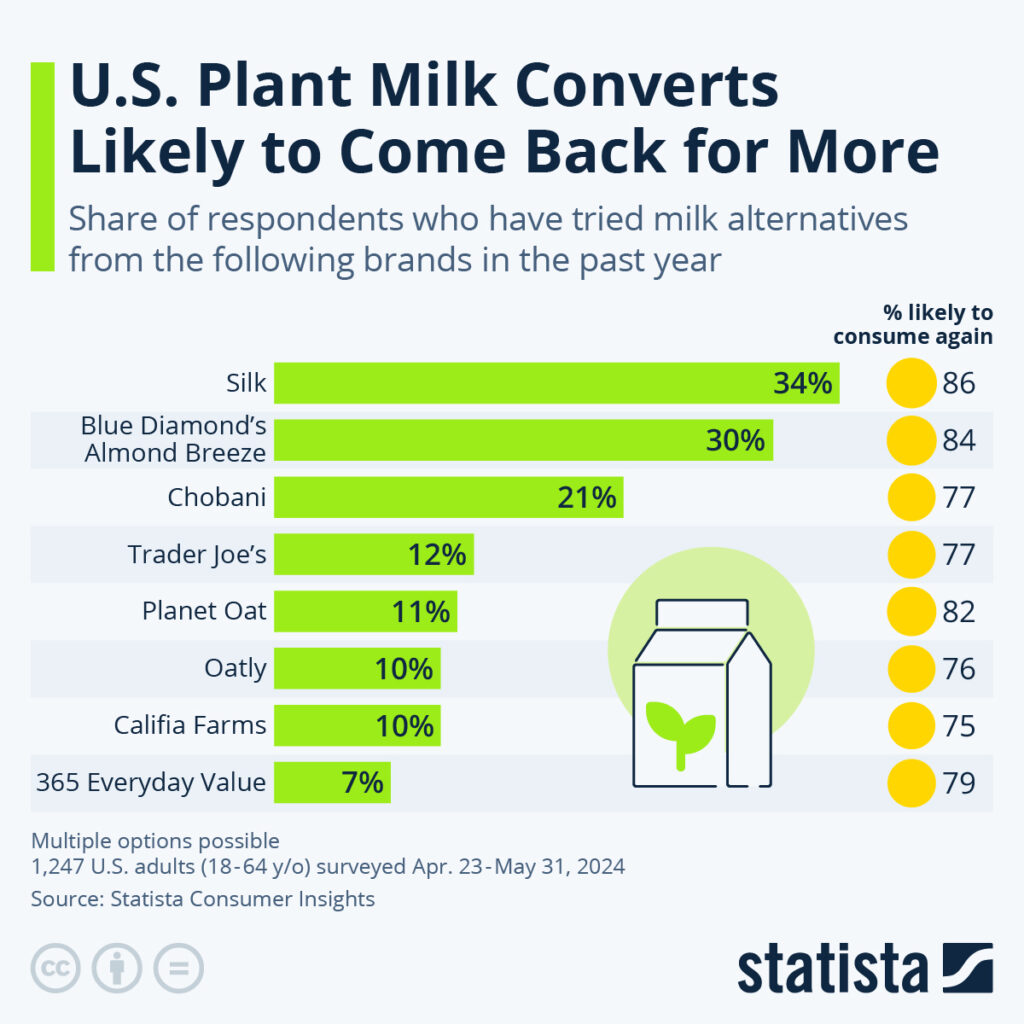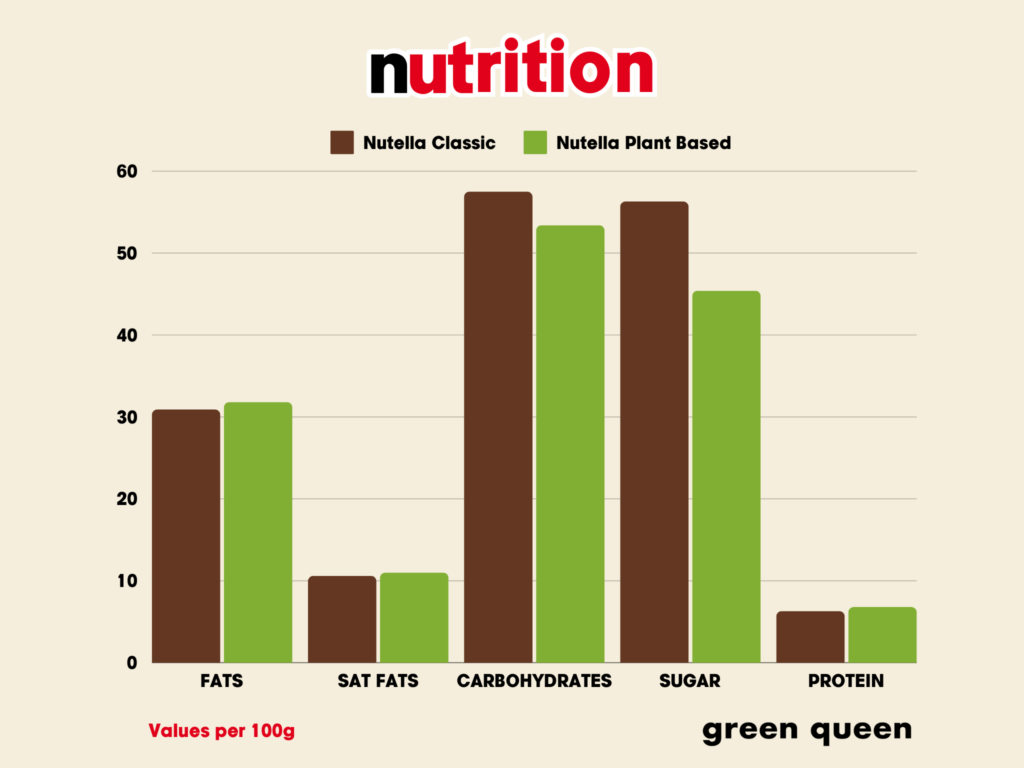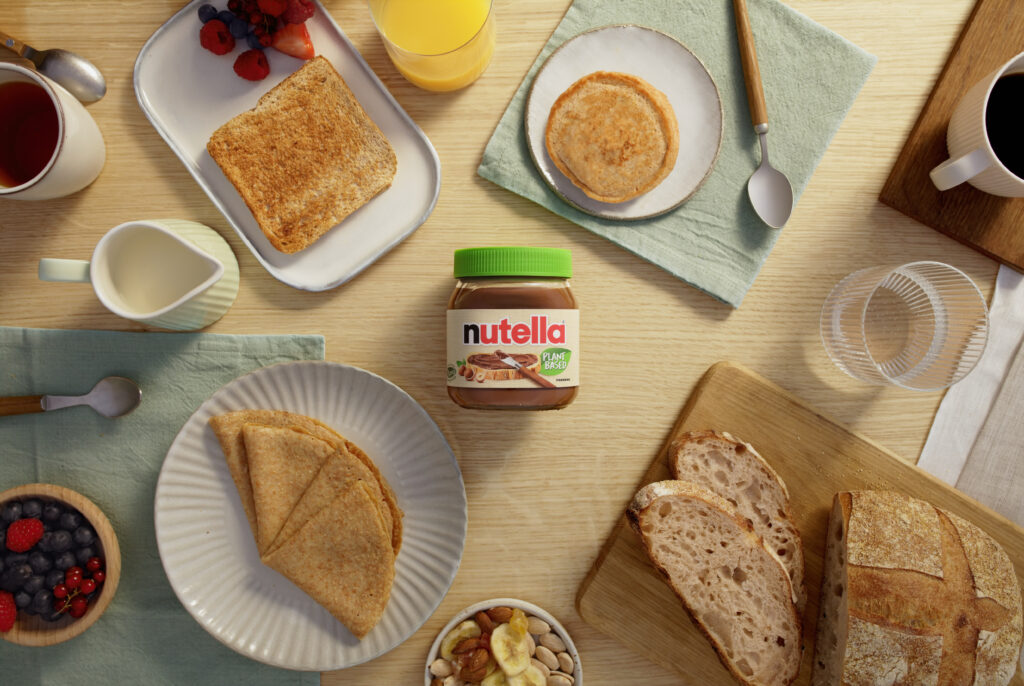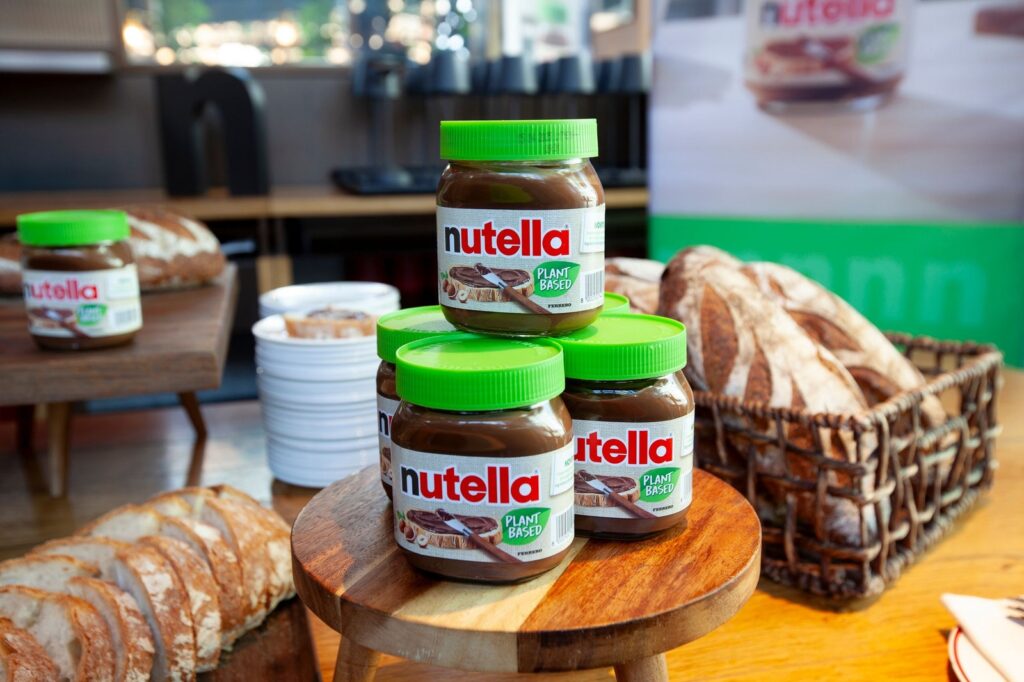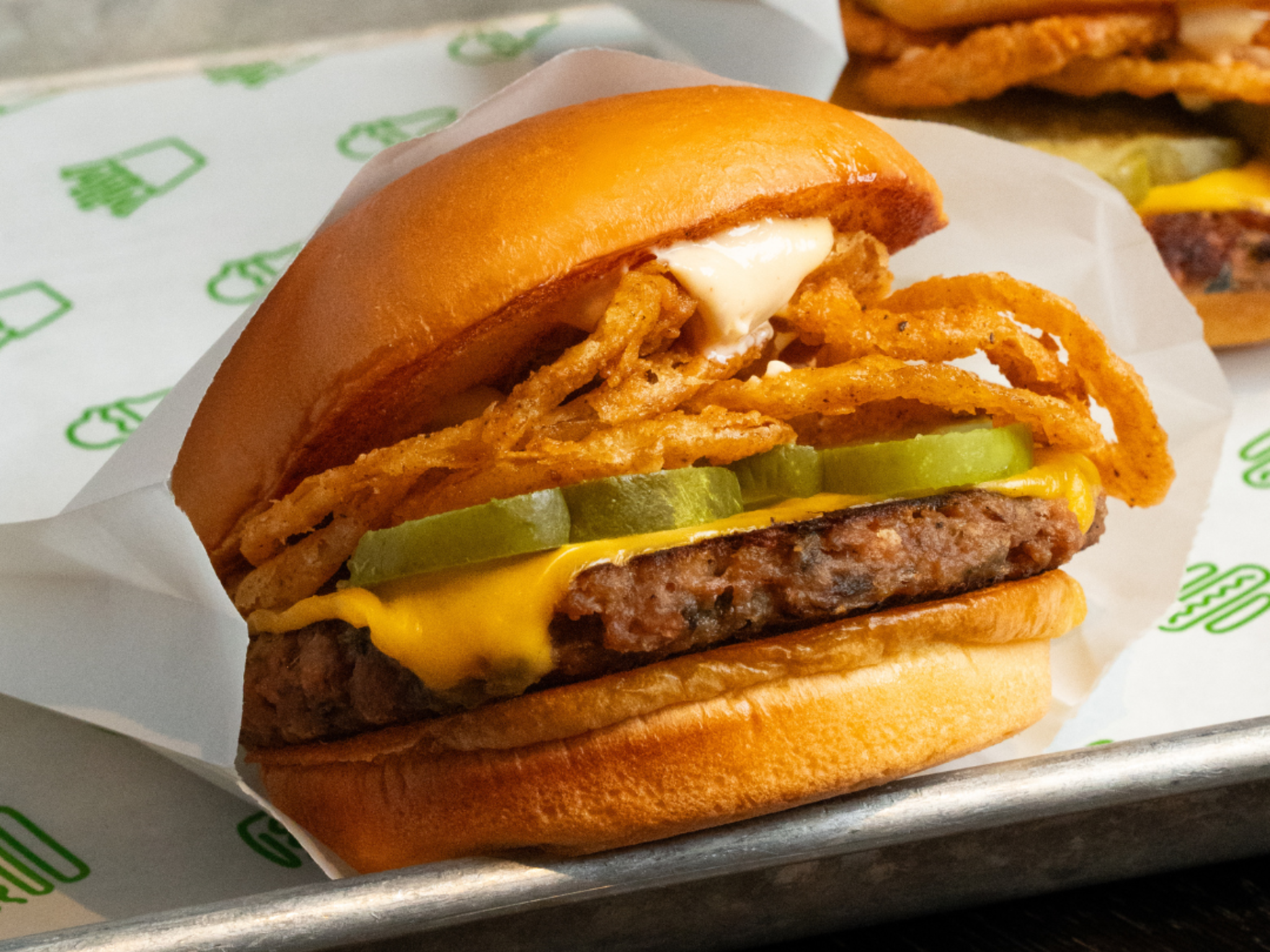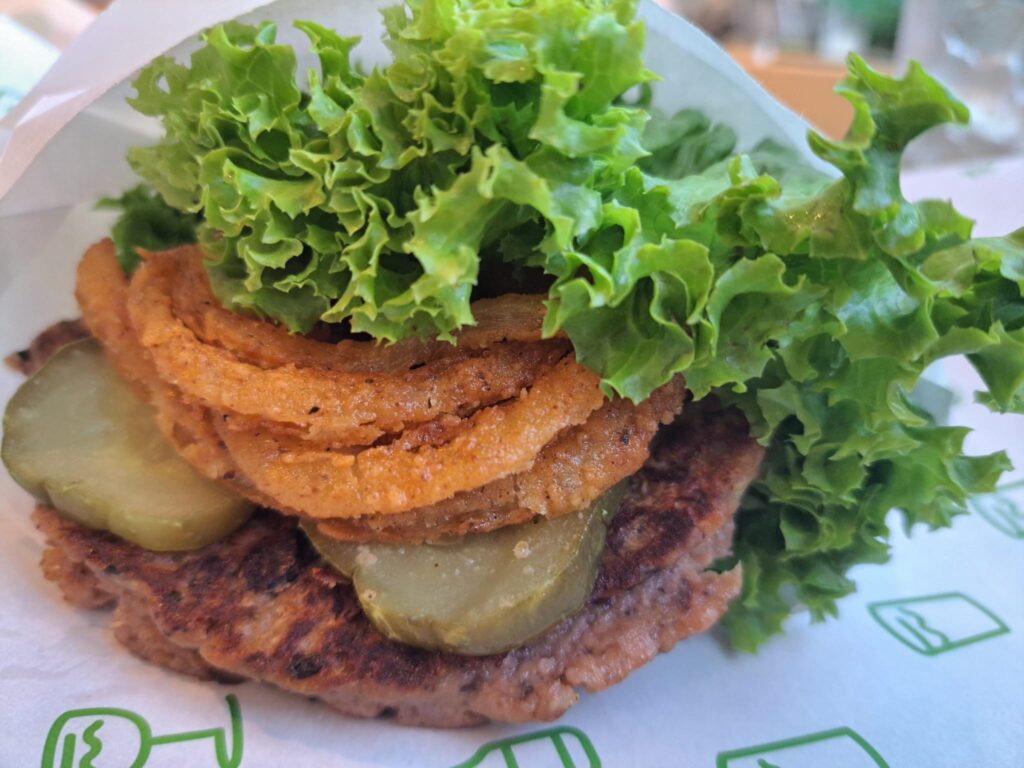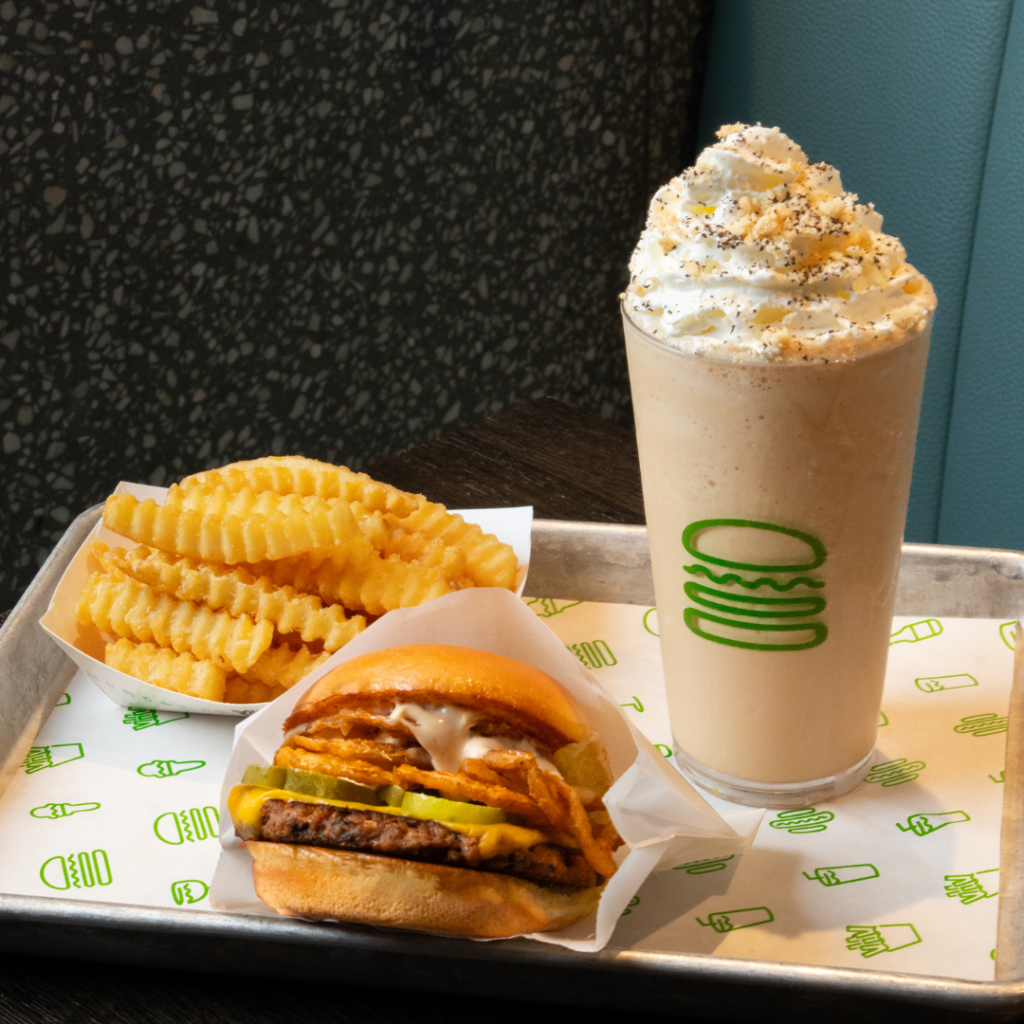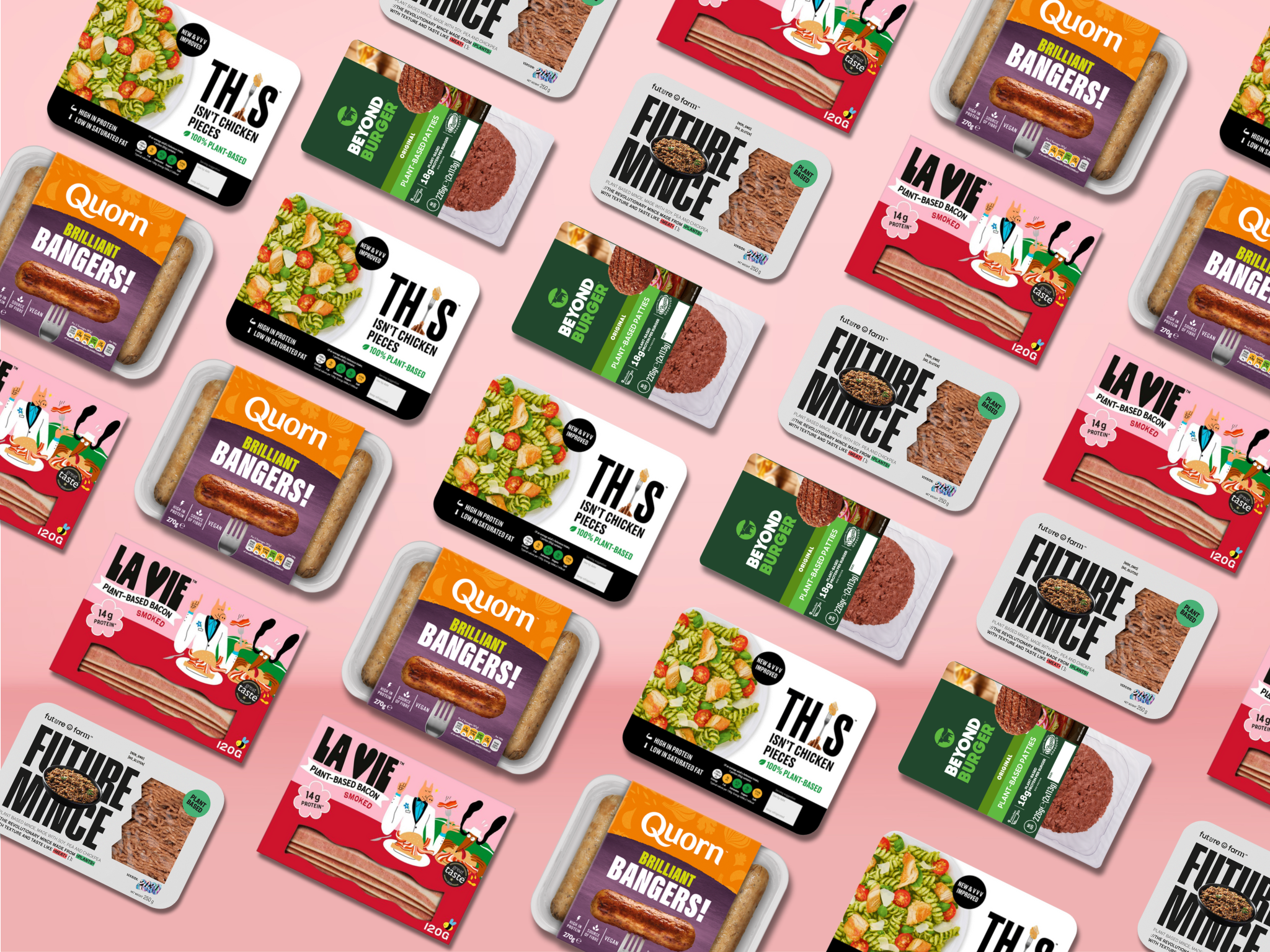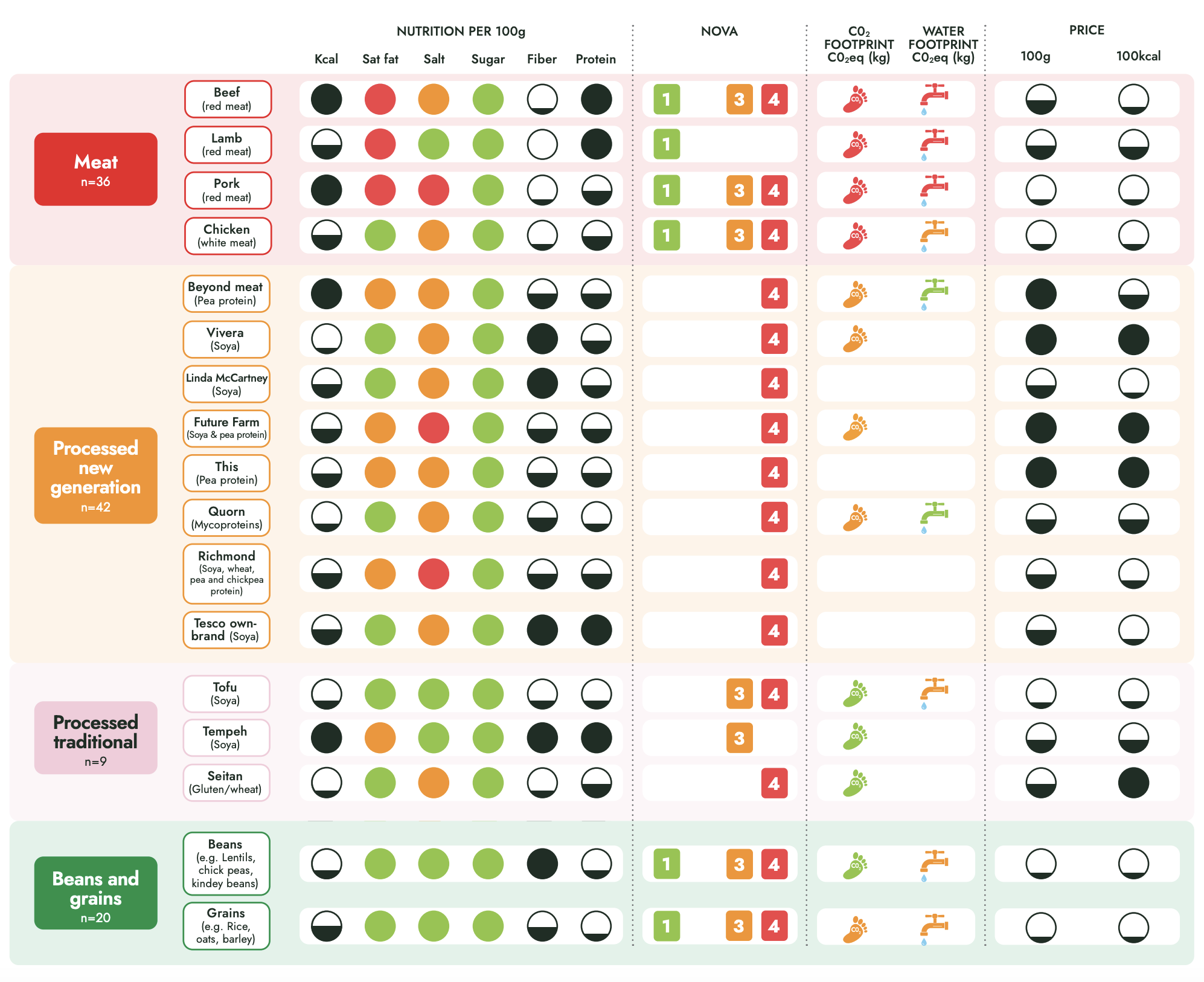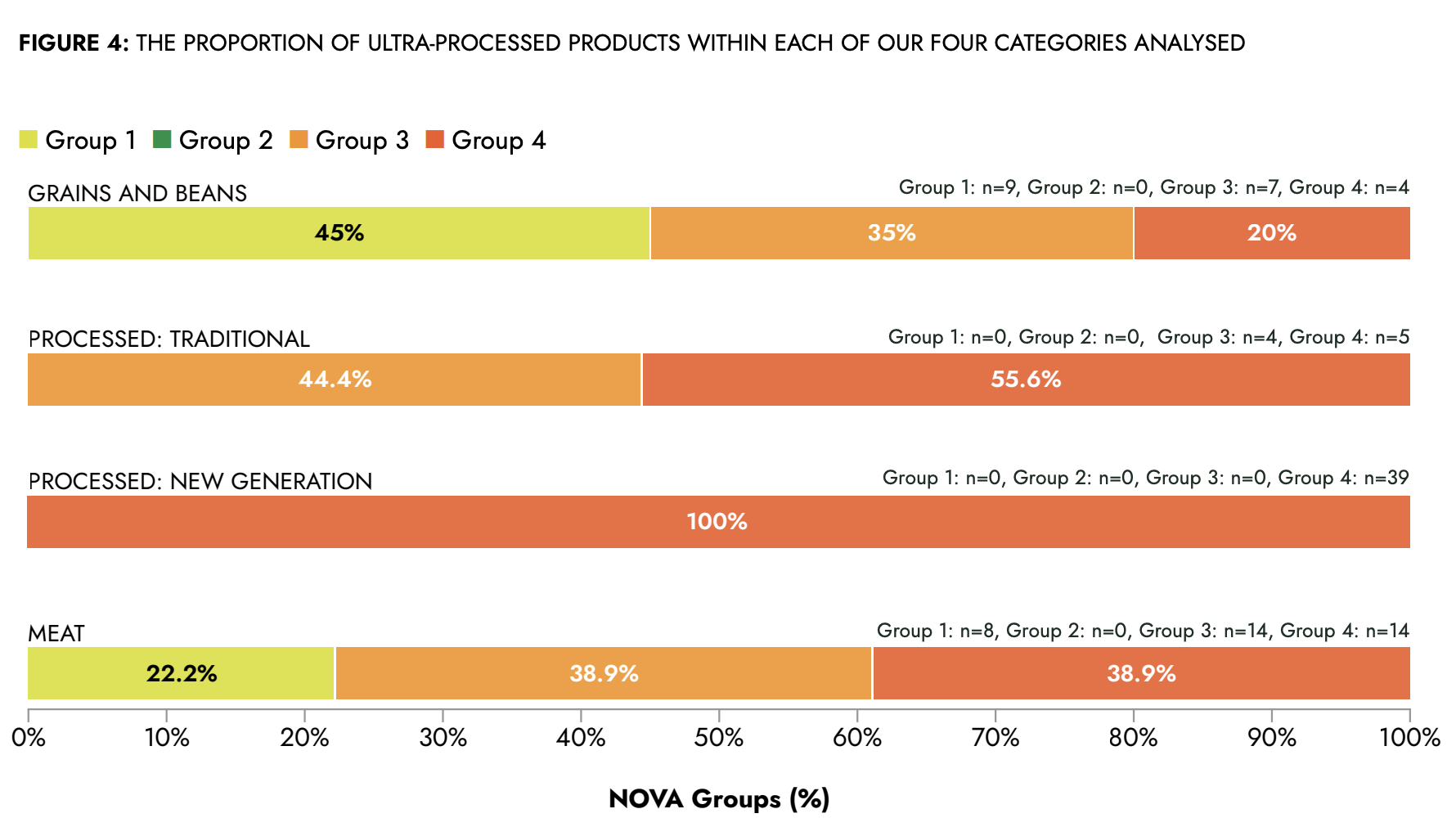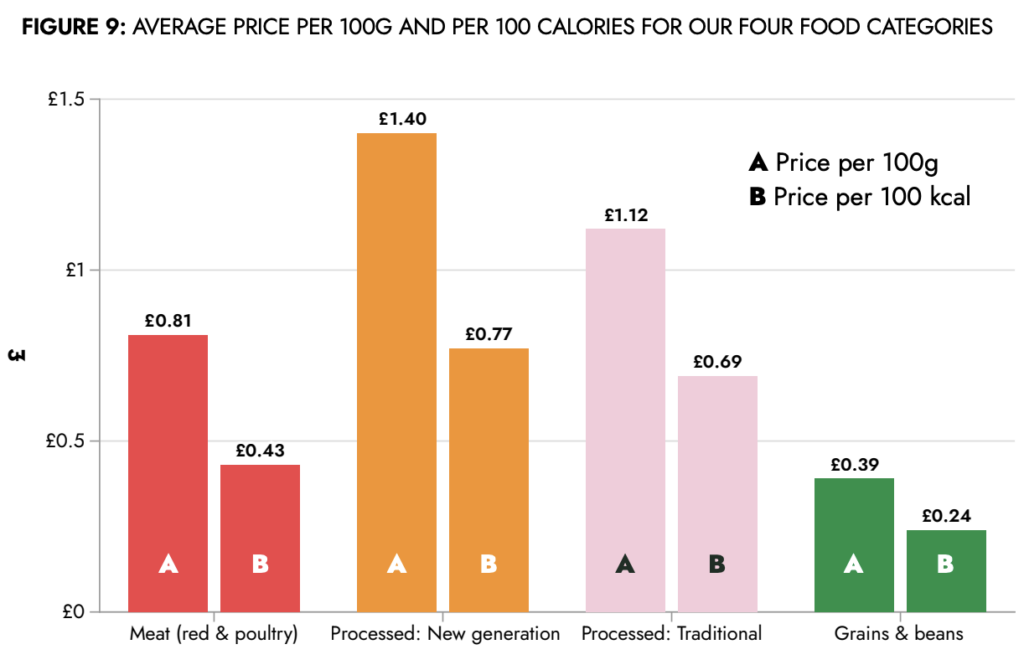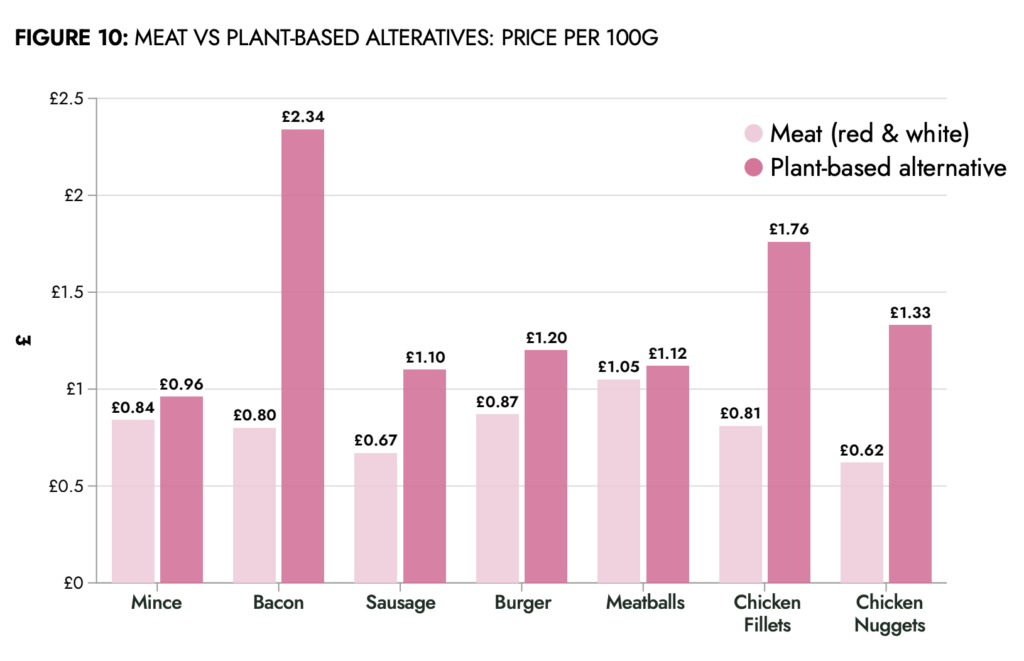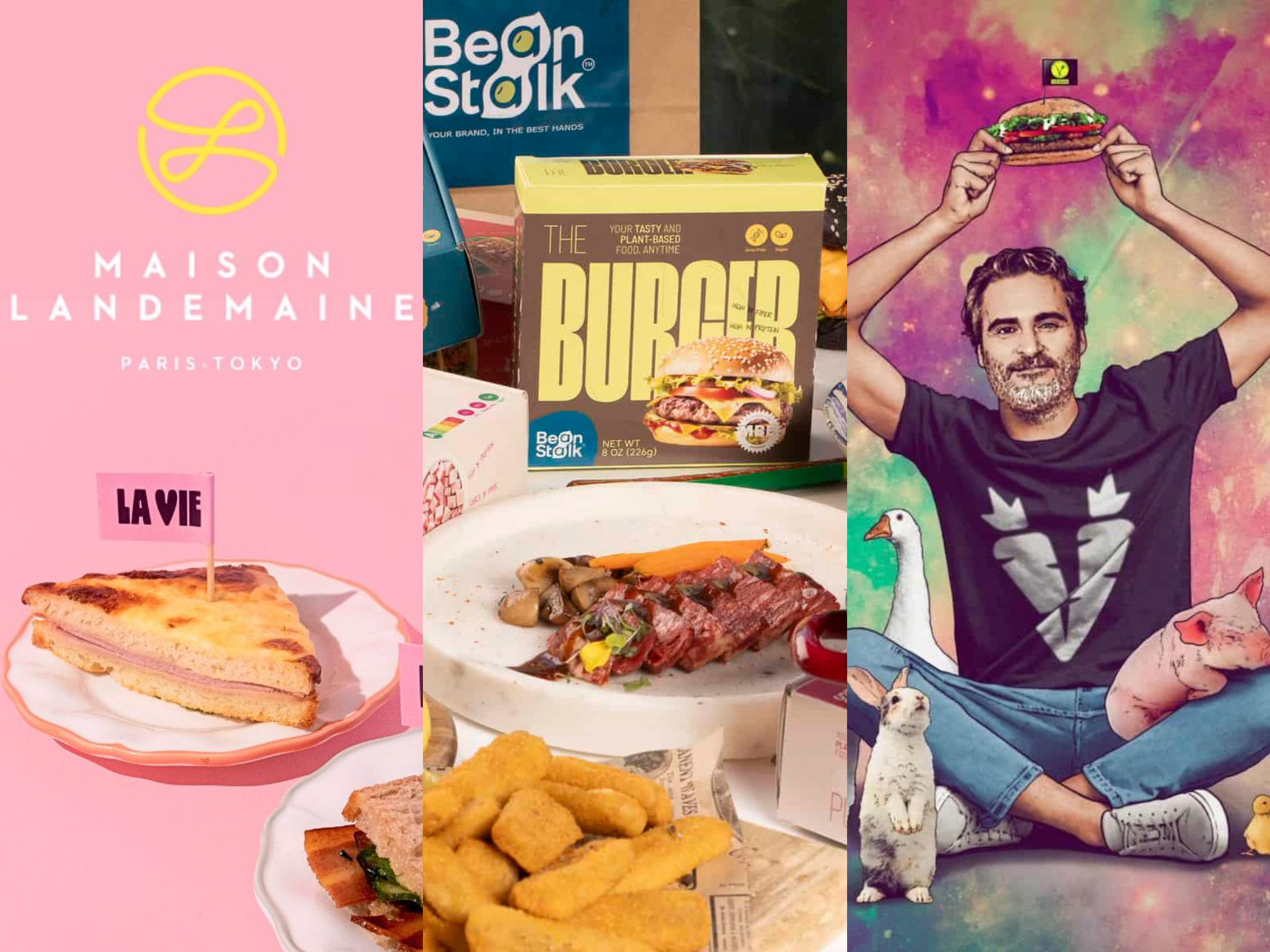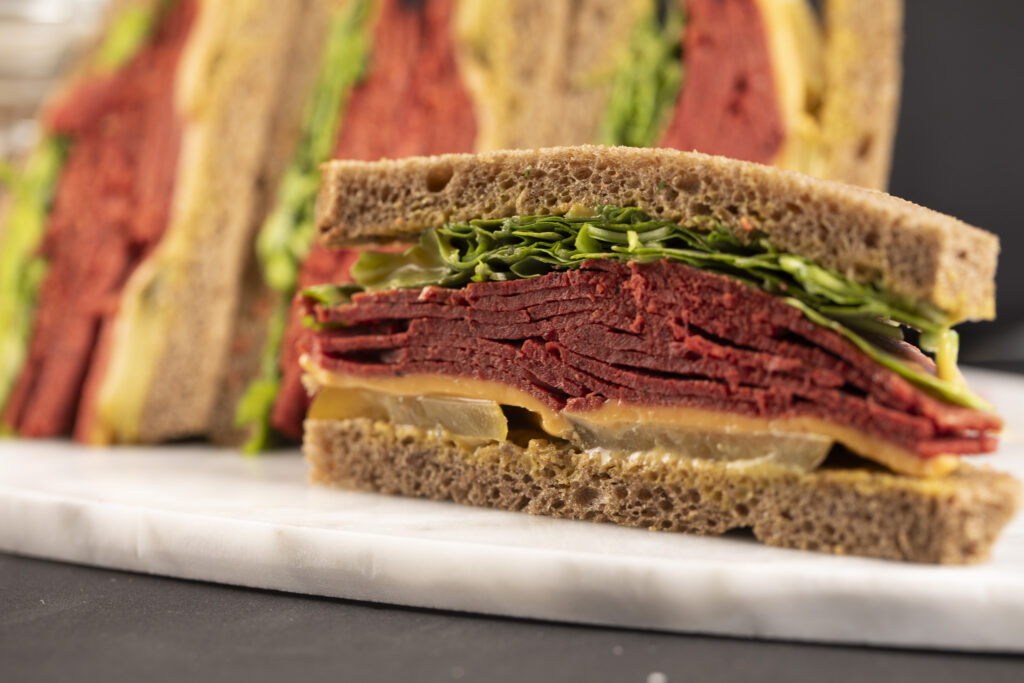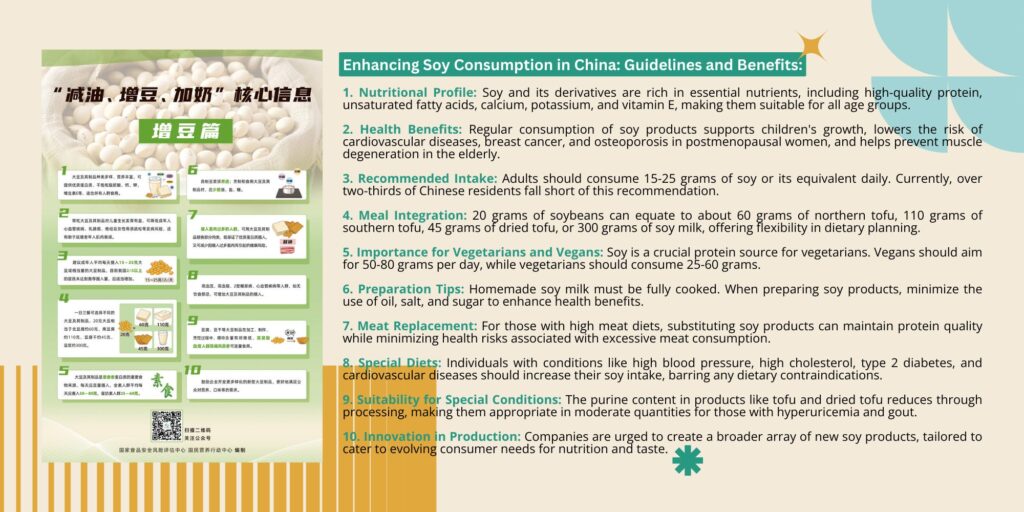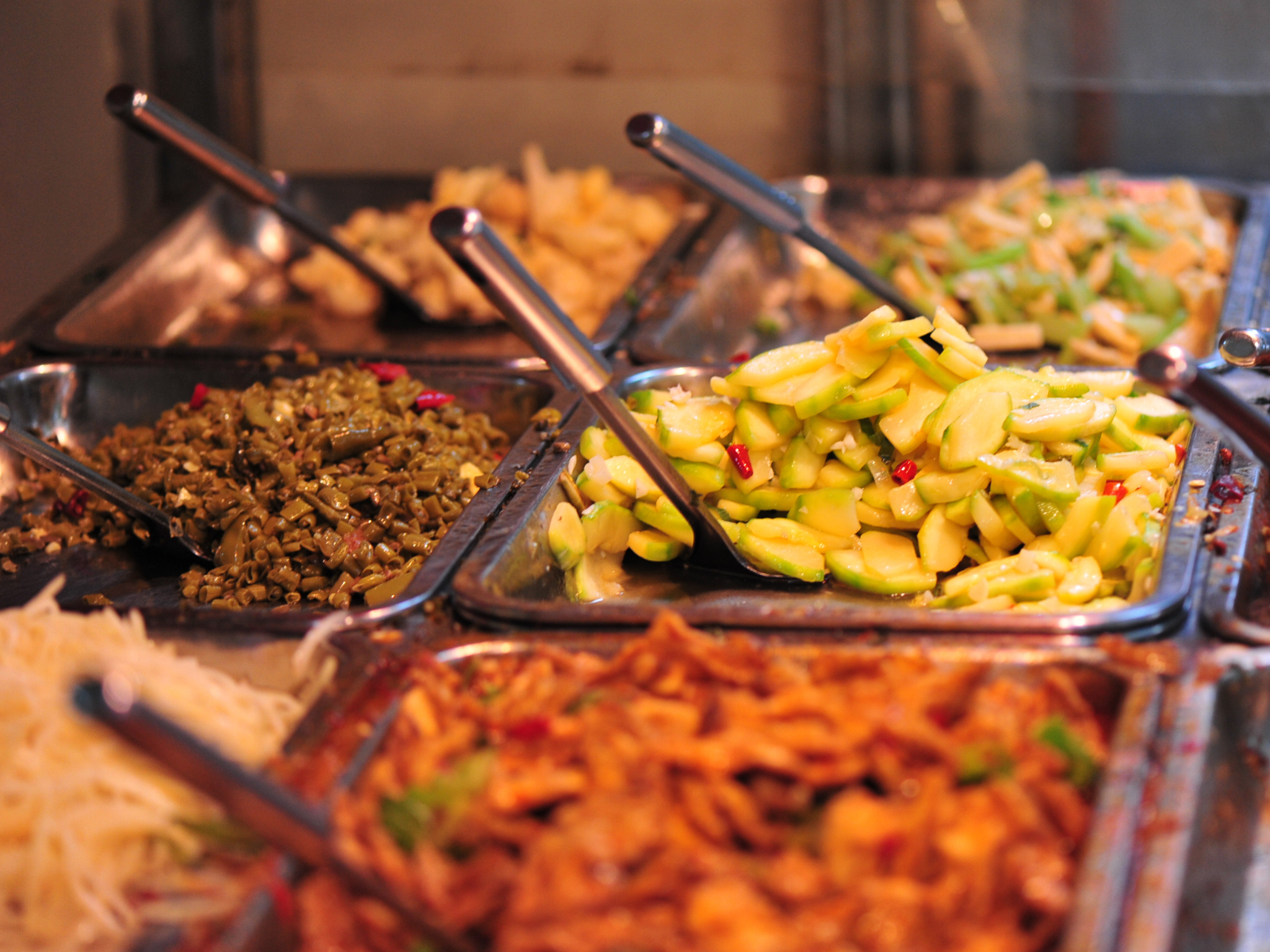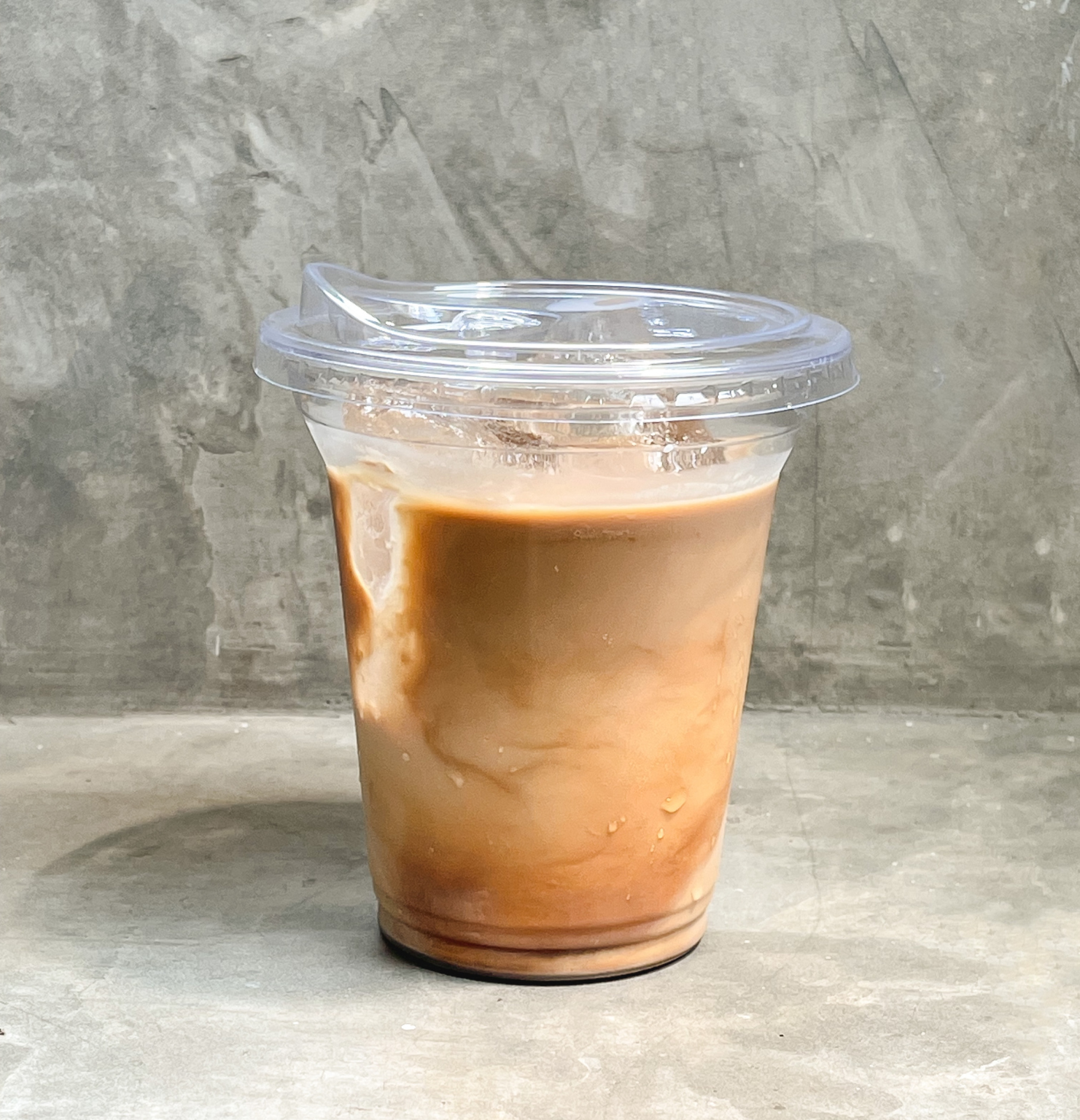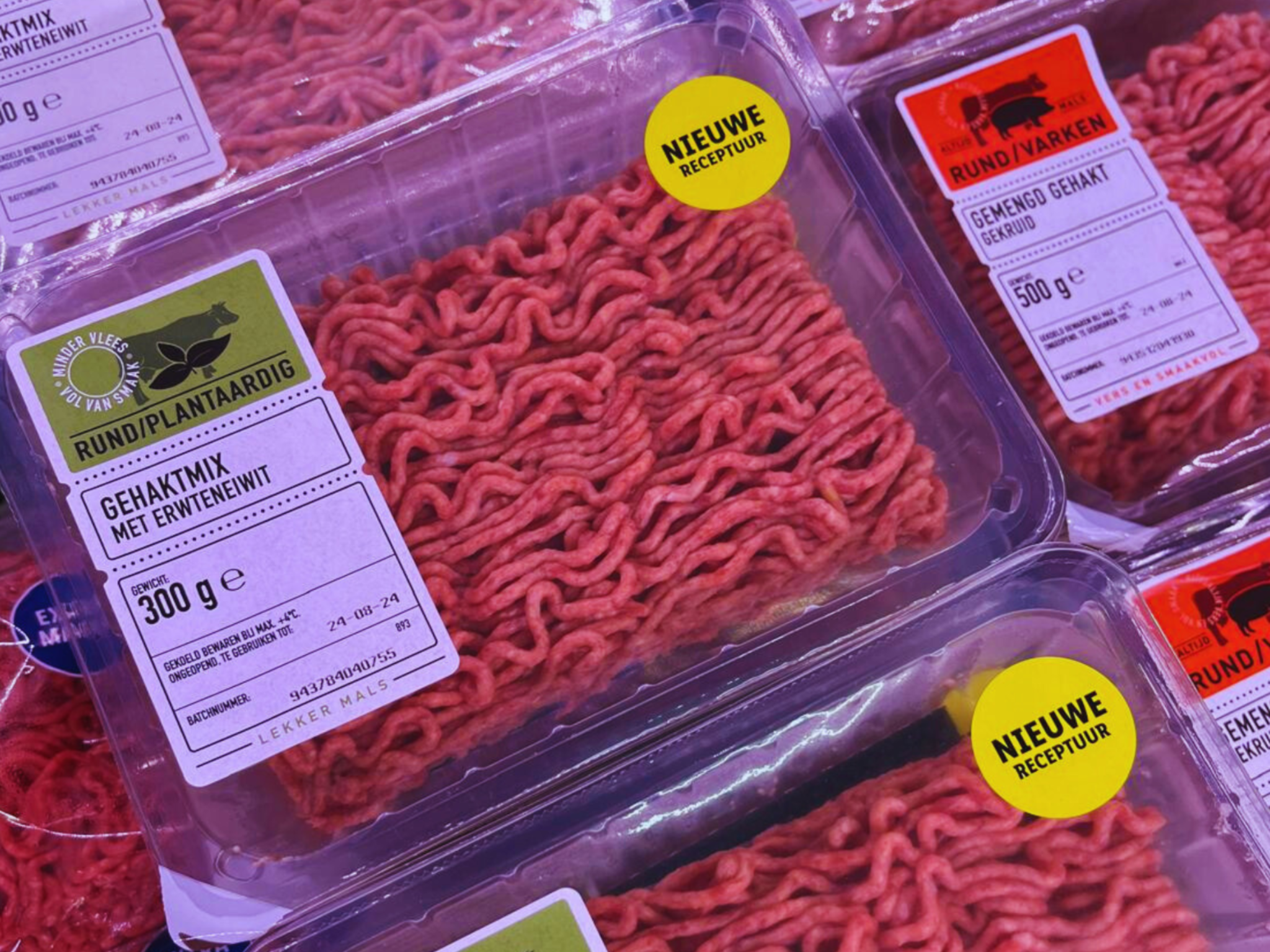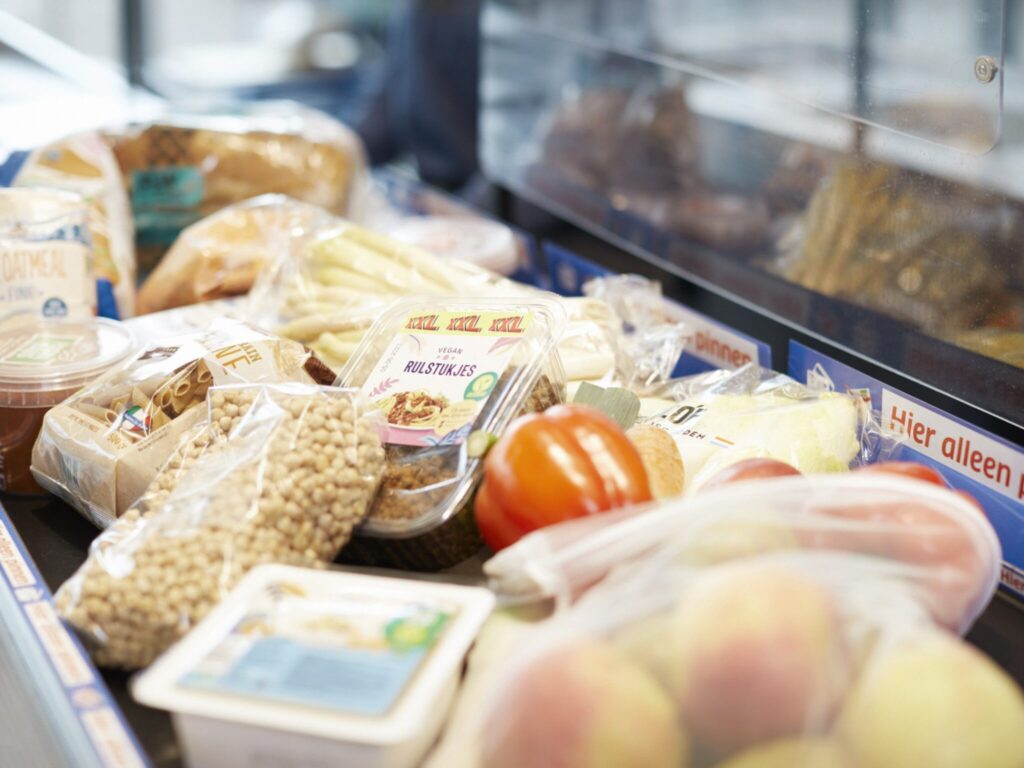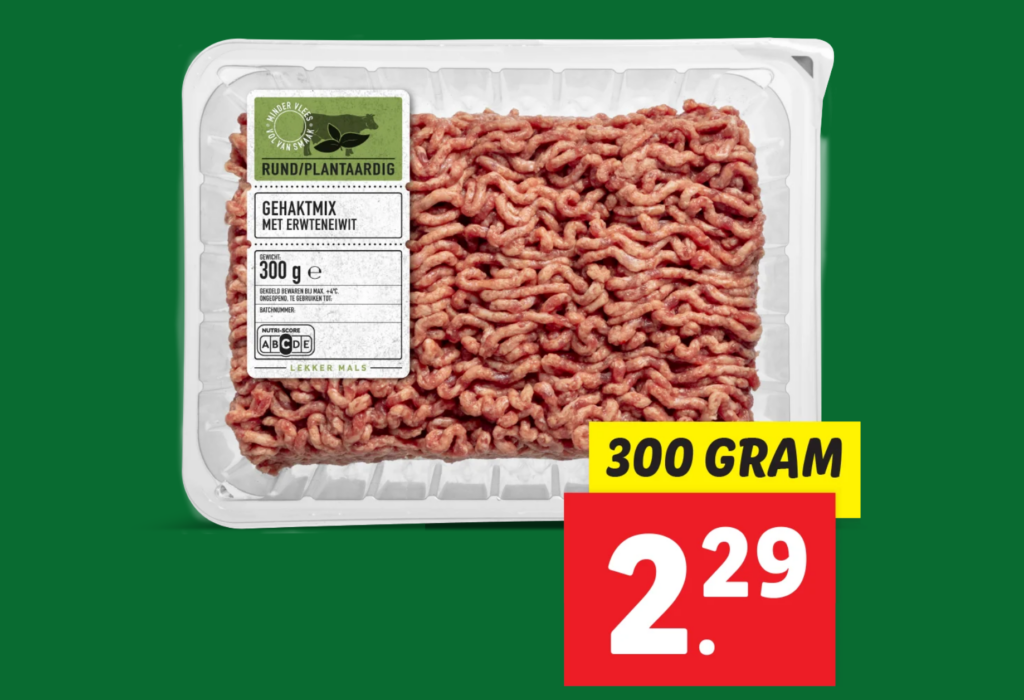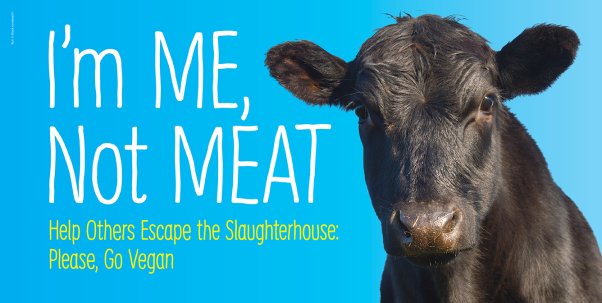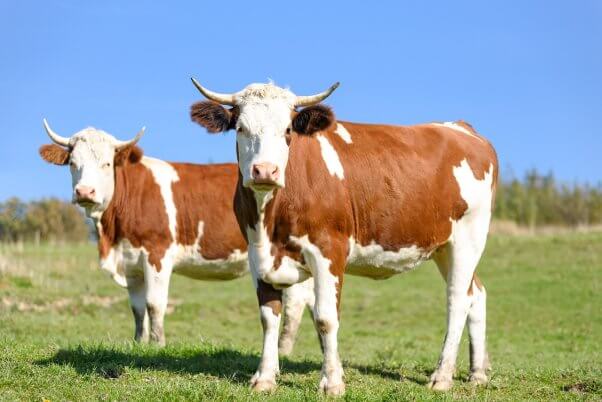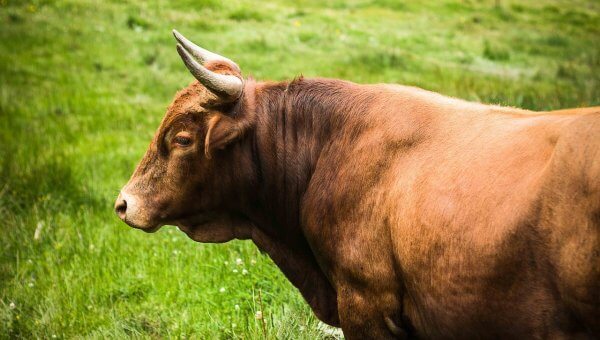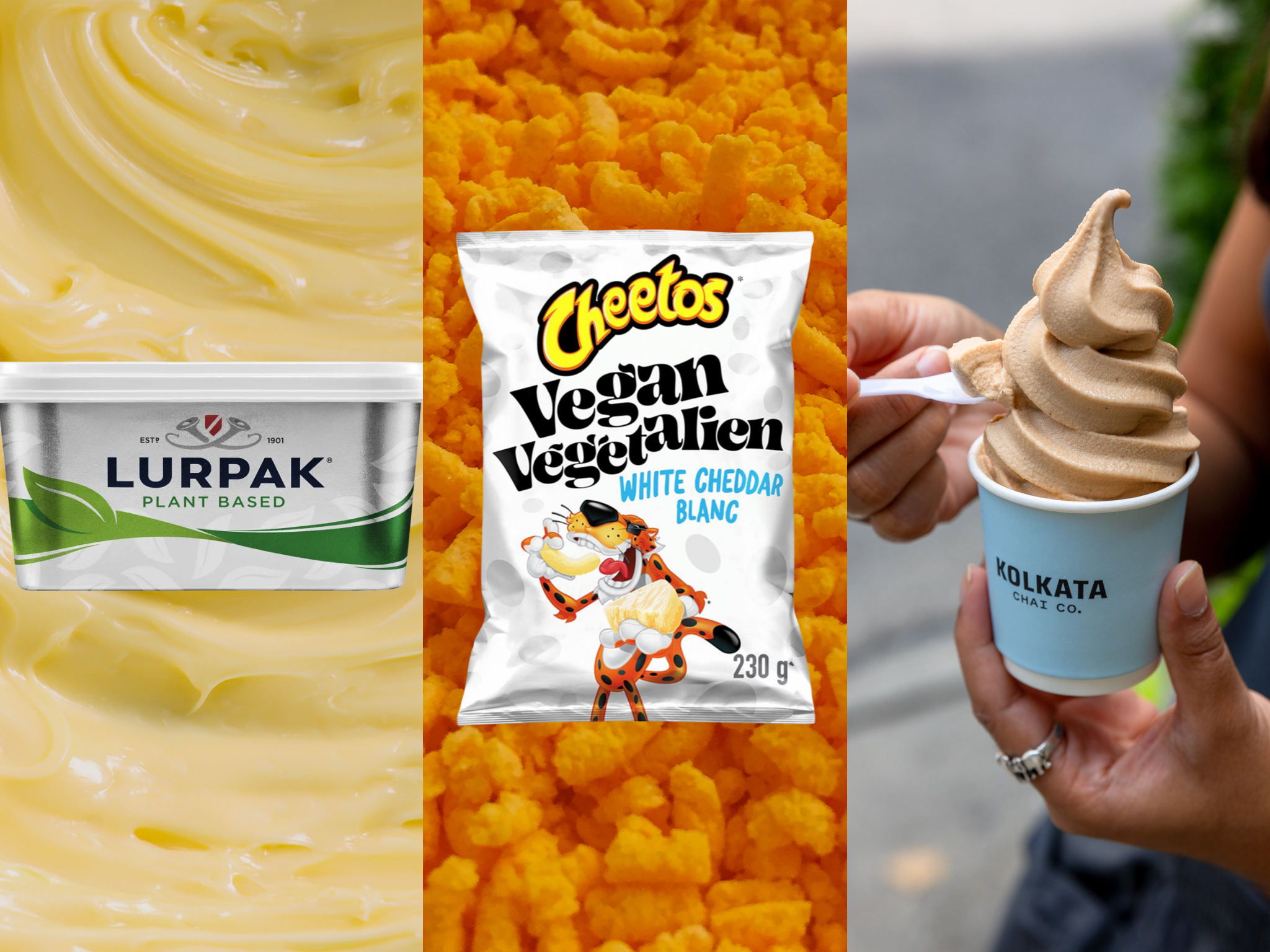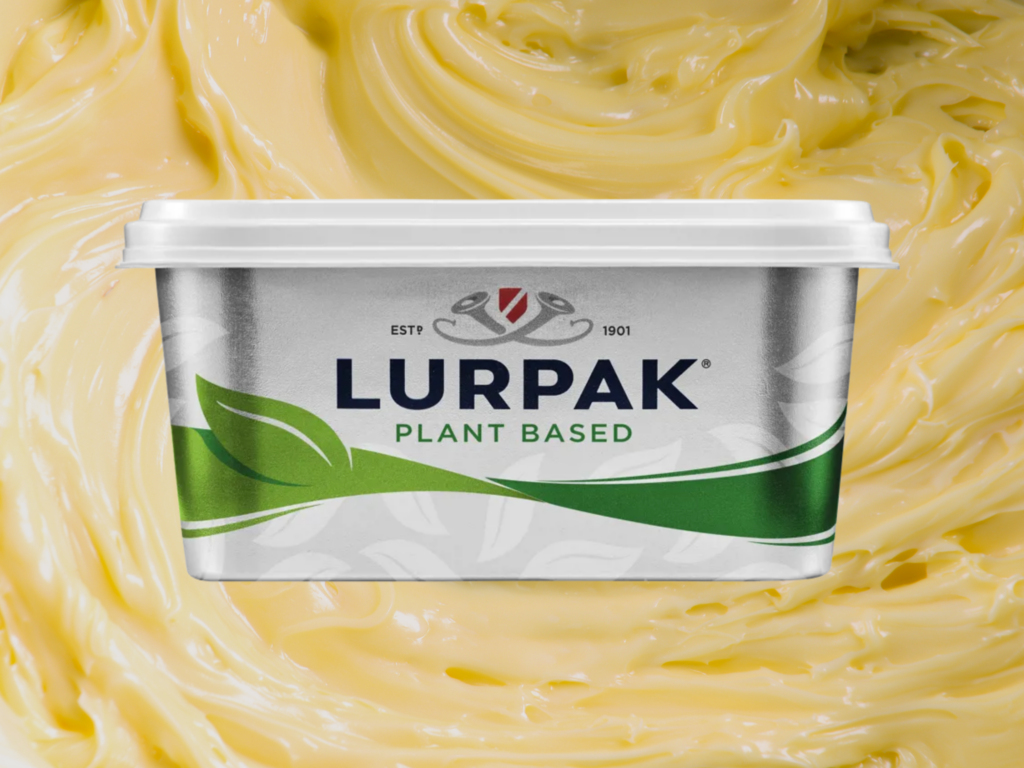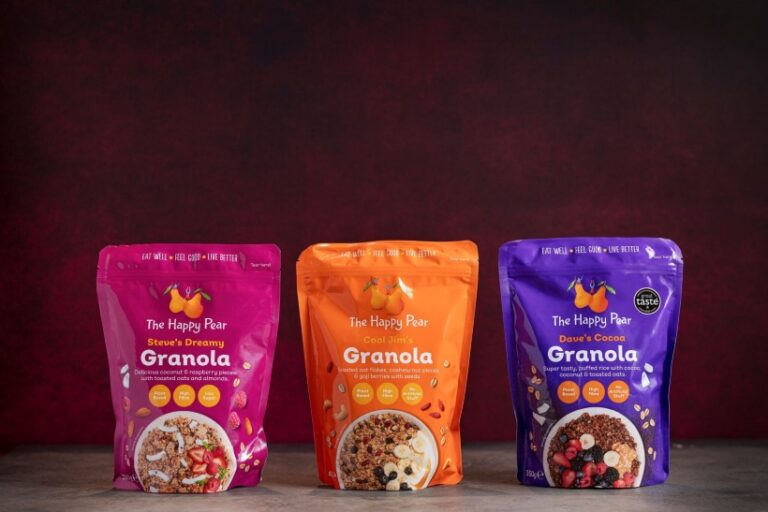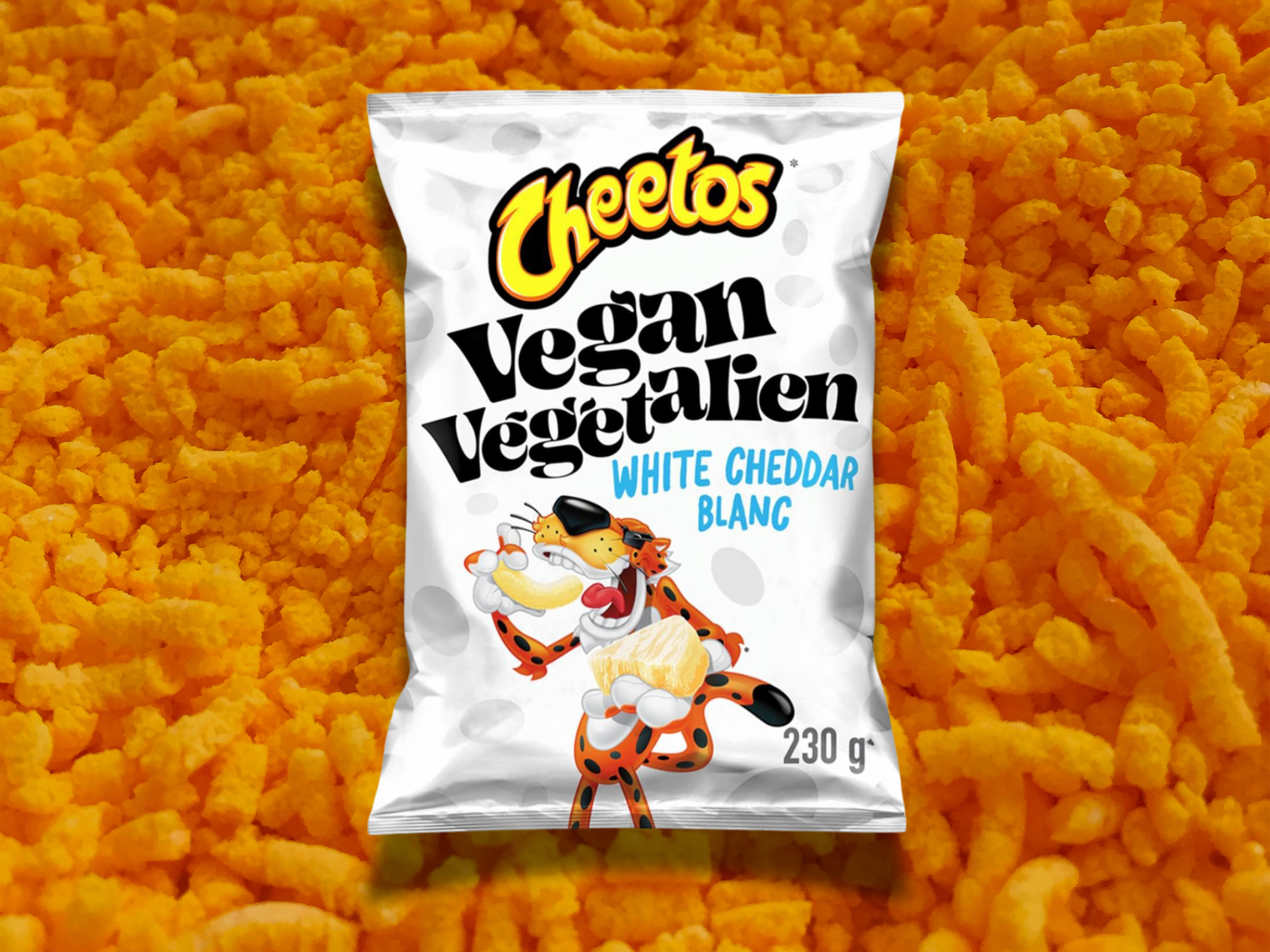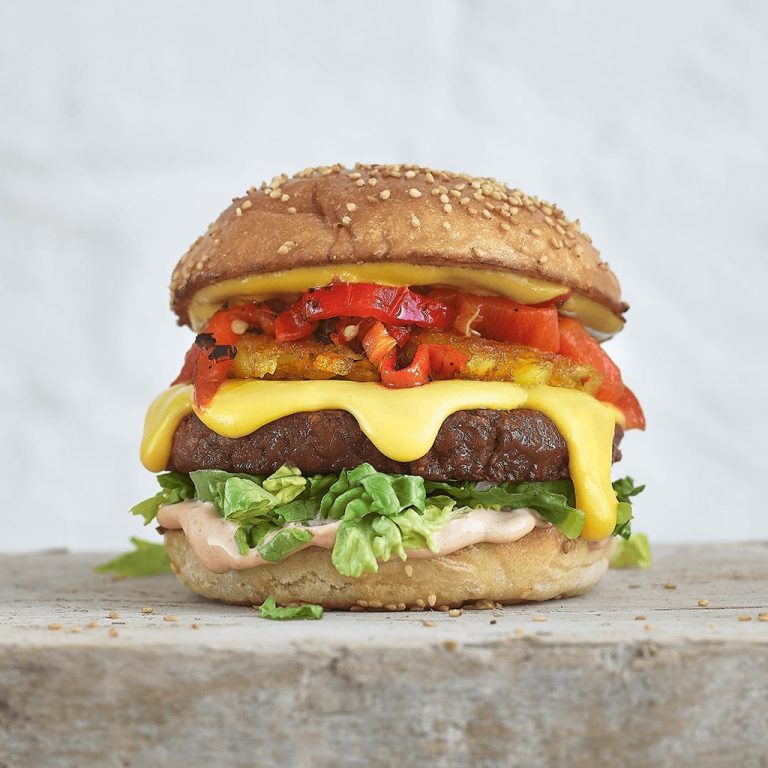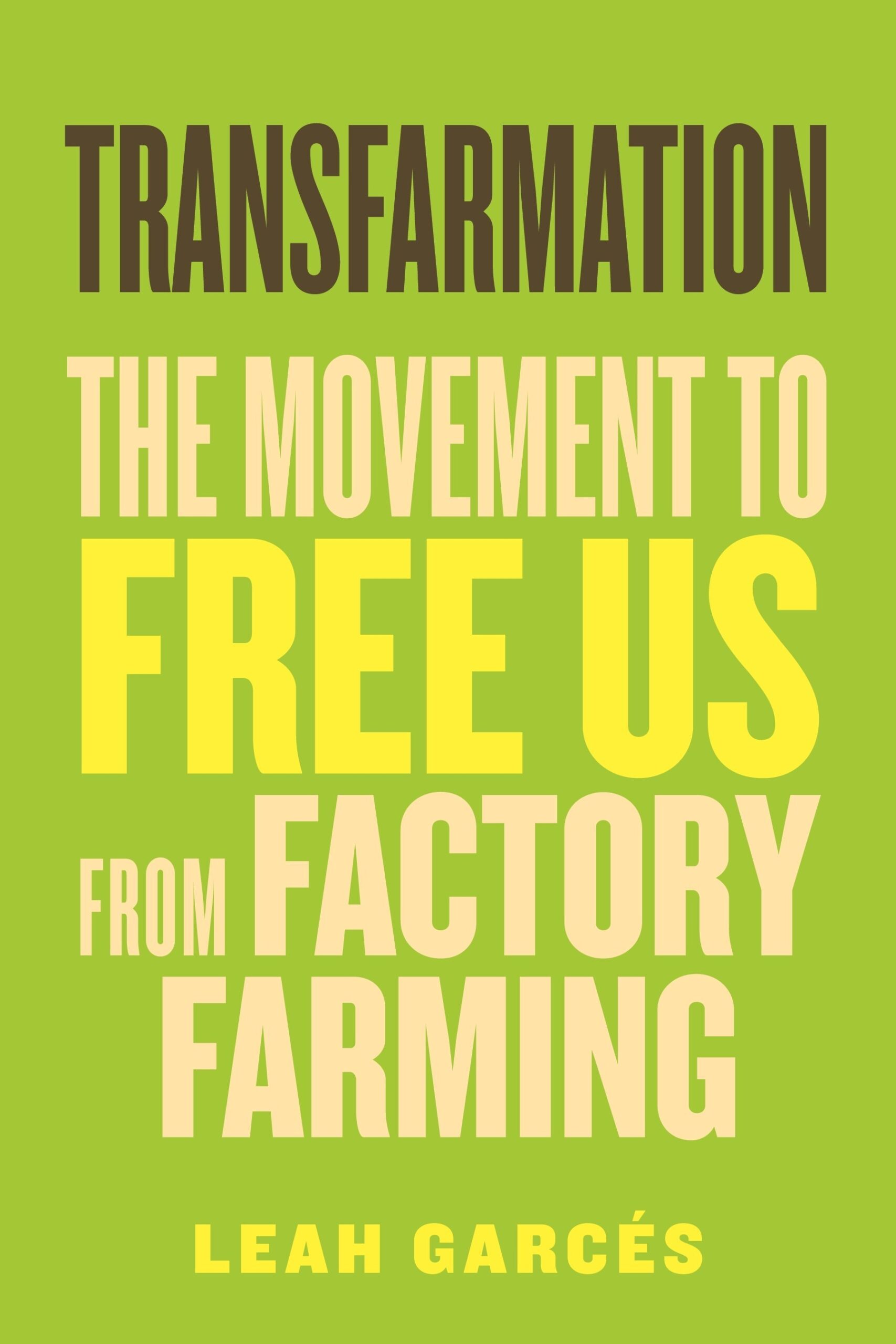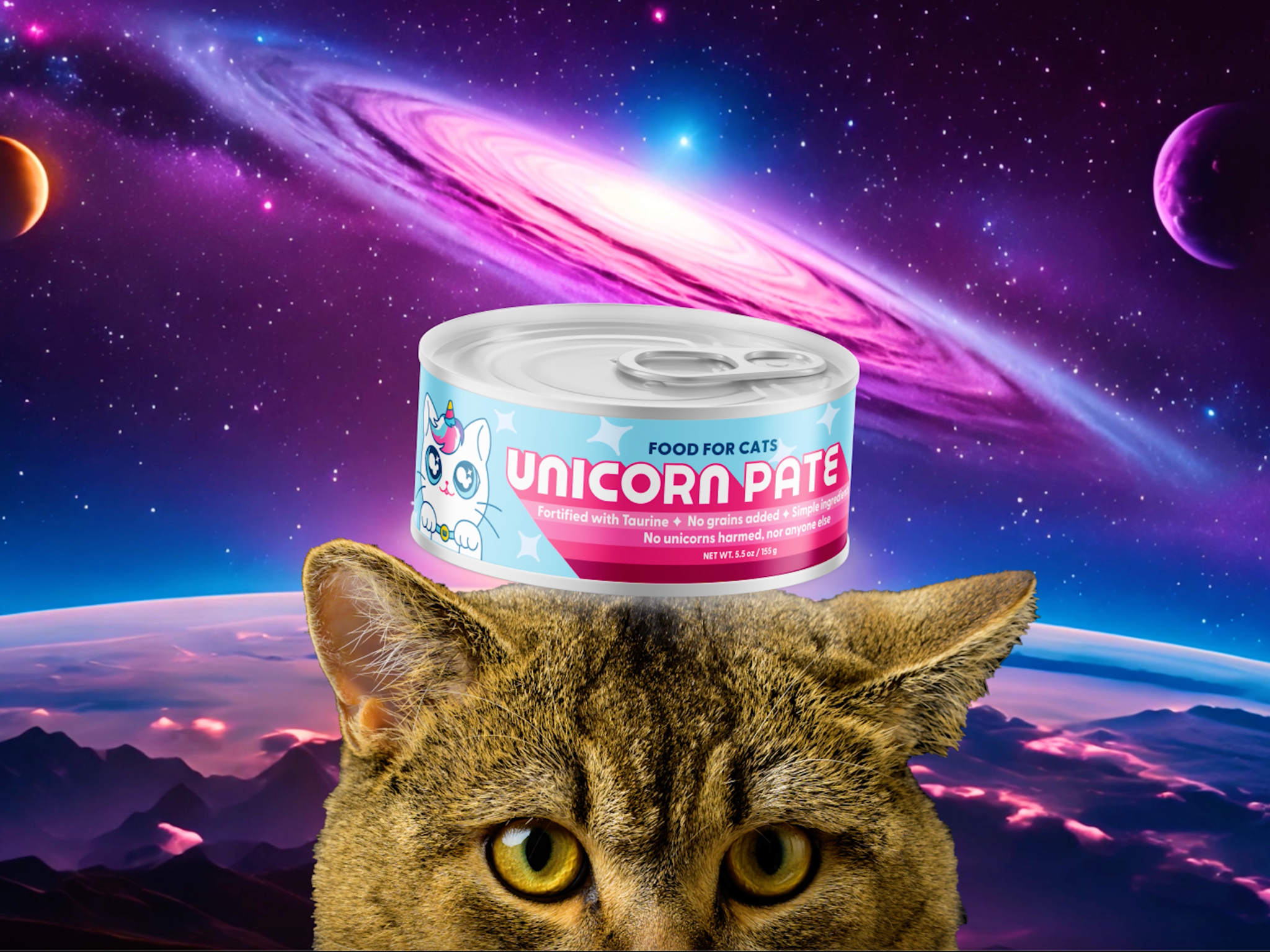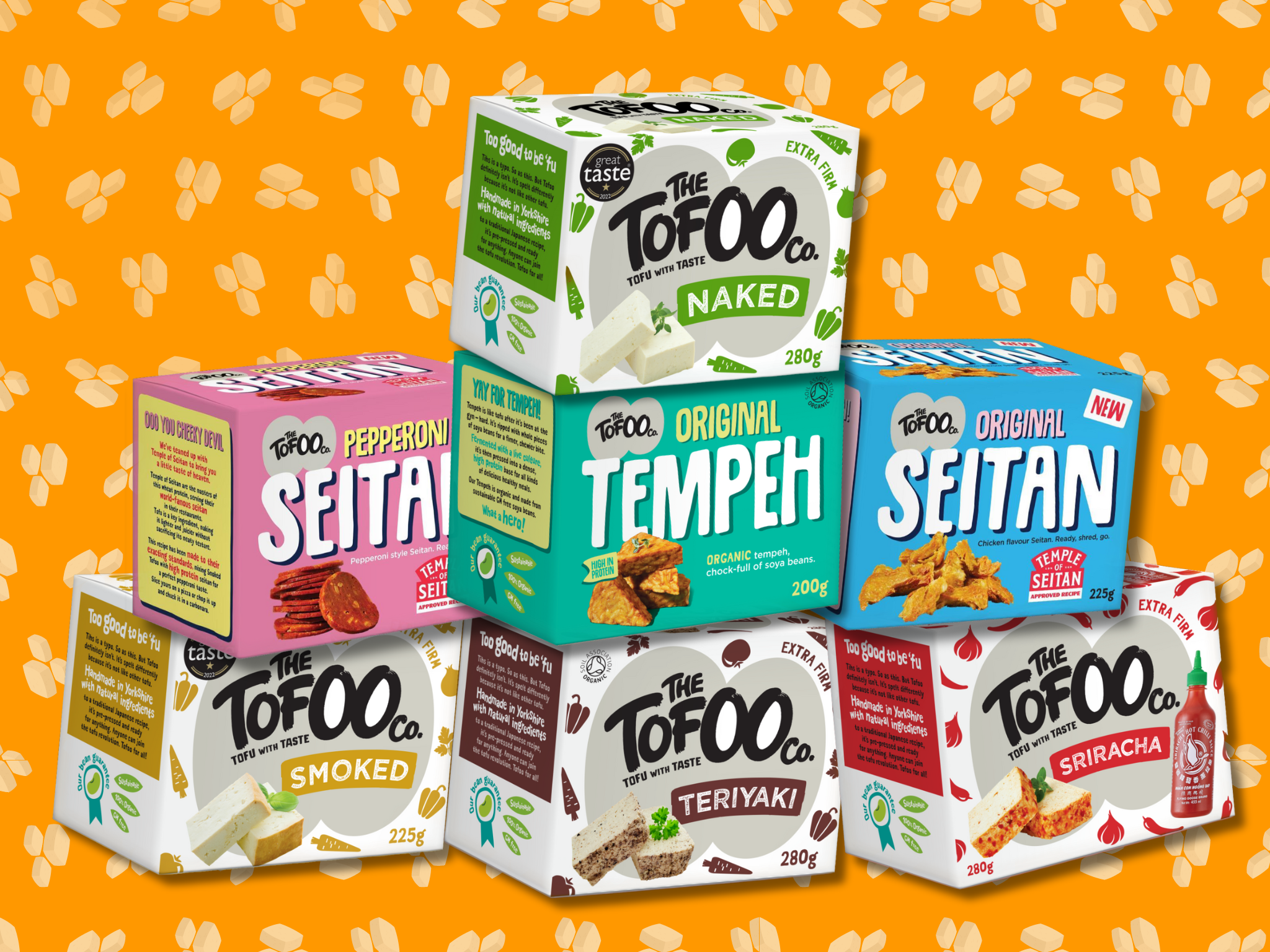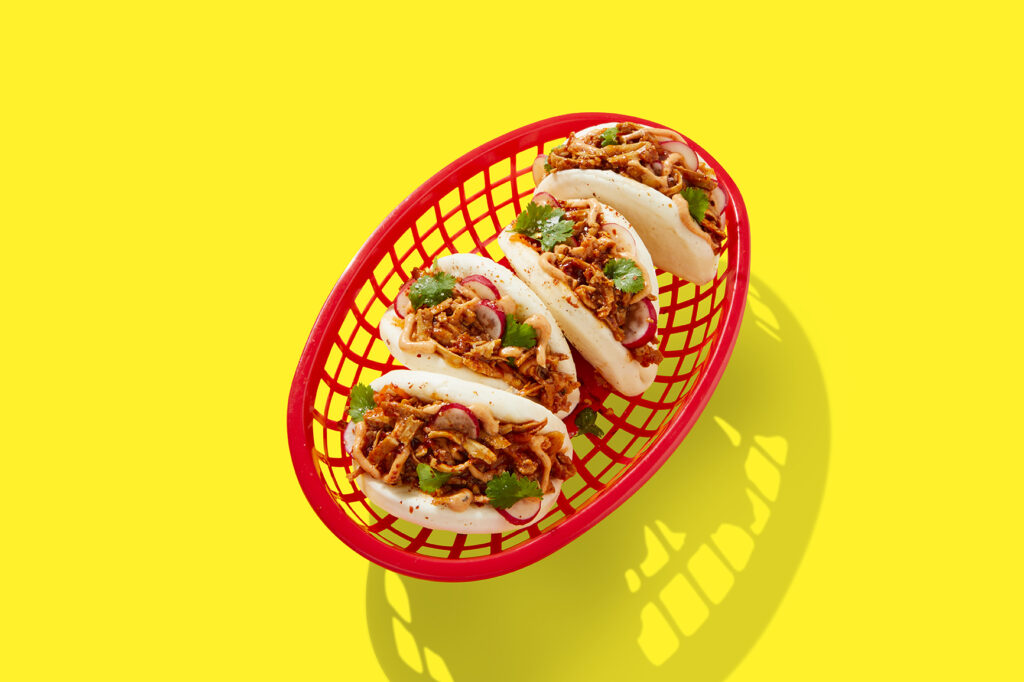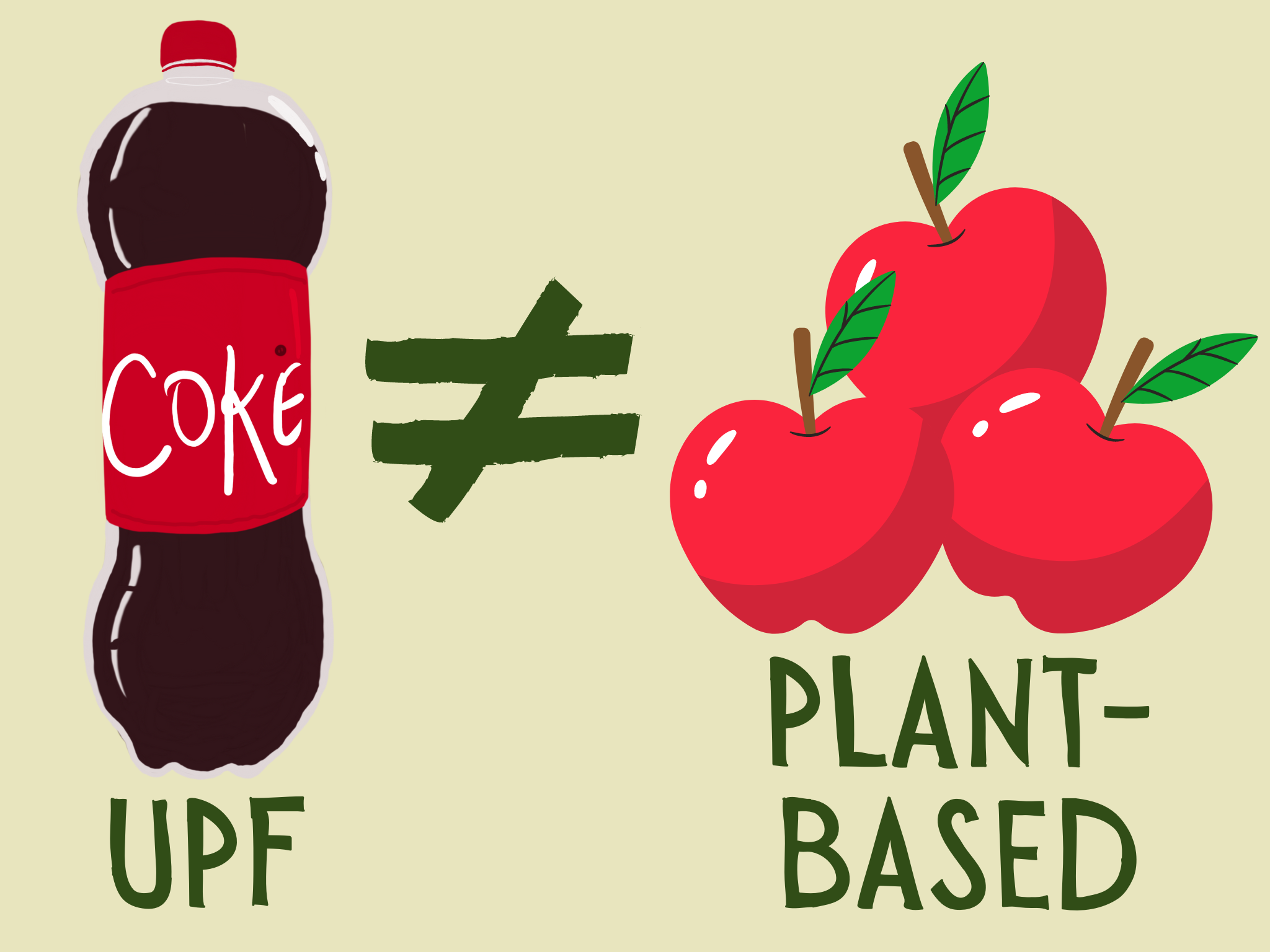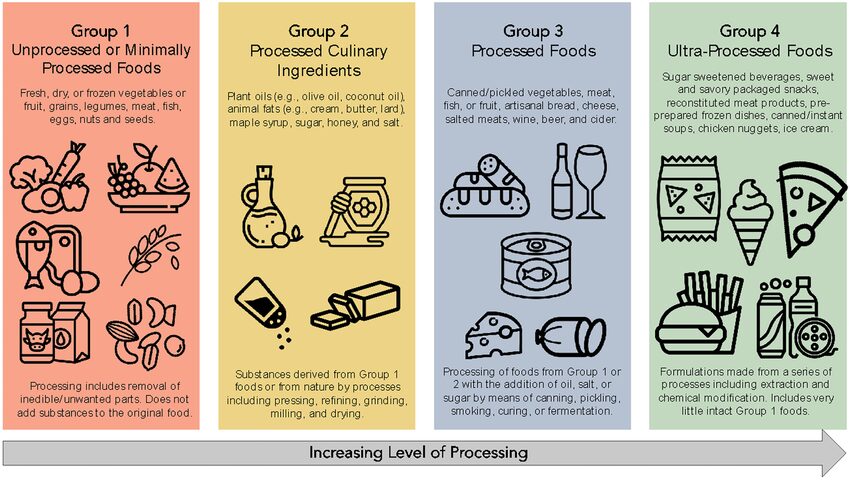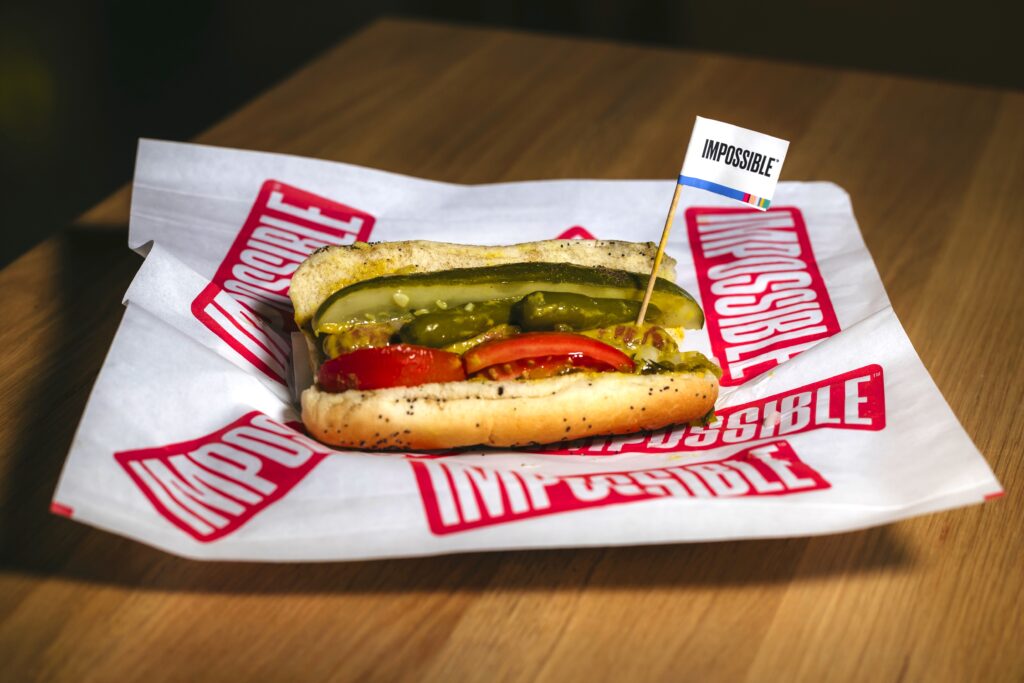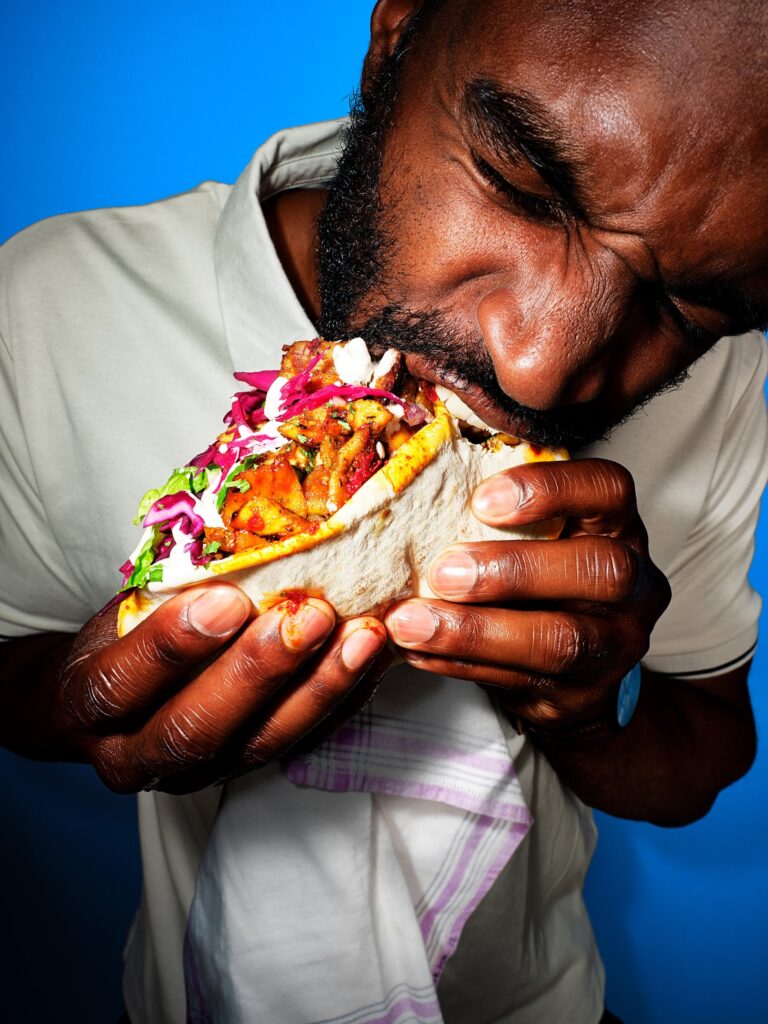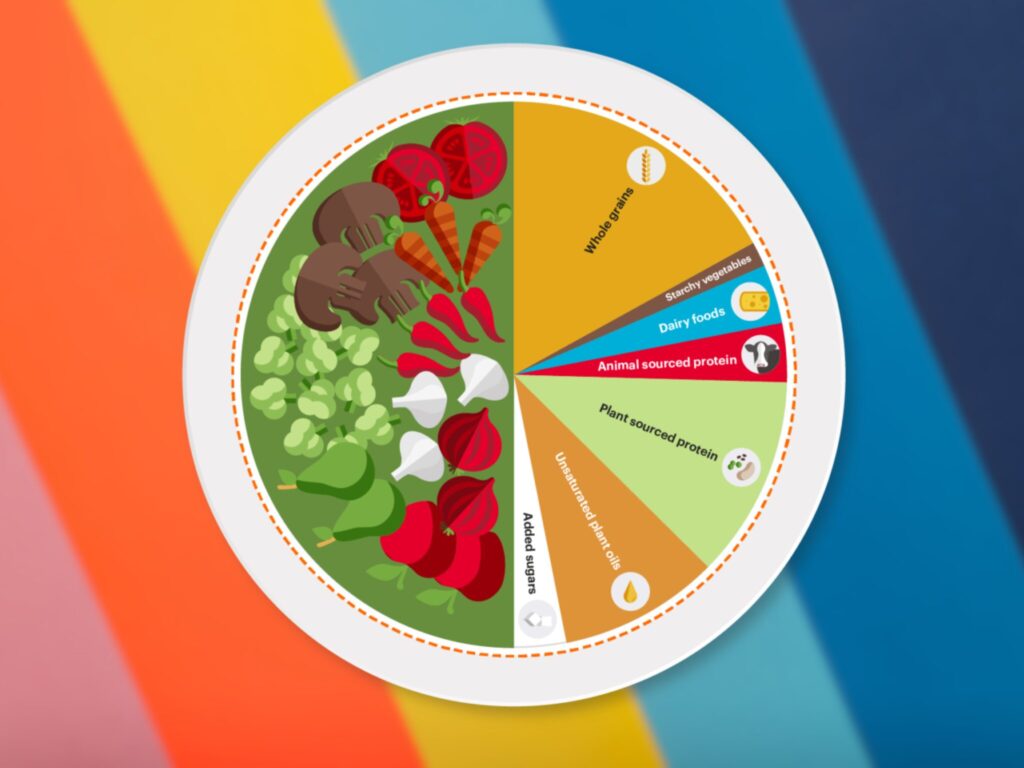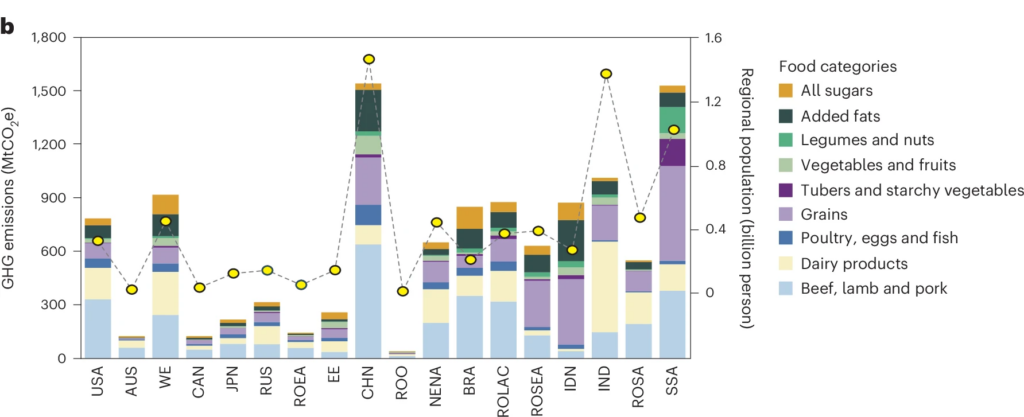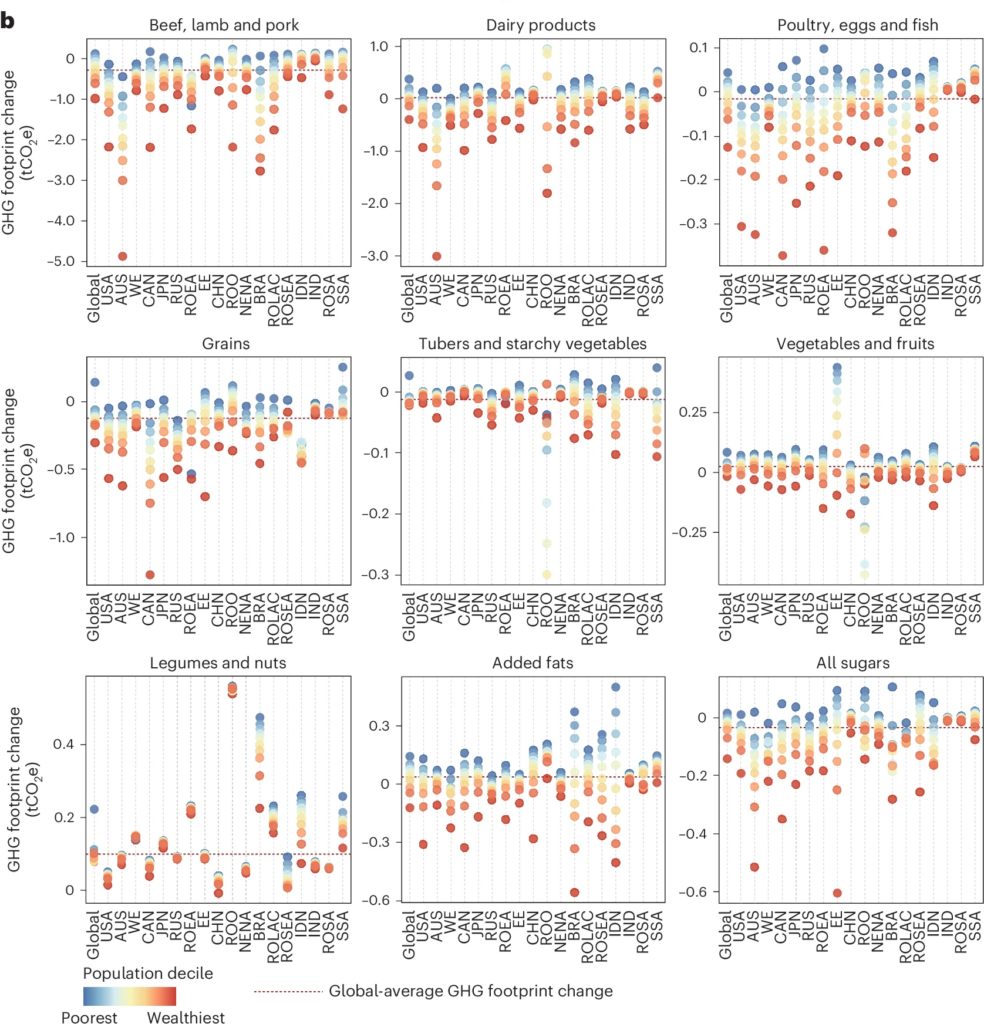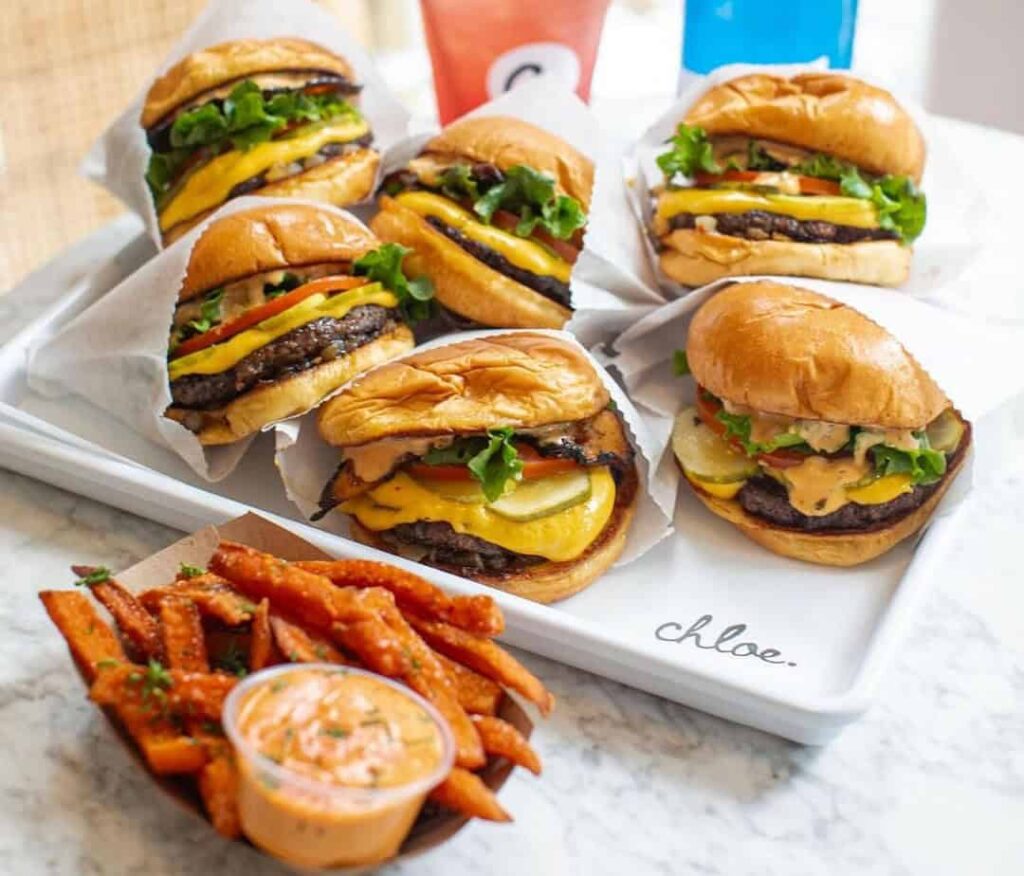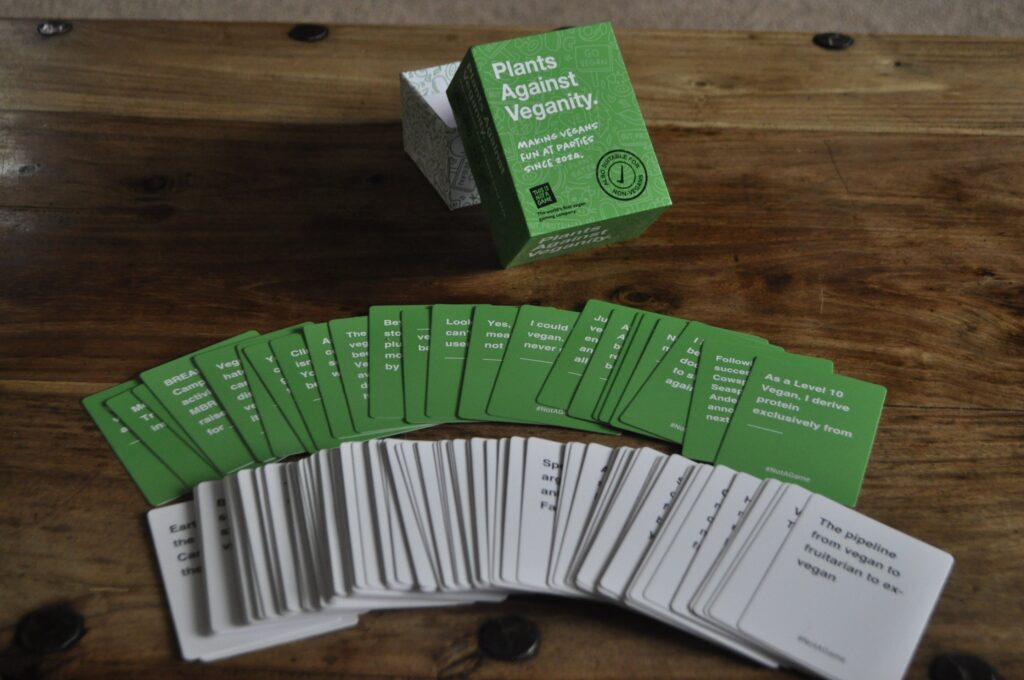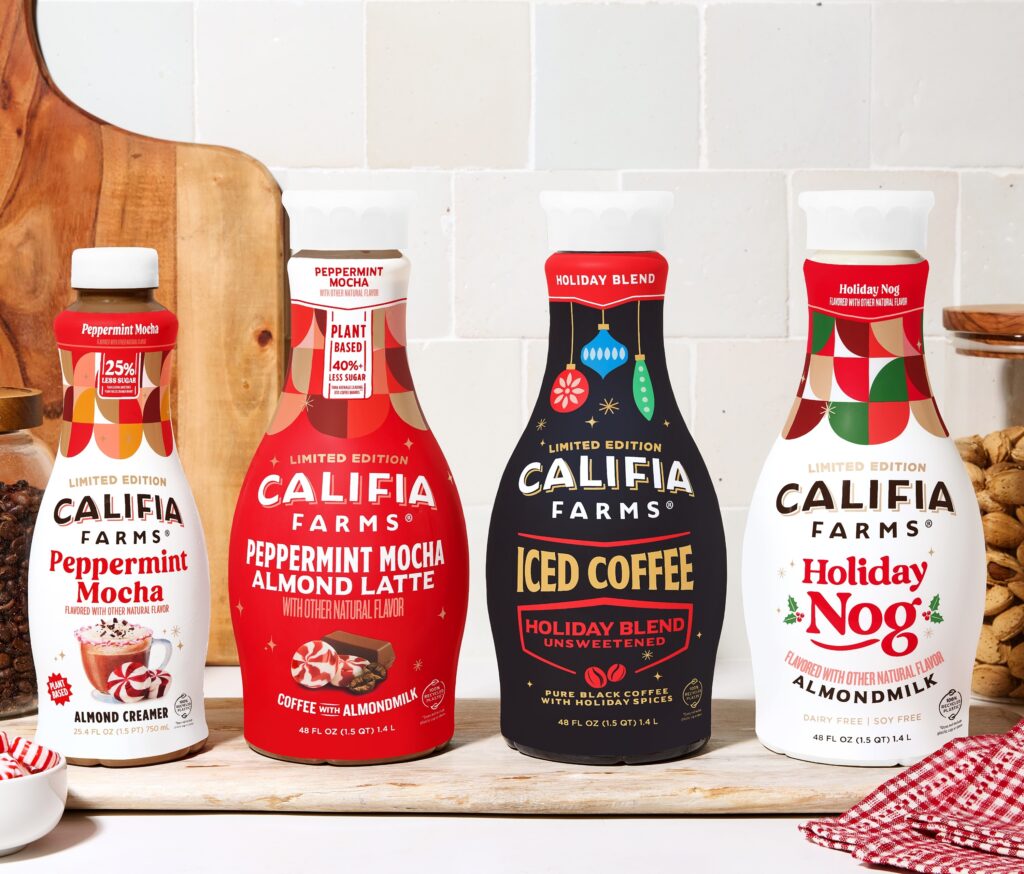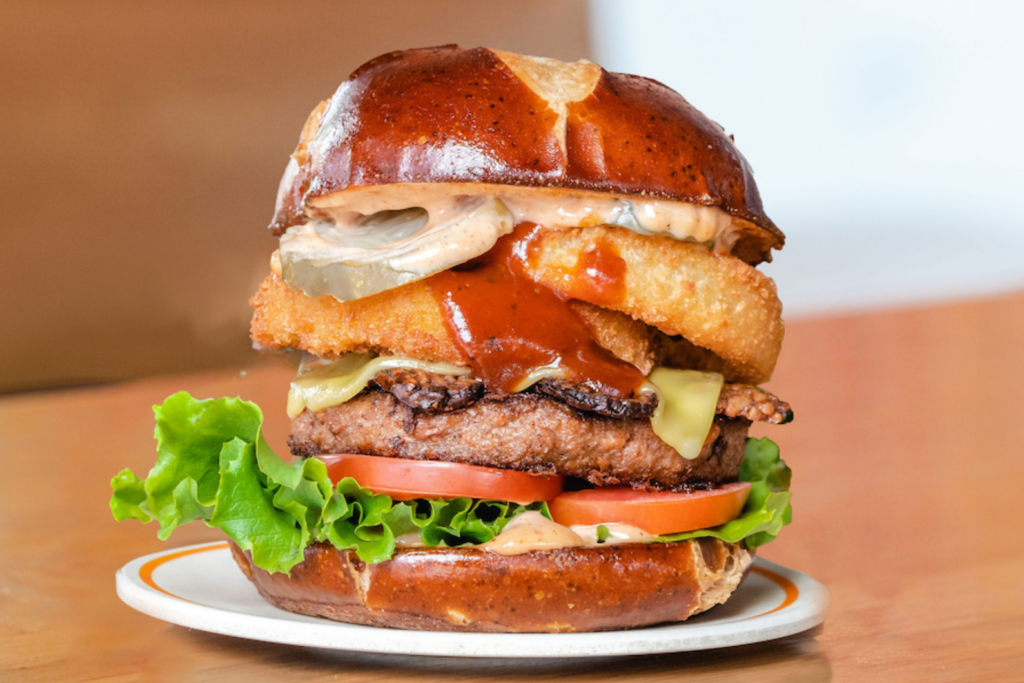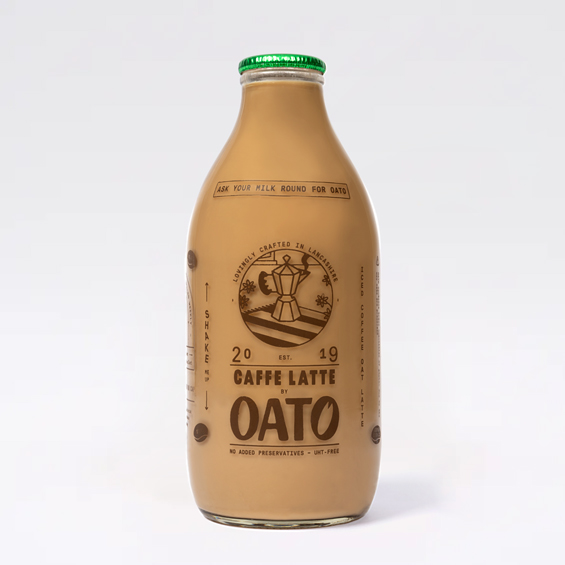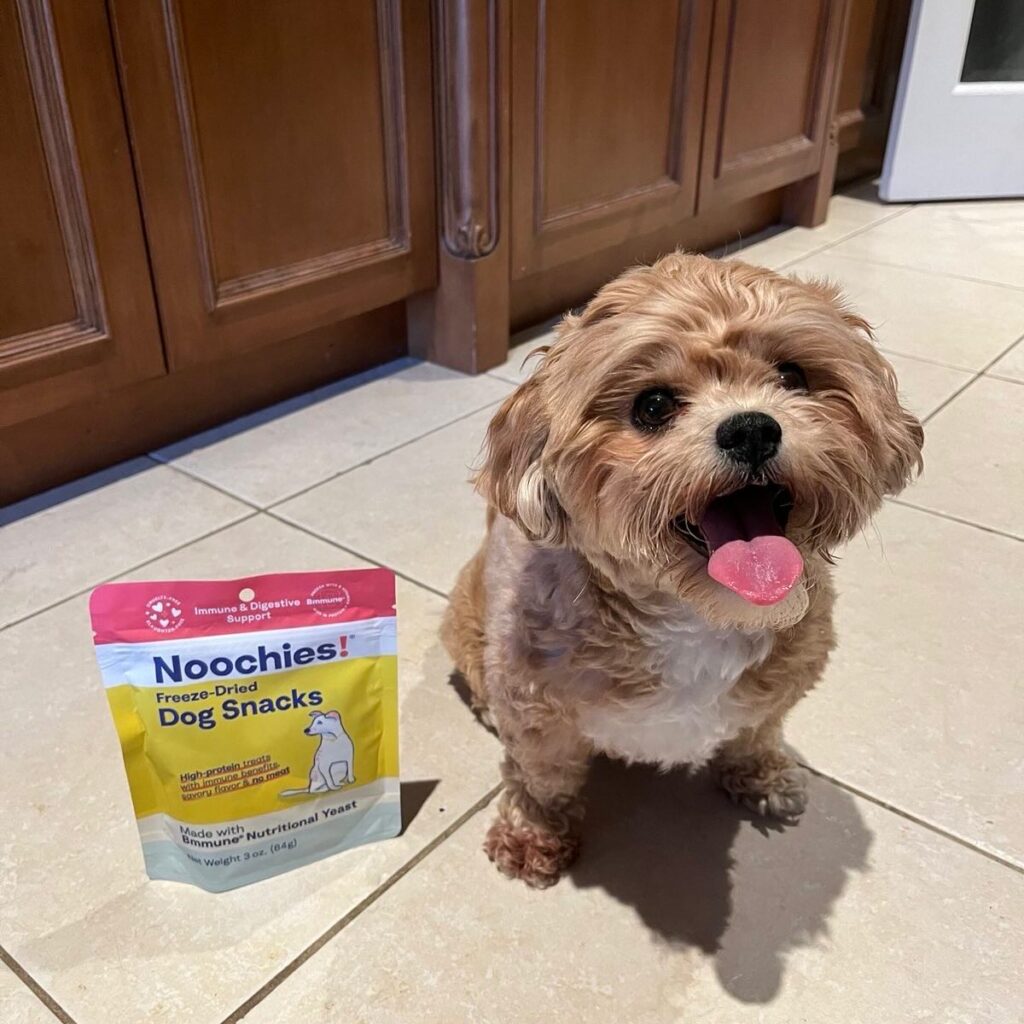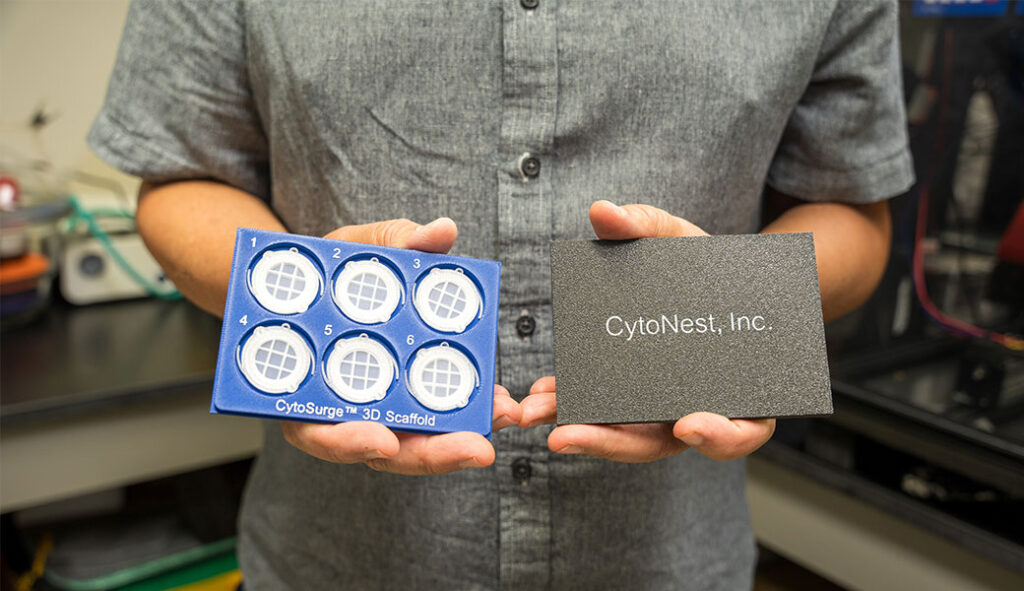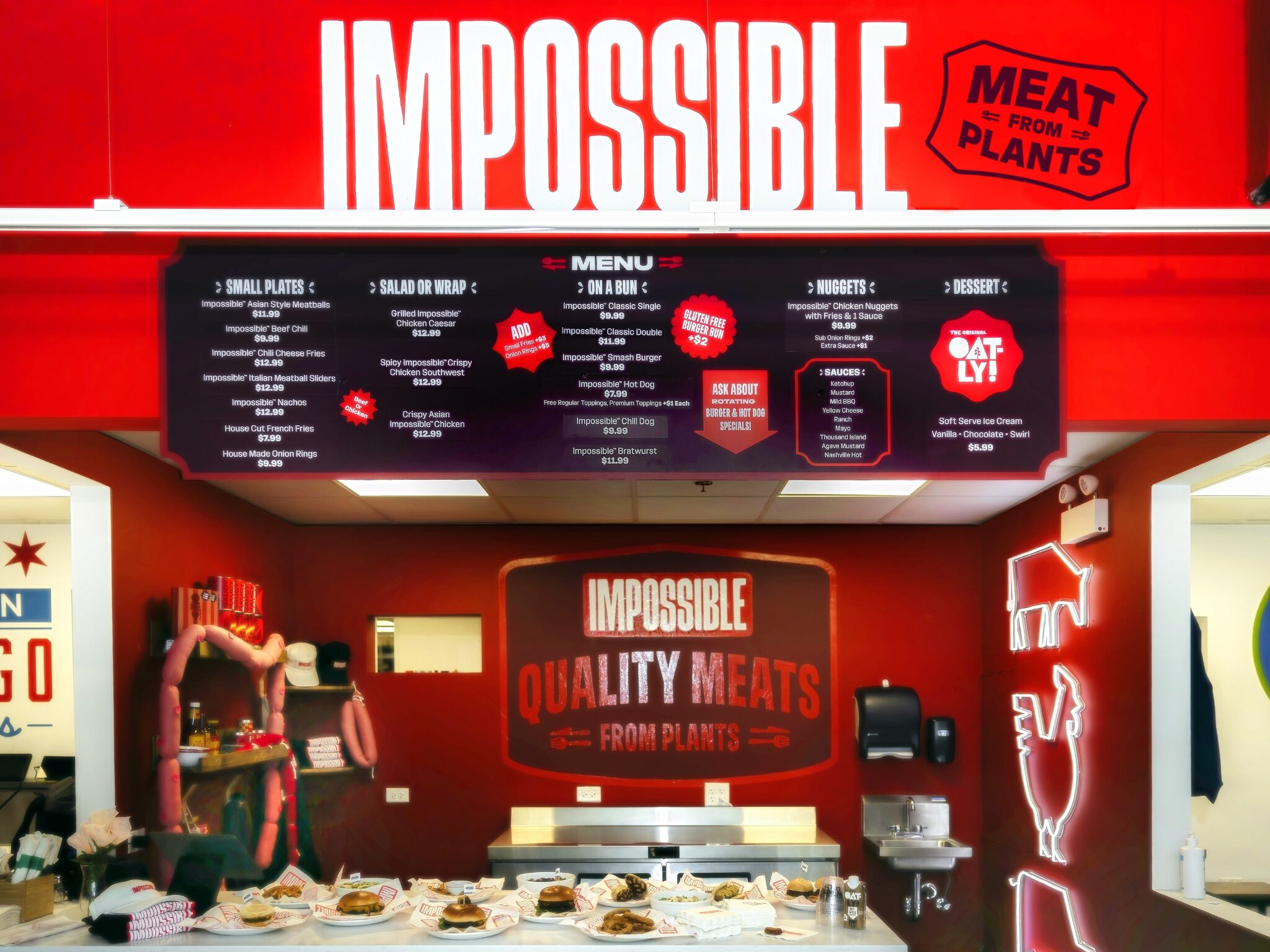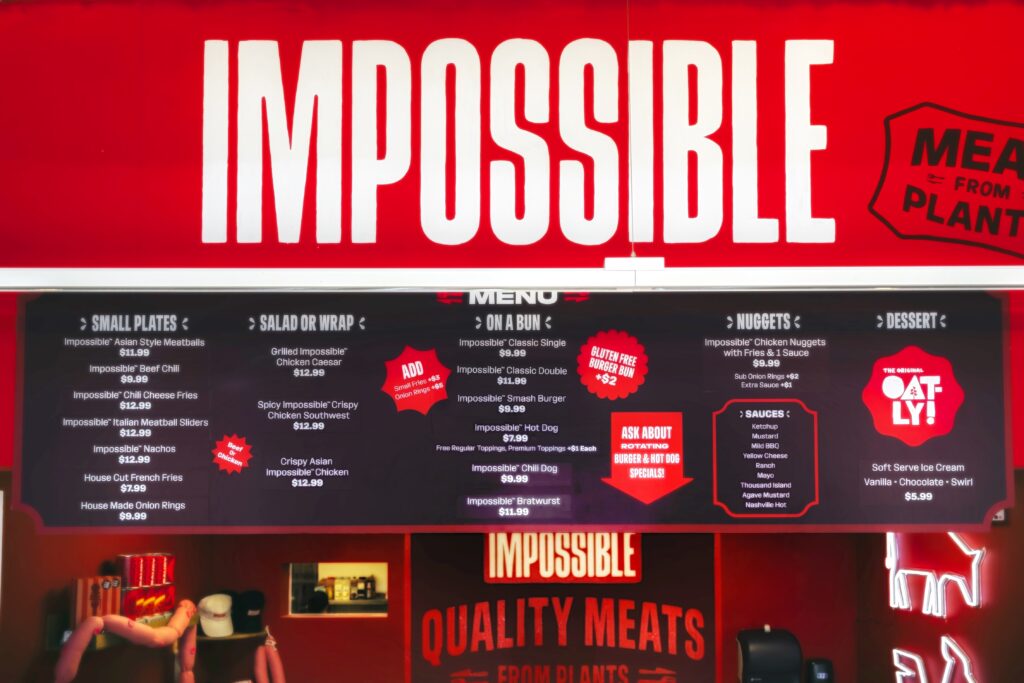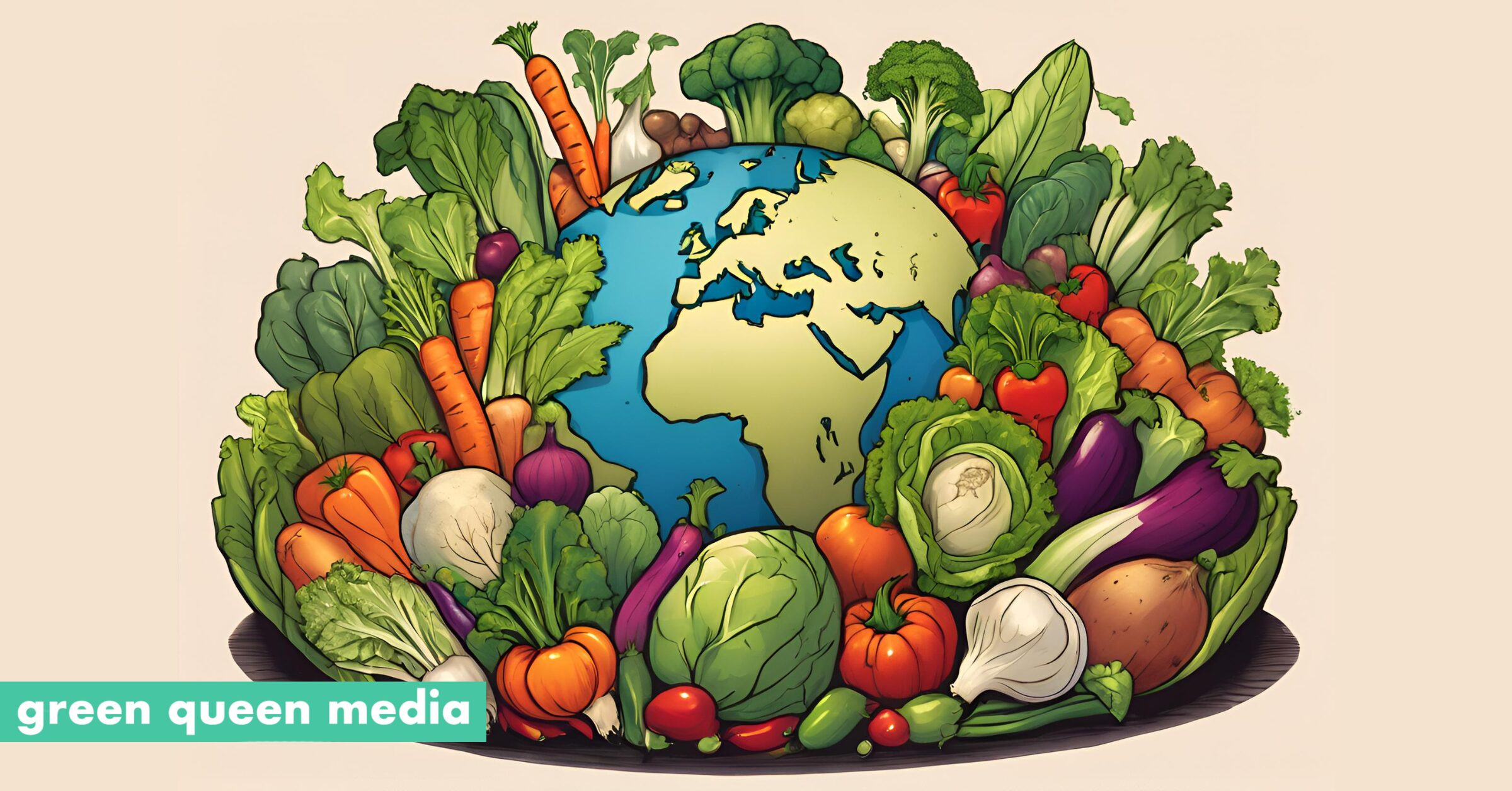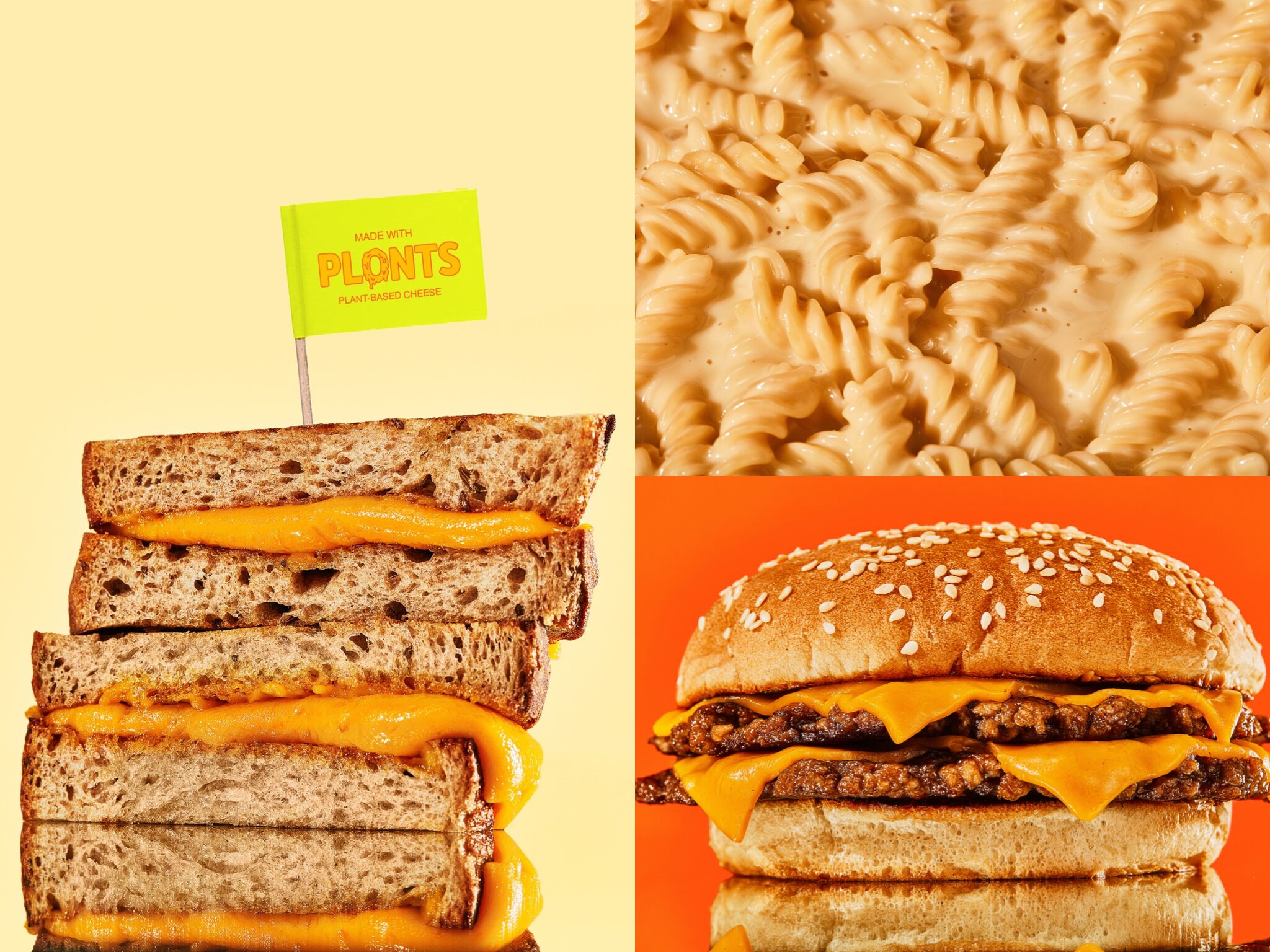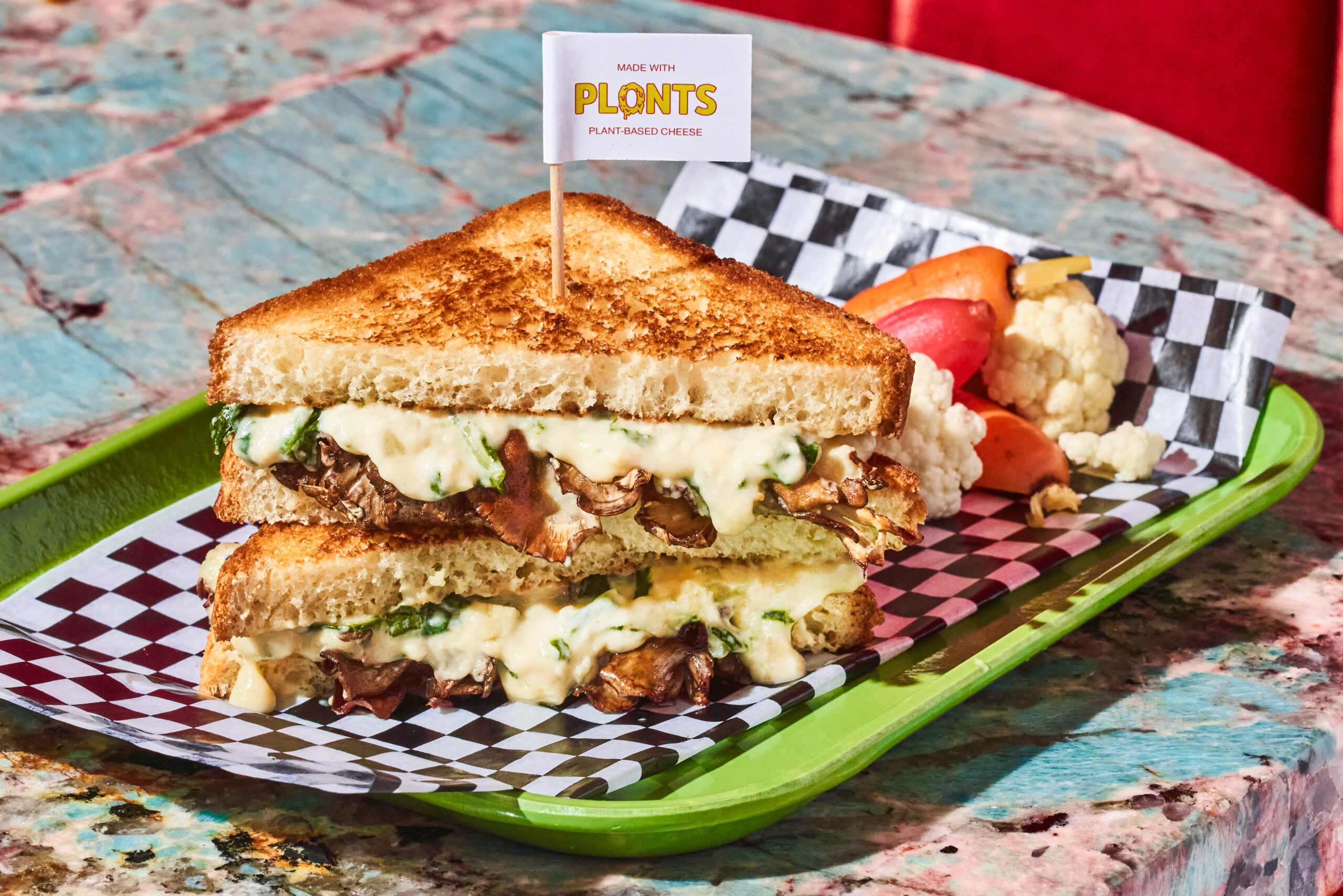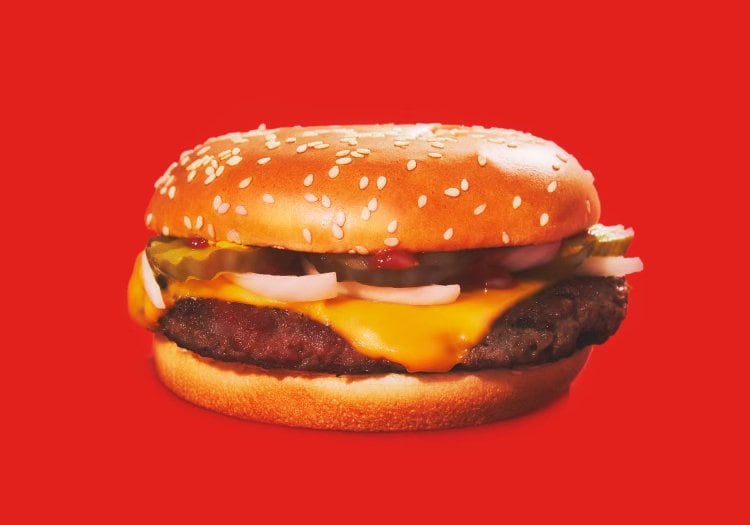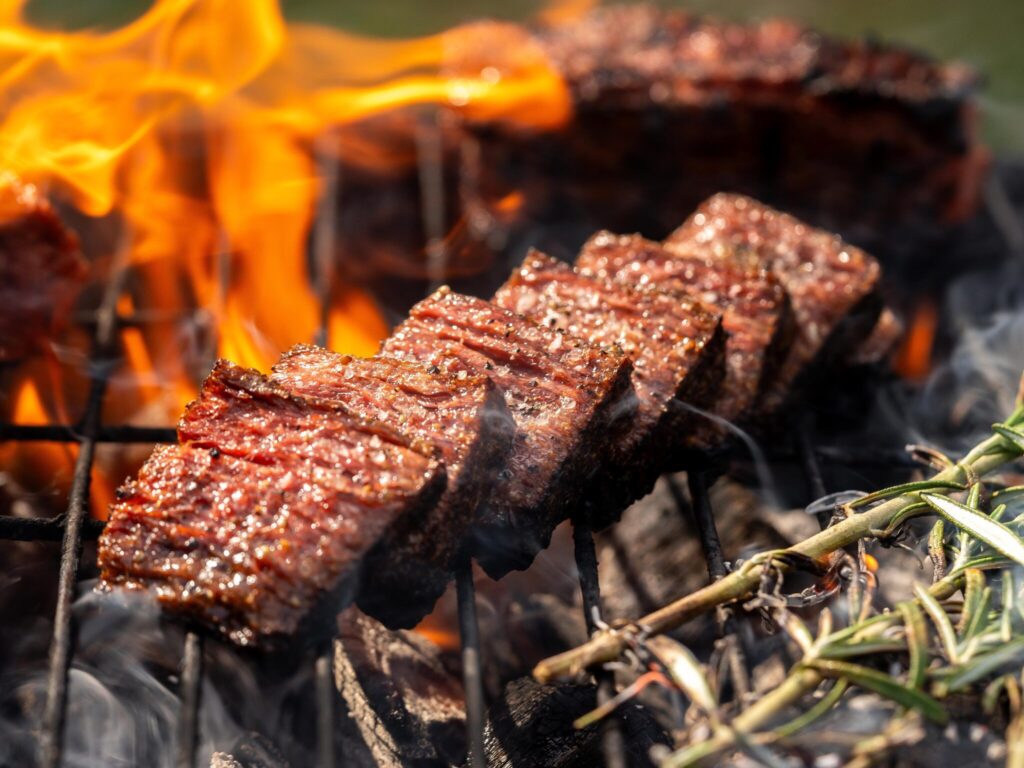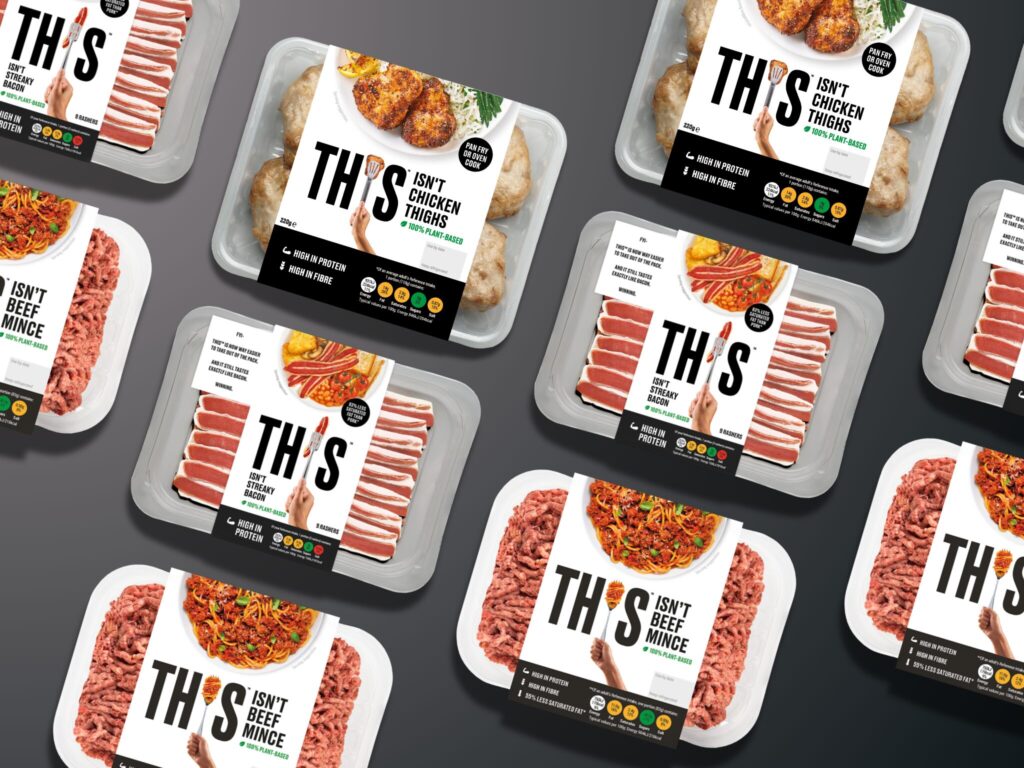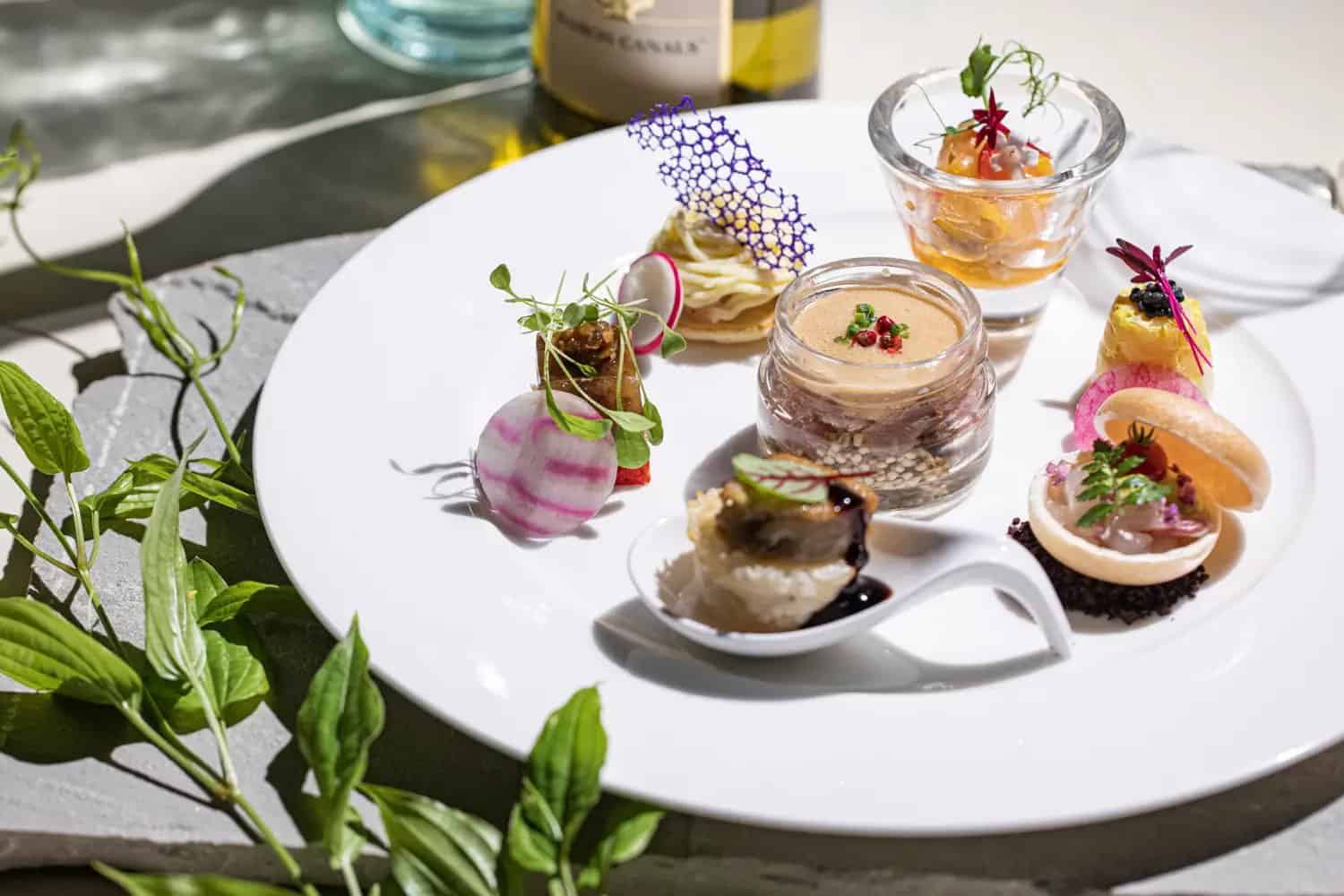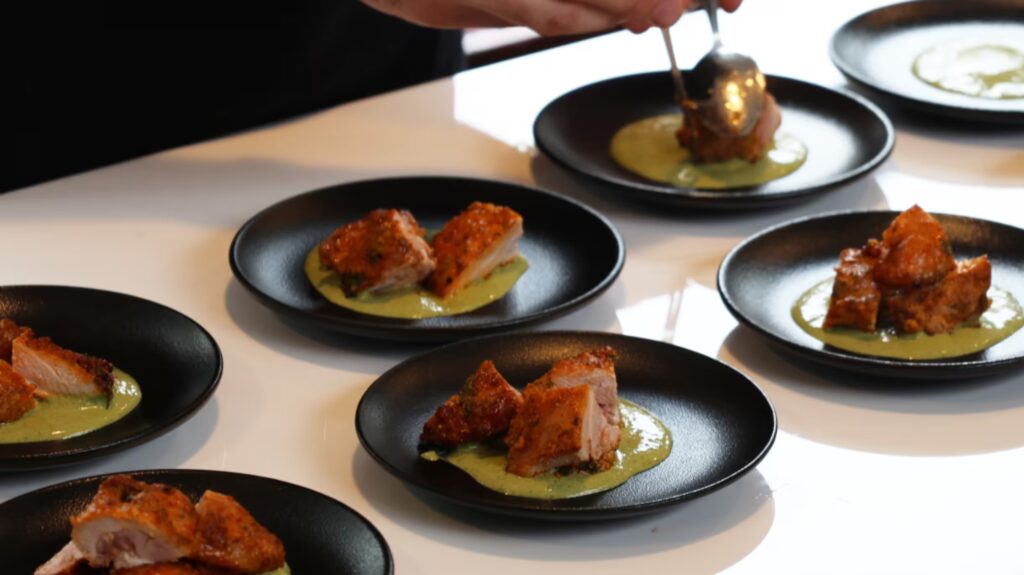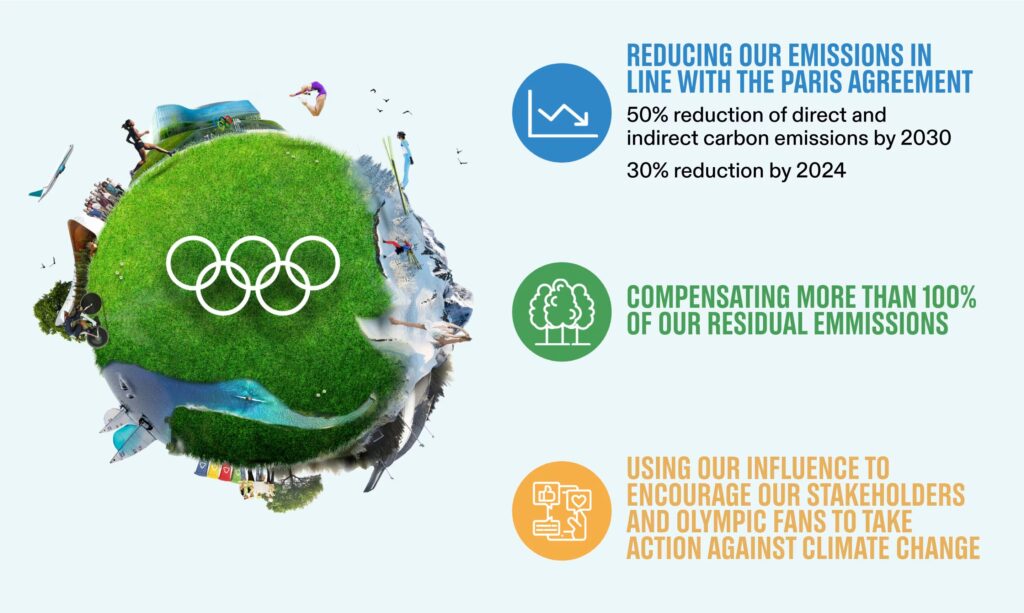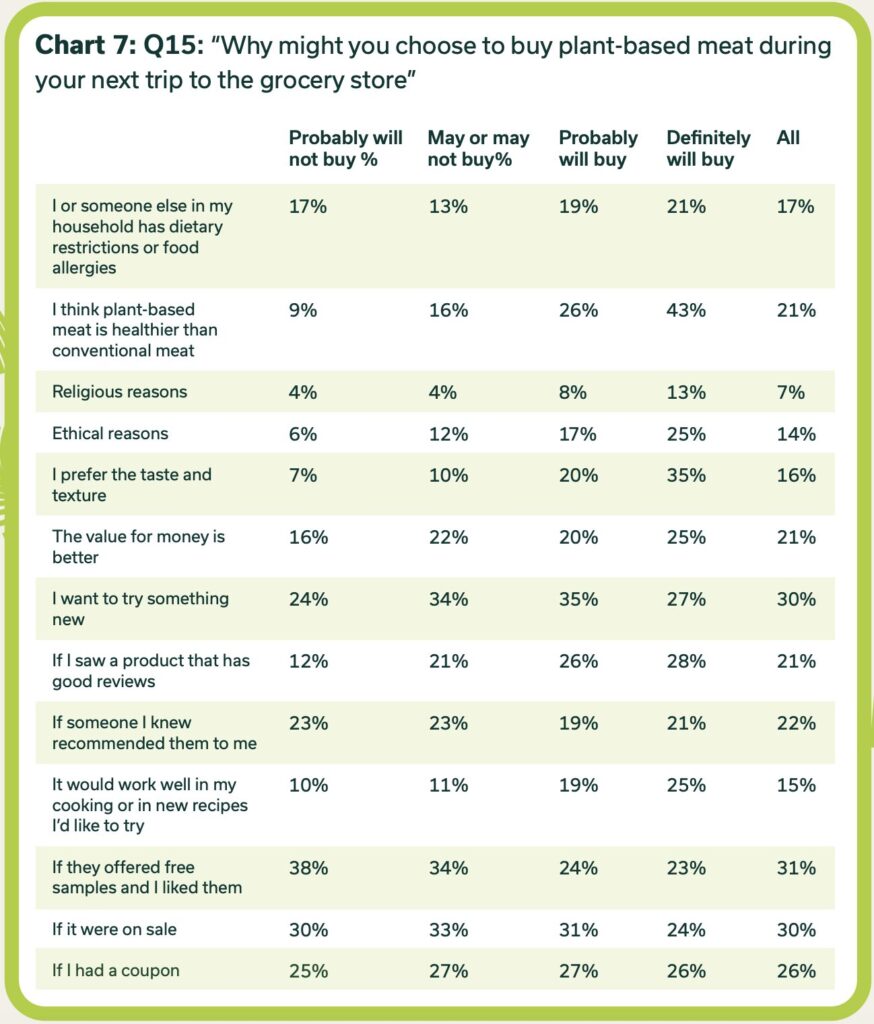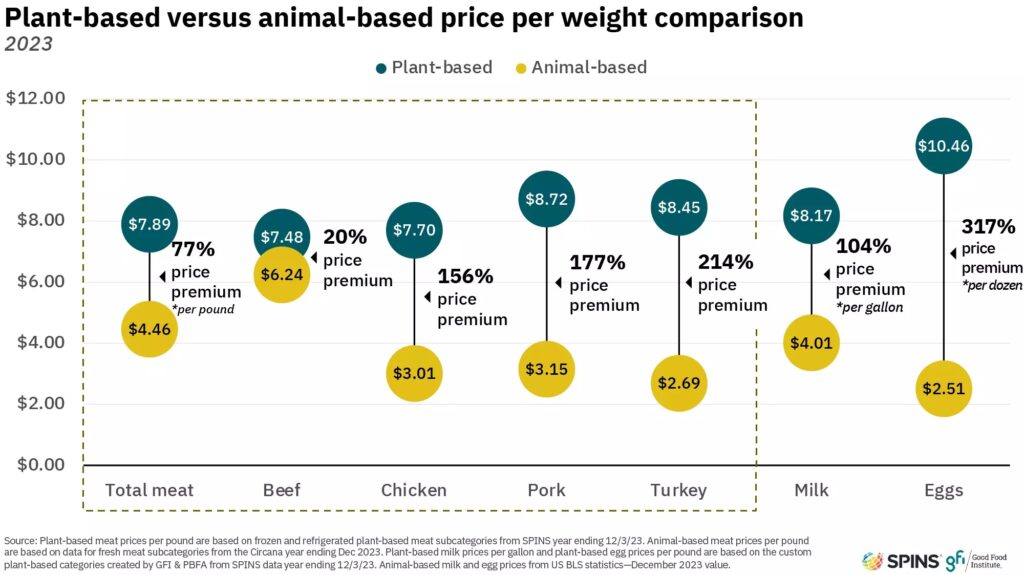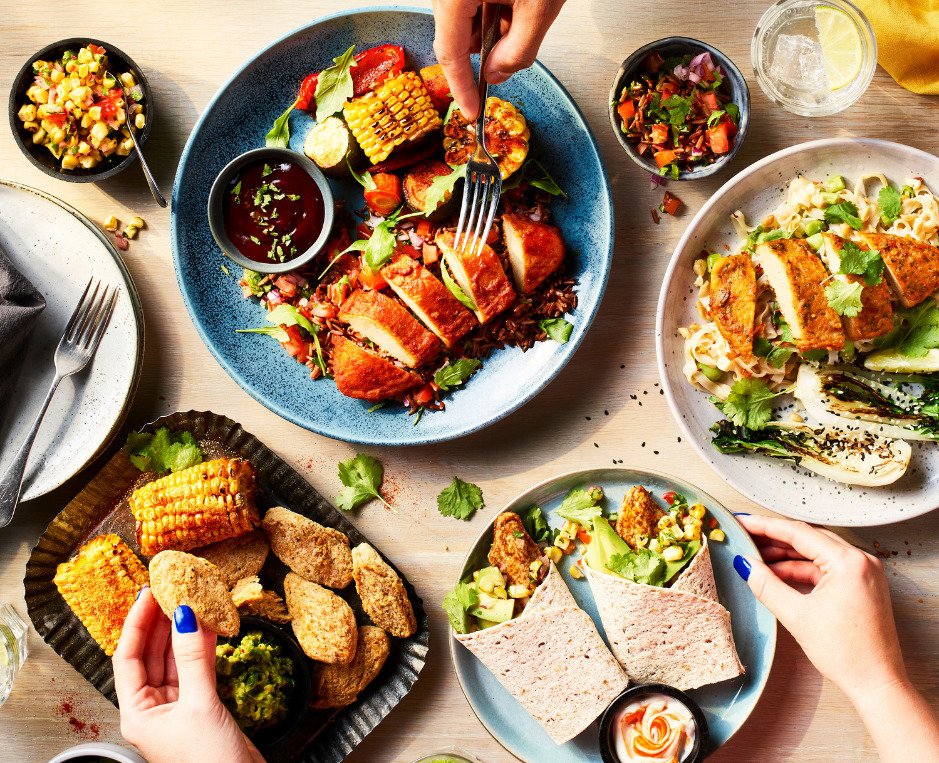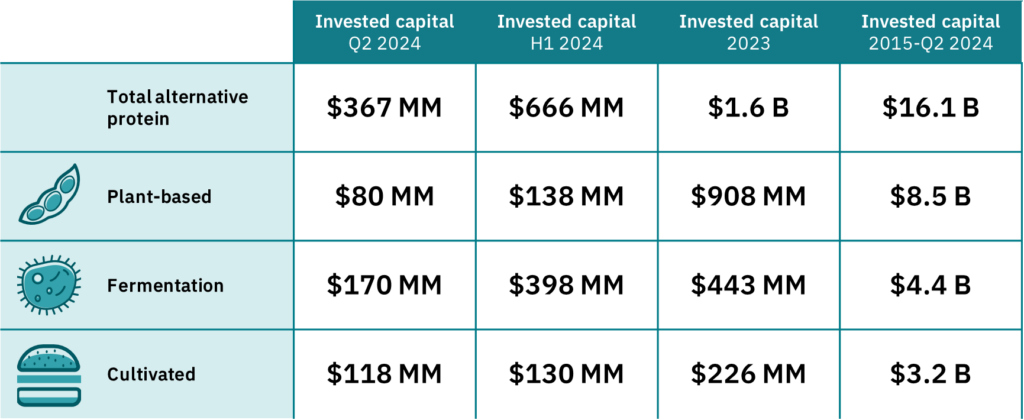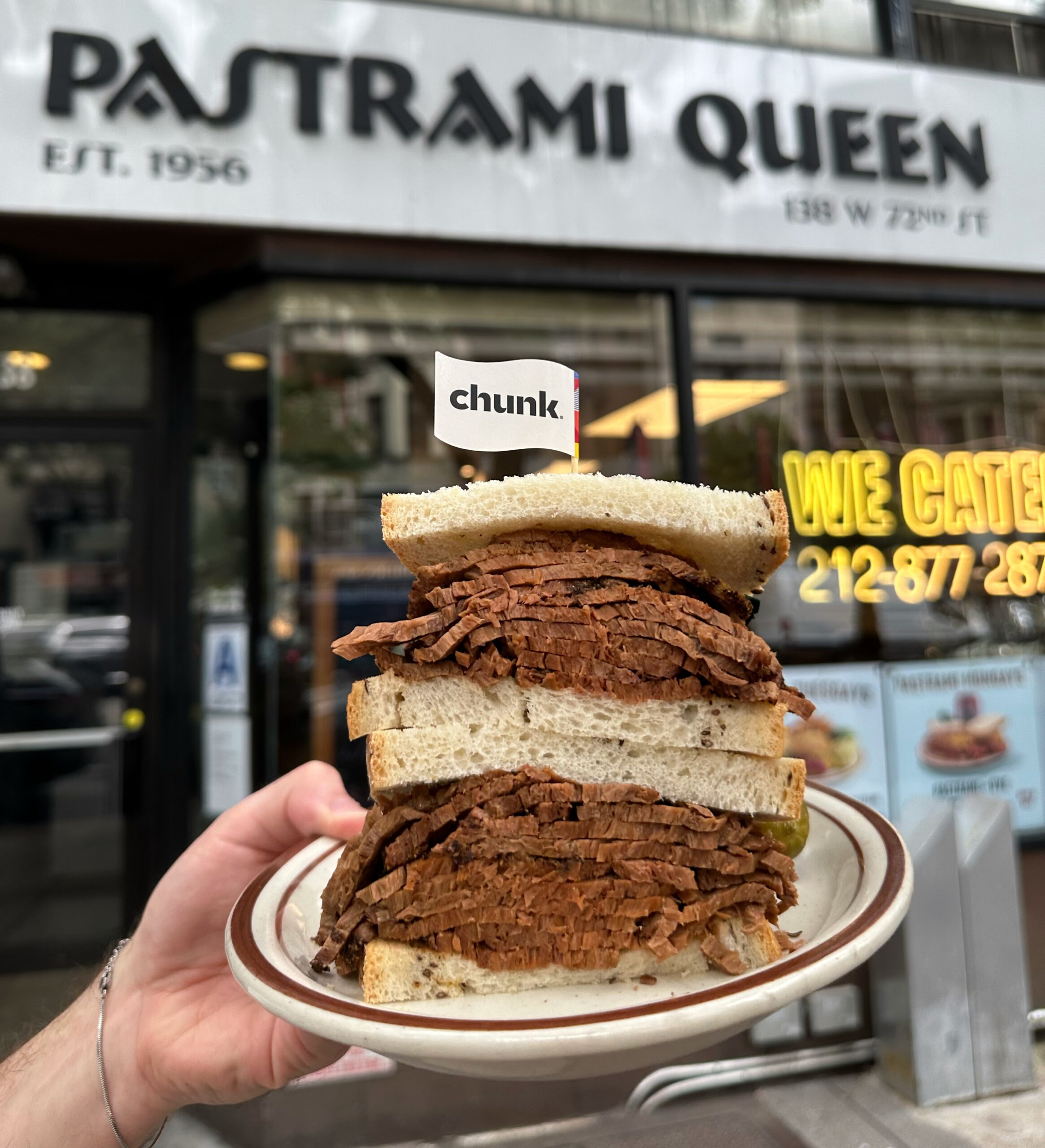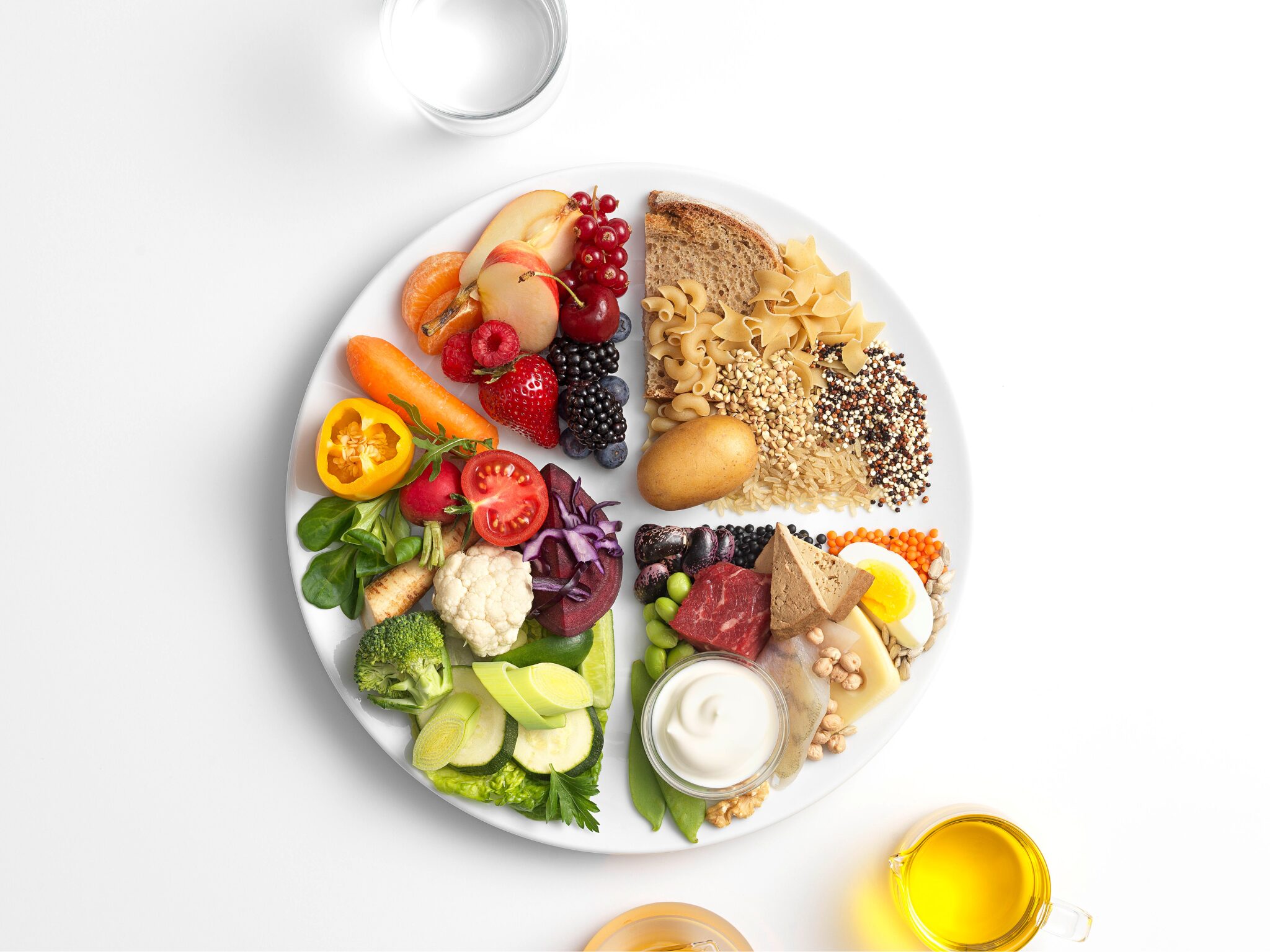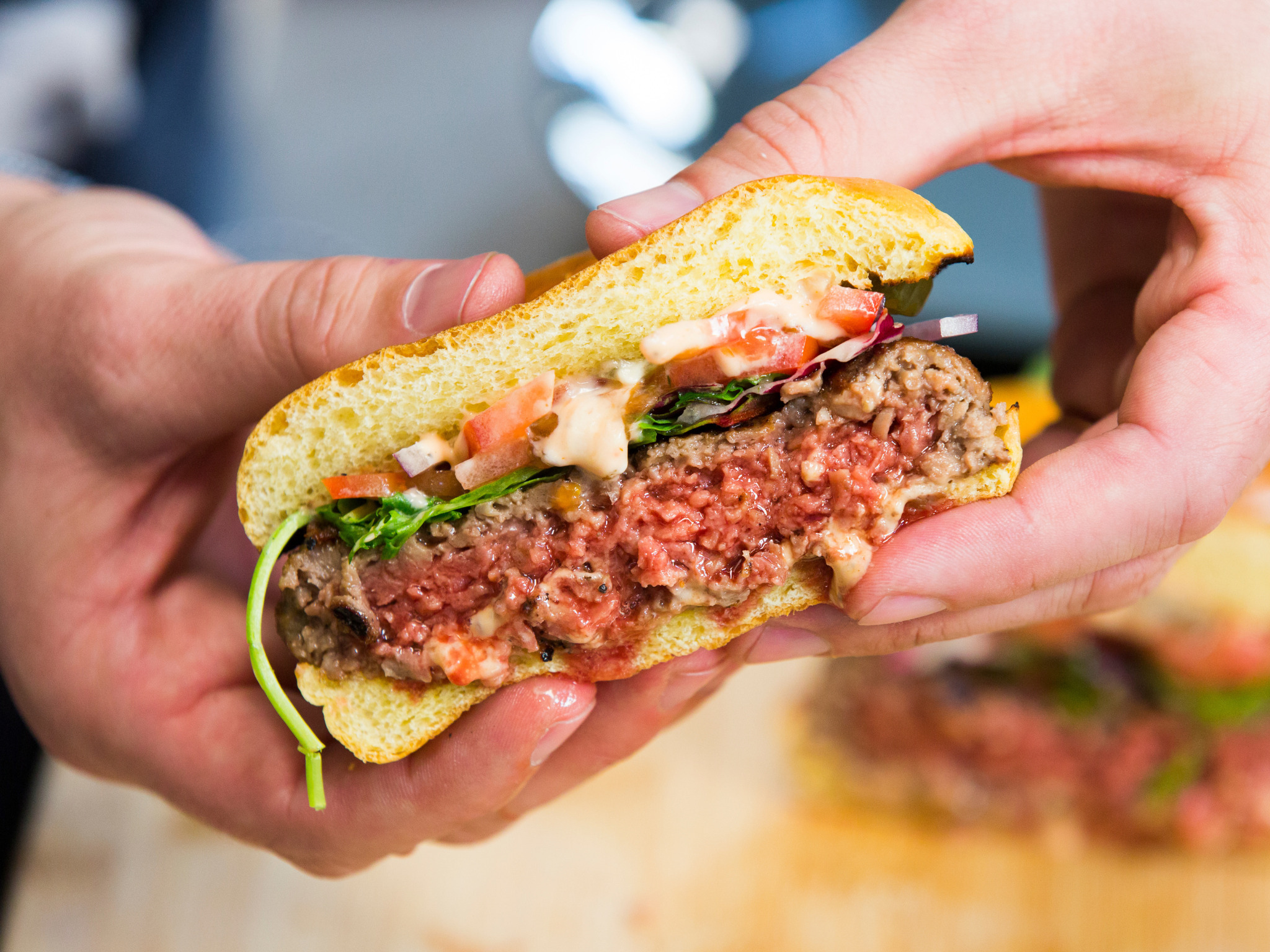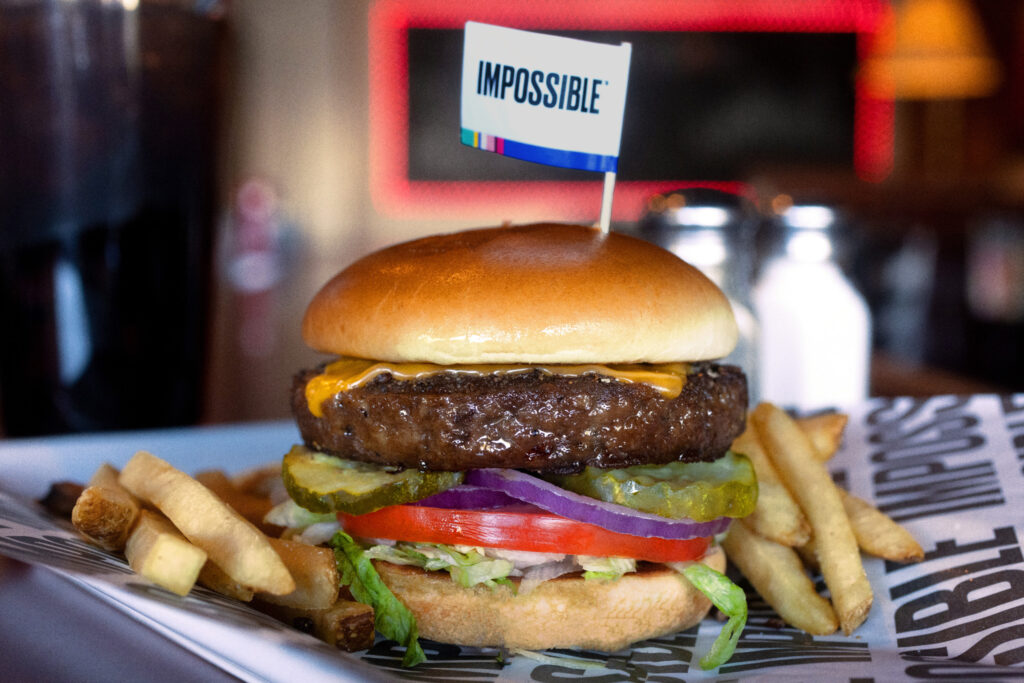In a major victory for cows, Starbucks announced that it will stop charging extra for vegan milks, effective November 7! The move follows a vigorous four year campaign, letters from more than 160,000 PETA supporters, protests at Starbucks around the country, and help from actor James Cromwell who glued his hand to a café counter in protest and starred in a satirical video calling out the upcharge, as well as an appeal from Sir Paul McCartney.
In September 2024, PETA paused our campaign to allow Starbucks’ new CEO Brian Niccol time to course correct. We’re thrilled that he made the right decision for everyone from cows to compassionate customers. To thank him, we’re sending over a box of cow-friendly vegan chocolates.
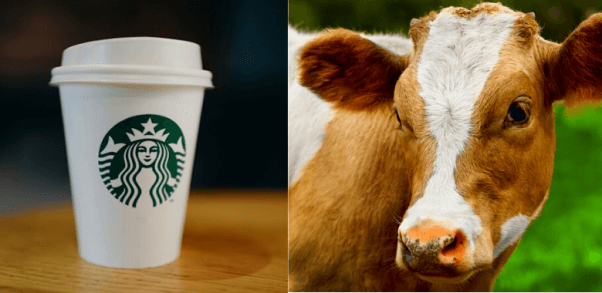
What Does a Surcharge-Free Starbucks Mean for Animals—and the Planet?
Starbucks is a top user of cow’s milk and prioritizes it above all other types of milk. Cow’s milk is a product of the dirty dairy industry, which forcibly impregnates cows, kidnaps their babies, and treats mother cows like milk machines instead of the deeply emotional individuals they are.
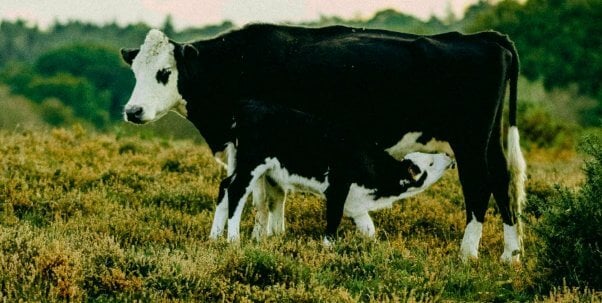
Now, customers are free to choose whichever vegan milk they prefer in their latte and they won’t be unfairly charged for making a compassionate choice!
PETA’s Campaign of Action Against Starbucks
Since 2019, PETA has made business as usual impossible for Starbucks. Here’s what we and our supporters have done so far to push the company to ditch its vegan milk upcharge.
Icons of Protest: We Took a ‘Dead Calf’ and ‘Polar Bears’ on Tour
To remind Starbucks and its customers about the cruelty that goes into drinks made with cow’s milk, PETA protesters took an extremely lifelike “dead calf” stuffed into a giant Starbucks cup to demonstrations outside the chain’s stores across the country.


We also had a pack of “polar bears” occupy several Starbucks cafés to illustrate how the dairy industry contributes to melting the ice caps, killing polar bears, and otherwise driving the climate catastrophe.
100+ Days of Nonstop Protests
Because Starbucks agrees that animal-friendly vegan milks are better for the planet yet continues to charge extra for them, PETA and Animal Rights Initiative supporters descended on the café at Starbucks headquarters in Seattle and protested every single day for over 100 days, starting in January 2022.

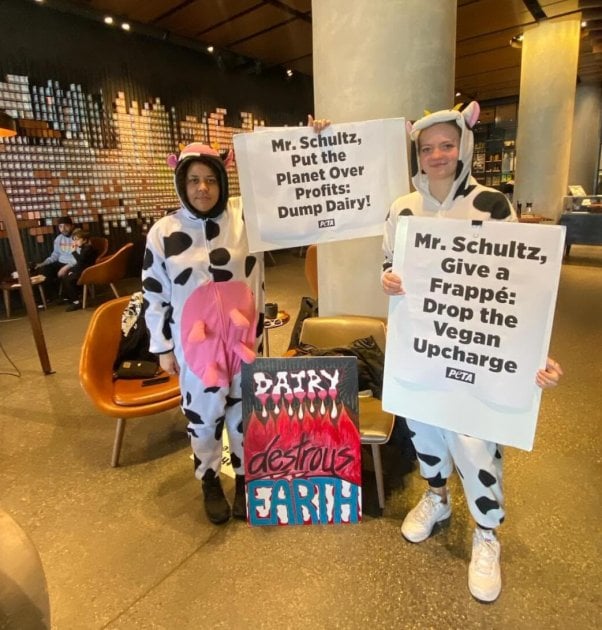
We Brought the Action to Starbucks and Its Execs
PETA and our allies brought our A game to direct actions in protest against Starbucks’ vegan milk upcharge.

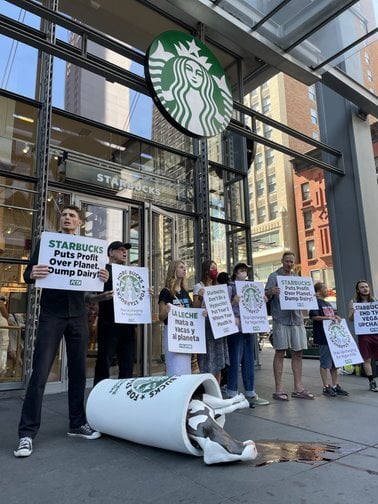
Read The Reports
November 15, 2019: On the day when the largest Starbucks location in the world opened its doors in Chicago, PETA supporters marked the occasion by sitting outside the store all day with posters proclaiming, “Soy Milk Surcharge Sux.”
Protesters pointed out that Starbucks’ extra charge for dairy-free milk punishes those who are lactose intolerant—most of whom are people of color—and anyone who simply wants to reduce methane gas emissions or opposes cruelty to cows.
January 29, 2021: After Starbucks CEO Kevin Johnson acknowledged that vegan milk is “a big part of the solution” in reducing the company’s carbon footprint, PETA’s “climate change cow” hand-delivered a letter to the company’s Seattle headquarters calling out Johnson and his disingenuous pledge to make changes to benefit the environment.
December 9, 2021: A mock website called out Starbucks for claiming to be committed to inclusion and diversity while still charging extra for nondairy milk—something that PETA has been challenging the company on for years, in light of the dairy industry’s cruelty to cows and people’s concerns about greenhouse gas emissions and their own health.
PETA cheered on these pranksters—who are apparently from the group Switch4Good—and their hoax news release (which took the internet by storm and even had multiple outlets reporting on it before realizing that it was all a ruse).
December 23, 2021: Christmas came early for Starbucks CEO Kevin Johnson when PETA’s little helpers delivered a heaping pile of coal and a letter of admonishment to his door. The bold stunt was a reminder to the company that until it stops penalizing customers who care about animals, their own health, and the environment, it will remain on PETA’s naughty list.
March 16, 2022: PETA supporters joined Animal Rights Initiative in a spirited demonstration outside Starbucks’ headquarters in Seattle in which activists dressed as cows took center stage, drenched themselves in fake blood, and performed as a mother cow mourning the abduction of her baby—which is a reality for mother cows, whose calves are torn away from them by the dairy industry.
April 6, 2022: As new Starbucks CEO Howard Schultz started his first day on the job, PETA supporters joined Animal Rights Initiative for a spirited demonstration in Seattle. Udderly fed-up “cows” stood inside the company’s headquarters with signs explaining that the dairy industry is a leading cause of the climate catastrophe, and PETA supporters outside encouraged passersby to tell Starbucks to ditch the upcharge for dairy-free milk.
May 1, 2022: Members of PETA and Animal Rights Initiative protested outside Starbucks CEO Howard Schultz’s lakeside gated community, calling him out for charging customers extra for animal-friendly vegan milk. The company gave former Starbucks CEO Kevin Johnson a $60 million payout when he stepped down in March, which alone could have offset nearly 86 million70-cent vegan milk upcharges.

July 13, 2022: On the day Starbucks opened its new grab-and-go café in the lobby of The New York Times Building—directly across the street from Sir Paul McCartney’s PETA billboard calling on the chain to stop charging customers extra for vegan milks—PETA was on hand to cause a ruckus with our “bloody calf” prop. Customers who missed PETA’s bold demonstration could still see our powerful billboard featuring the former Beatle.
August 18 and November 18, 2022: PETA supporters encased their feet in blocks of concrete and blocked the driveway and drive-through at Starbucks stores in Detroit and Nashville, Tennessee, while wearing shirts emblazoned with messages such as “Not Your Mom, Not Your Milk.”
Celebrities Brought PETA’s Message to New Heights
Our celebrity friends, staunch defenders of cows and the Earth, lent their images to sky-high billboards that called for an era of change for the coffee chain.
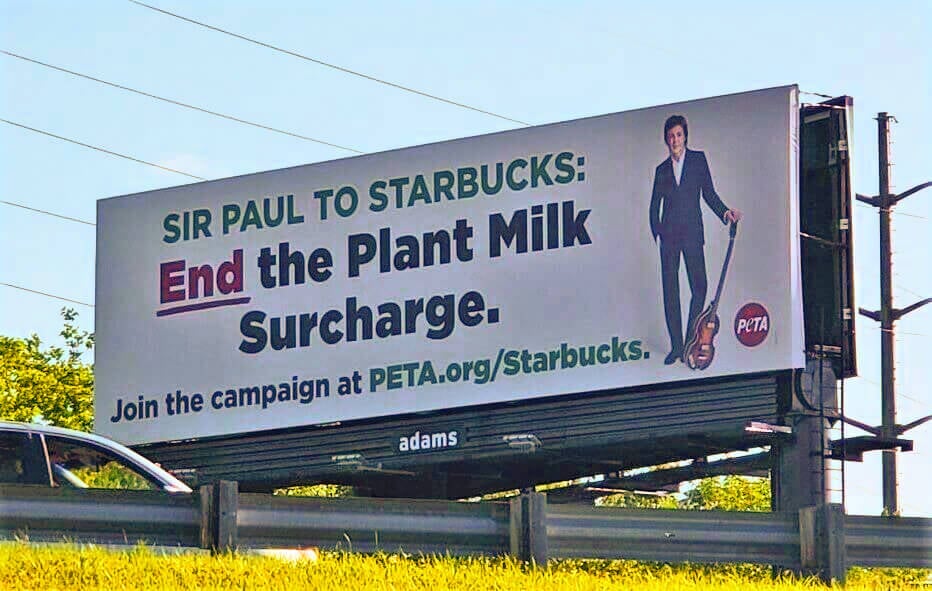

Read The Reports
May and June 2022: PETA billboards featuring Sir Paul McCartney are going up during his national tour at prominent locations in East Rutherford, New Jersey; New York City; Seattle; and Winston-Salem, North Carolina—including one near the company’s headquarters. They urged Starbucks to end its unethical upcharge for vegan milk, a request the pop legend also made in a letter to former Starbucks CEO Kevin Johnson. PETA also joined McCartney on his tour, bringing along information about our Starbucks campaign and other animal rights issues.
May 22, 2023: Ahead of Succession’s May 28 series finale, actor James Cromwell took over the Atlantic City Boardwalk in New Jersey with a message for Starbucks: Stop milking customers who choose vegan options. The actor’s appeal was blasted on nearly 100 screens along the busiest stretch of the iconic walkway and within sight of two Starbucks locations.
PETA Blitzed Starbucks in North America With Our ‘Weeks of Action’
During PETA’s Weeks of Action against Starbucks, supporters occupied Starbucks locations across North America to protest the chain’s vegan milk upcharge.
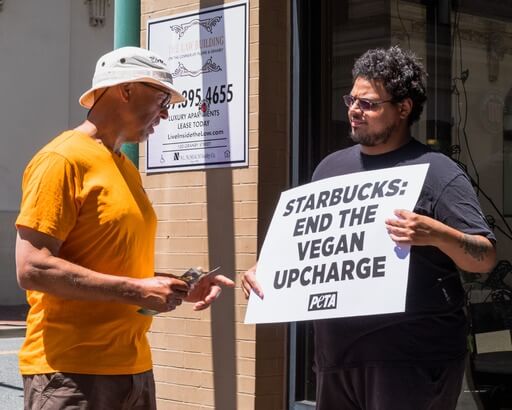

Read The Reports
January 23, 2020: While PETA’s 2020 Week of Action was underway, Starbucks announced that it would add more vegan menu options and push customers to ditch dairy to combat the climate catastrophe, but we remained strong in our demands since the chain only responded with half-measures.
June 21, 2022: PETA took on Starbucks and its unethical vegan milk upcharge during our Starbucks Week of Action from June 20 to 26. Supporters took to the streets in bold demonstrations in Atlanta; Dallas; Orlando; Seattle; St. Paul, Minnesota; and more than a dozen other cities across the U.S. Activists also blasted the company on social media, blitzed the company’s phone lines, demanded change on Yelp, and took other actions.
April 12, 2023: Supporters of PETA and Switch4Good kicked off a weeklong push for Starbucks to drop its “penalty charge” for dairy-free milk, culminating in a sit-in with Animal Rights Initiative at a local Starbucks store. Accompanied by a social media uproar and protests in 23 cities across North America, the week of action followed PETA’s shareholder resolution, which won so many votes that PETA was able to submit it for a new vote in 2024.
Celebs and Others Glued Themselves to Starbucks Counters
To really get the message of outrage at Starbucks to stick, celebrities, a Buddhist monk, and other PETA supporters found a way to put a little more skin into our disruptions—literally.
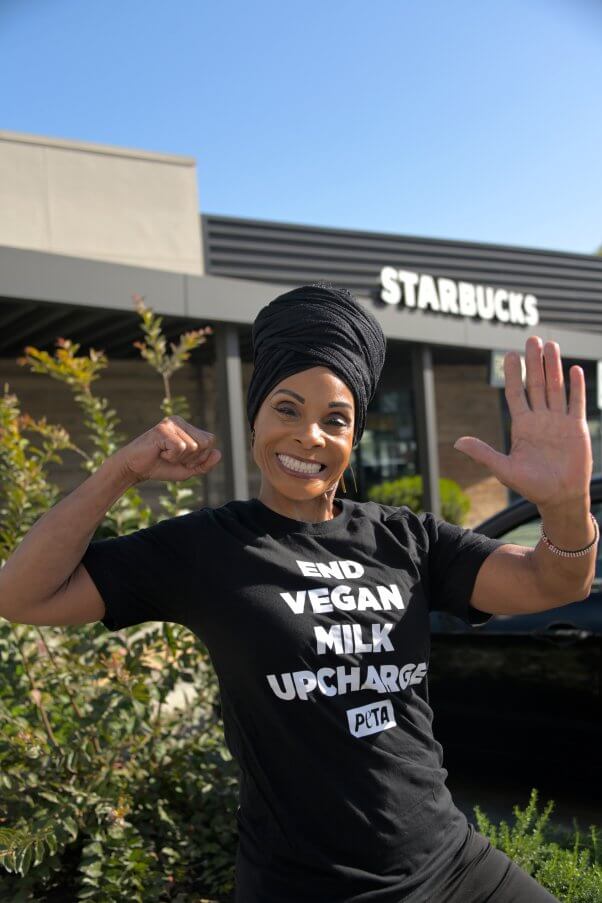
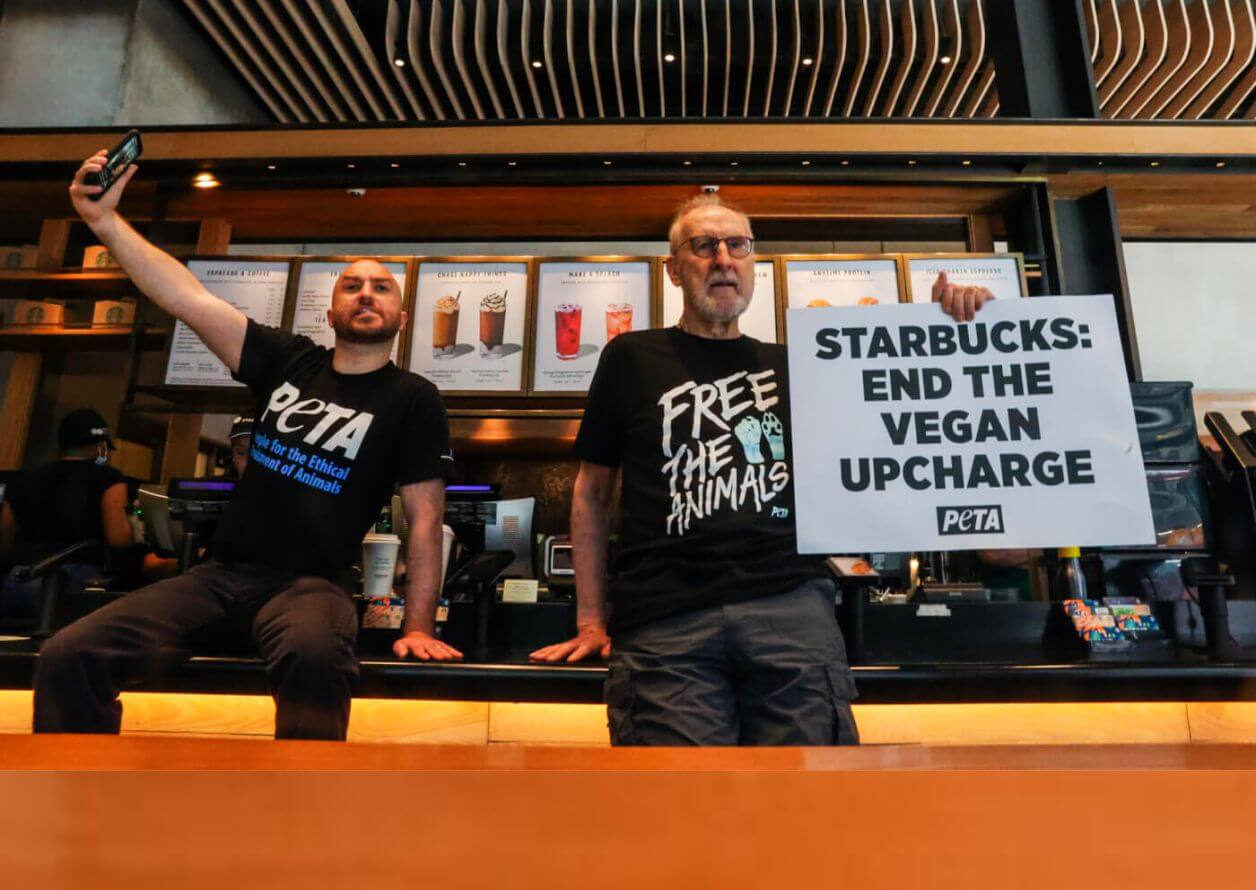
Read The Reports
April 20, 2022: With Earth Day looming, two climate and animal rights activists superglued their hands to the café counter at Starbucks’ headquarters, chanting, “Save the planet, save the cows, stop the plant milk upcharge!”
May 10, 2022: Succession star and PETA Honorary Director James Cromwell superglued his hand to the café counter at a New York City Starbucks to protest the vegan milk upcharge. Police arrived to shut down the store.
June 16, 2022: After spending over an hour superglued to the café counter at a downtown Chicago Starbucks, two PETA supporters, including a Buddhist monk in traditional robes, were arrested and charged with criminal trespassing.

March 8, 2024: On International Women’s Day, 74-year-old grandmother and renowned chef Babette Davis made headlines by supergluing her hand to the counter of a Starbucks store in Inglewood, California, in support of PETA’s campaign against the chain.
James Cromwell Became a Greedy Starbucks Exec in a Cutting Ad
In his first acting role since Succession, actor James Cromwell played Ewan Roy’s worst nightmare—a greedy, fictional Starbucks executive who exploits eco-conscious customers by charging them more for vegan milk—in a PETA video released in time for National Coffee Day (September 29, 2023).
Starbucks Sent Police to Arrest a Law-Abiding 13-Year-Old?!
On March 8, 2024, Evan and his family were joining other PETA supporters at a Starbucks store near Orlando, Florida—and although the store manager had given the protesters permission to hold a sit-in there, the coffee giant later called the police on the group.

Evan, at just 13-years-old, was wrongfully arrested on trespassing charges while peacefully protesting against Starbucks for charging extra for vegan milks. His charges were dropped in June.
Celebrities Penned Letters to Starbucks’ Top Brass
Kate Nash, Paul McCartney, and Alan Cumming all contacted Starbucks executives to ask them to put an end to the vegan milk upcharge.
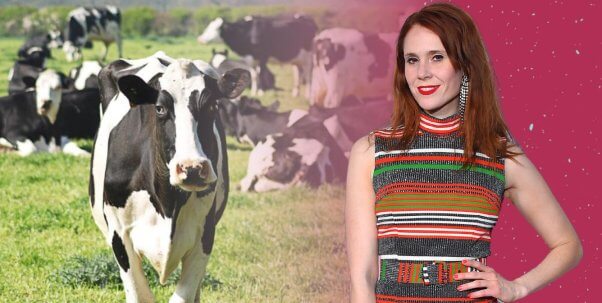
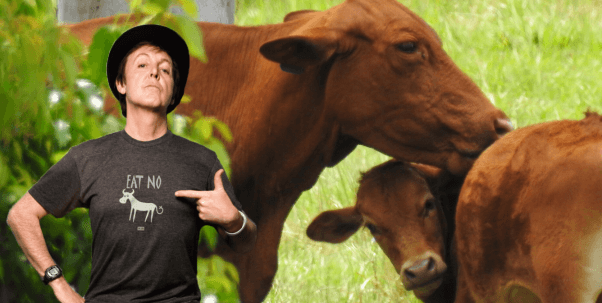
Read The Reports
March 1, 2021: PETA Honorary Director Alan Cumming joined PETA’s campaign by writing to Starbucks CEO Kevin Johnson. His letter urged Starbucks to drop the upcharge on vegan milks, noting that the dairy industry produces huge amounts of greenhouse gases and that manure from dairy farms contaminates waterways and creates dead zones in the ocean where no life can survive.
The most responsible move would be to stop selling cow’s milk altogether. But at the very least, you can end the upcharge on vegan milk that penalizes customers who are making the humane, environmentally friendly choice, along with those who are lactose intolerant—most of whom are people of color.”
—Alan Cumming
March 30, 2022: Ahead of Starbucks CEO Kevin Johnson’s upcoming retirement on April 4, Sir Paul McCartney sent a letter to the outgoing exec, urging him to take the coffee giant’s problematic vegan milk upcharge out the door with him as he leaves the company.
“My friends at PETA are campaigning for this,” wrote McCartney. “I sincerely hope that for the future of the planet and animal welfare you are able to implement this policy.”
August 22, 2023: Hot off the set of Coffee Wars, actor, singer, and longtime vegan Kate Nash sent a letter on PETA’s behalf to Starbucks CEO Laxman Narasimhan urging him to end the chain’s shameless upcharge on vegan milks in the U.S.
“I’m currently starring in Coffee Wars, a movie in which my character, like me, is all about creating delicious coffee drinks that no animal had to suffer for. And while I love Starbucks coffee, it left a bitter taste in my mouth when I learned from my friends at PETA that customers who choose non-dairy milk still have to pay extra in the US. There’s no surcharge for plant-based milk in the UK, so that just doesn’t add up.”
—Kate Nash
PETA Crafted Special Gifts for Starbucks Execs
Our creative gag gifts to the people in charge at Starbucks symbolized the harm that prioritizing cow’s milk over vegan milks does to the planet.
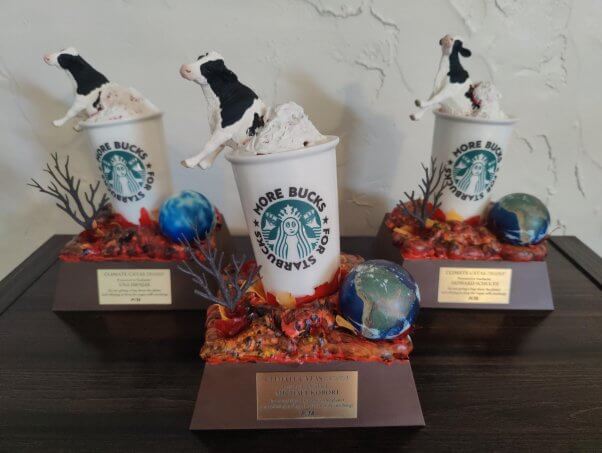
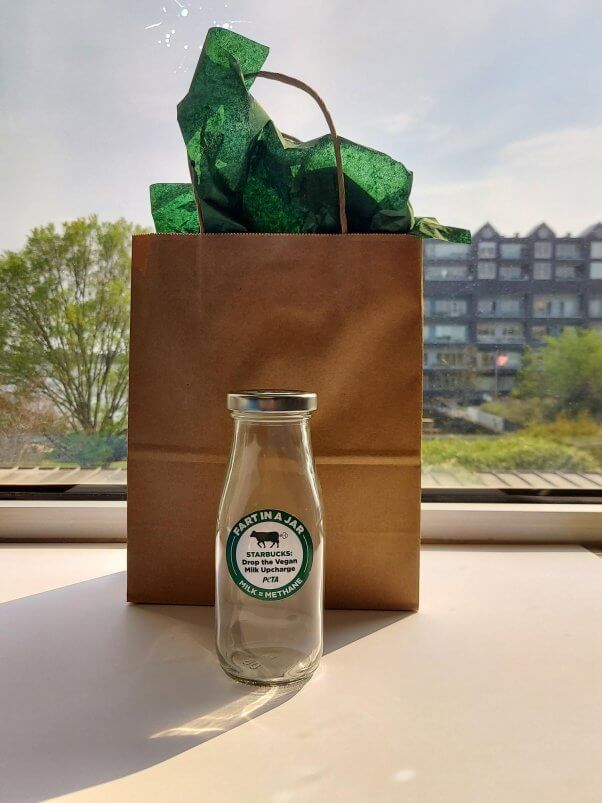
Read The Reports
July 28, 2022: It’s the golden global warming awards, and PETA presented three Starbucks executives—CEO Howard Schultz, Chief Sustainability Officer Michael Kobori, and Head of Sustainability Una Hrnjak—with a Climate Catastrophy. With each award—which included a personalized placard and a letter—we let the coffee chain’s leaders know that if they really gave a frap about the planet, then they would drop the upcharge for vegan milks.
April 21, 2023: Gear up for a gas! New Starbucks CEO Laxman Narasimhan got a cheeky gift from PETA in honor of Earth Day: a “cow fart” in a jar. Hoping Narasimhan would help clear the air, PETA urged him to stop “milking” customers and harming animals and the planet.
PETA Headed to Starbucks’ Boardroom
Since 2019, we’ve given Starbucks a piece of our mind at its shareholder meetings and submitted shareholder resolutions to advocate against the nonsensical charge for vegan milks.

Read The Reports
March 18, 2020: Clueless actor and PETA Honorary Director Alicia Silverstone joined Starbucks’ virtual annual meeting to ask the company to stop charging extra for nondairy milks.
“When will Starbucks put its money where its mouth is and remove the barrier to customers choosing climate-, health-, and animal-friendly vegan options by dropping the surcharge on nondairy milk?”
—Alicia Silverstone
March 16, 2022: PETA caused a stir during Starbucks’ annual meeting by calling out the company for being all talk and no action. We pointed out that the CEO himself—Kevin Johnson—has claimed that Starbucks wants to “give more than [it takes] from the planet,” but if that were really the case, the company would incentivize consuming animal- and environmentally friendly vegan milks by not charging extra for them.
Producing cow’s milk generates around three times more greenhouse gas emissions and uses nine times more land than vegan options do. It takes 628 liters of water to make 1 liter of cow’s milk—oat or soy milk requires 90% less water.
“Starbucks claims to value ‘challenging the status quo and … holding ourselves accountable.’ Words have to mean something.”
—From PETA’s question to Starbucks at its annual meeting
September 19, 2022: In PETA’s first-ever Starbucks shareholder resolution, we called on the company’s board of directors to commission a report examining whether the coffee chain is harming its reputation—and losing customers—by charging a premium price for the vegan milks it agrees are better for the planet.
PETA members caused a stir outside Starbucks’ headquarters in Seattle to call on the chain to stop penalizing customers who care about animals and the environment.
March 23, 2023: At Starbucks’ latest virtual shareholder meeting, PETA asked four pressing questions—one of our own and three on behalf of fellow shareholders who are also passionate about ending the vegan milk upcharge.
Since Starbucks’ new CEO Laxman Narasimhan started two weeks early and led the meeting, PETA hopes he received our input with fresh urgency.
We explained how the dairy industry condemns cows exploited for their milk to a relentless cycle of forced impregnation, birth, and nearly round-the-clock milking before sending them to a gruesome death after four or five years. Then we asked, “Knowing that dairy is the product of immense suffering, environmental destruction, and dietary racism, how do you justify supporting and even actively promoting its consumption by continuing to impose an ‘ethical tax’ on vegan milks?”
Following introductory lead-in comments for each, the three other questions were read:
“When will Starbucks return to the values that made me an investor by listening to its customers, leading the coffee industry instead of lagging behind, and dropping the upcharge on vegan milks?”
“Since Starbucks has admitted that dairy is the biggest contributor to the company’s carbon footprint and is a major factor in climate change, why doesn’t Starbucks institute a dairy upcharge or, even better, drop dairy altogether?”
“Given Gen Z’s aversion to dairy, why doesn’t Starbucks make vegan milk the default option instead of charging more for it?”
During the meeting, we also presented our shareholder resolution—originally submitted in September 2022—urging the company to commission a report examining how dropping the upcharge for vegan milks could increase Starbucks’ sales.
PETA supporters with Animal Rights Initiative descended on Starbucks’ headquarters in downtown Seattle at the start of the meeting to make their position known.
April 13, 2023: After PETA submitted a shareholder resolution calling out Starbucks’ problematic vegan milk upcharge, we received enough votes from the company’s shareholders to qualify to submit another resolution in 2024. This was great news, as submitting back-to-back shareholder resolutions allows us to keep pressure on the chain.
While we won a victory in the boardroom, we also kept the heat on Starbucks by partnering with Switch4Good—a nonprofit run by Olympian Dotsie Bausch dedicated to “[d]isrupting norms around dairy and health, working to abolish dietary racial oppression, and fighting climate change”—to hold a day of action against the company.
During the action-packed day, we hosted protests across the U.S. and Canada, mobilized supporters to blast the company on social media, held sit-ins, encouraged everyone to call the company to express their opposition, and more.
September 25, 2023: In our second-ever Starbucks shareholder resolution submission, PETA pressed the company’s executives to examine the true cost of alienating consumers who can’t stomach cow’s milk for ethical, religious, environmental, or dietary reasons.
According to multiple studies, Gen Zers—whose spending power has more than doubled in three years to reach an estimated $360 billion—view cow’s milk as “basic” or “uncool.” So by charging a premium price for vegan milks, Starbucks may be harming its reputation and actually losing customers in the process.
What Does Dairy Have to Do With the Climate Catastrophe?
An environmental assessment revealed that Starbucks reportedly found that dairy-based items are the leading source of carbon dioxide emissions across its operations and supply chain. This isn’t surprising, considering that the production of dairy is to blame for a significant percentage of planet-warming emissions.
The most significant thing that you can do to combat the climate catastrophe is to go vegan.
And what makes it so easy to be vegan is accessibility. Visit a Noah’s New York Bagels, Philz Coffee, or Costa Coffee store and get dairy-free milk in your drinks for free! Visit a Starbucks, however, and you’ll be forced to pay upwards of 90 cents for vegan milk in your handcrafted drink—and vegan food choices there are very limited.
Do Animals and the Planet a Favor: Go Vegan
Why stop at coffee creamer? Whether your goals include being healthier, showing animals more kindness, or saving the planet, being vegan is the only way to go. And you won’t believe how easy it is! Click on the link below to get started on your journey of compassion.
The post Starbucks Becomes the Largest Chain in the US to Offer Free Vegan Milk appeared first on PETA.
This post was originally published on Animal Rights and Campaign News | PETA.


